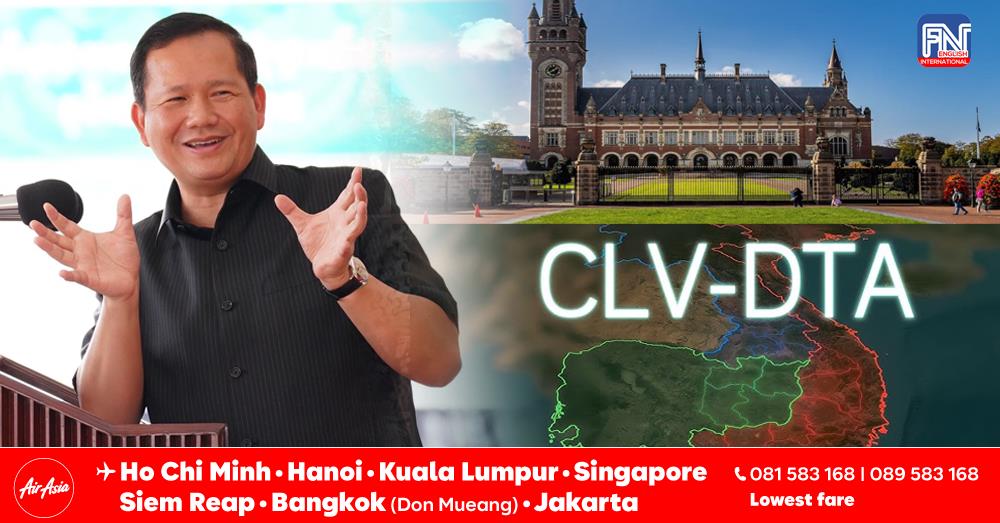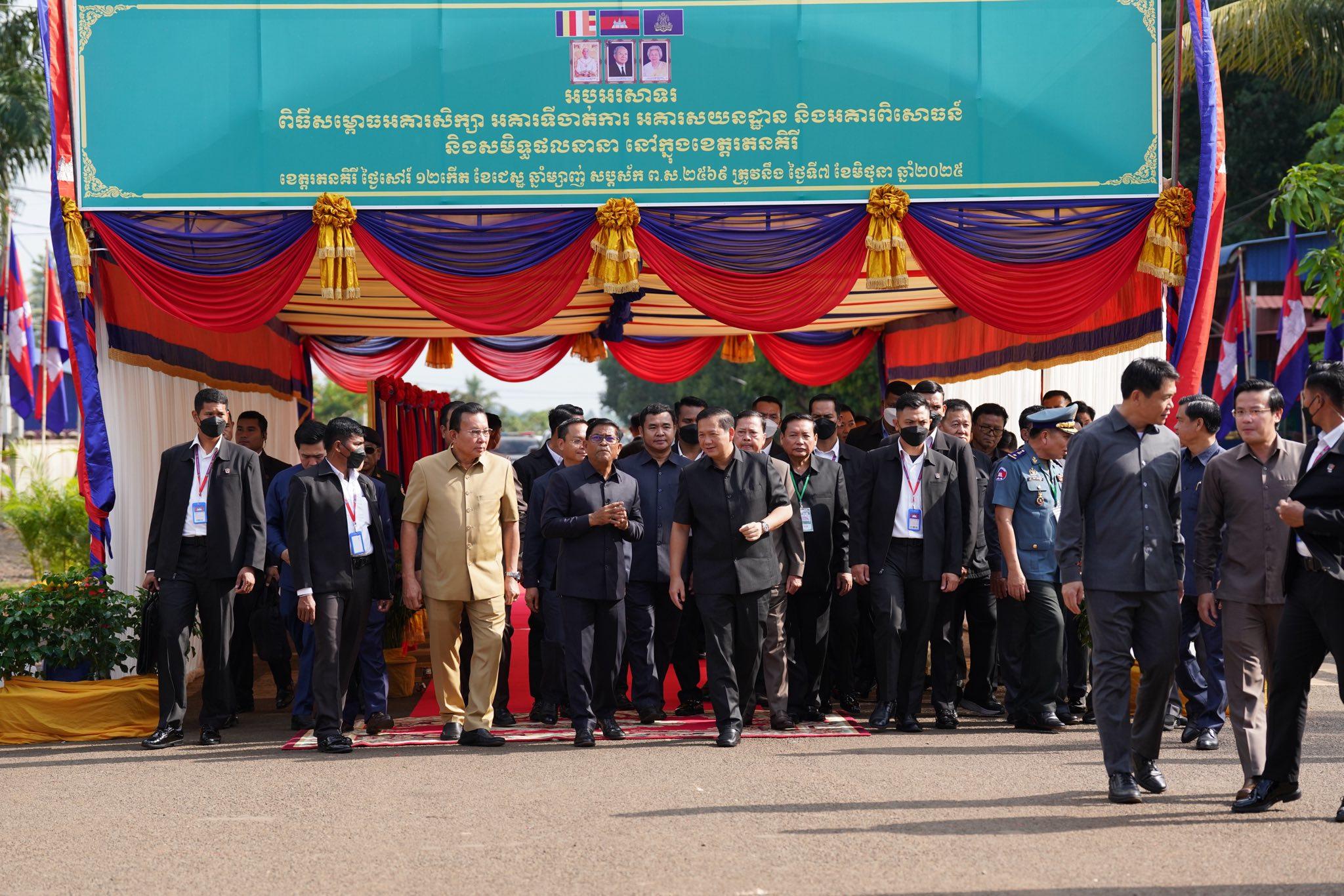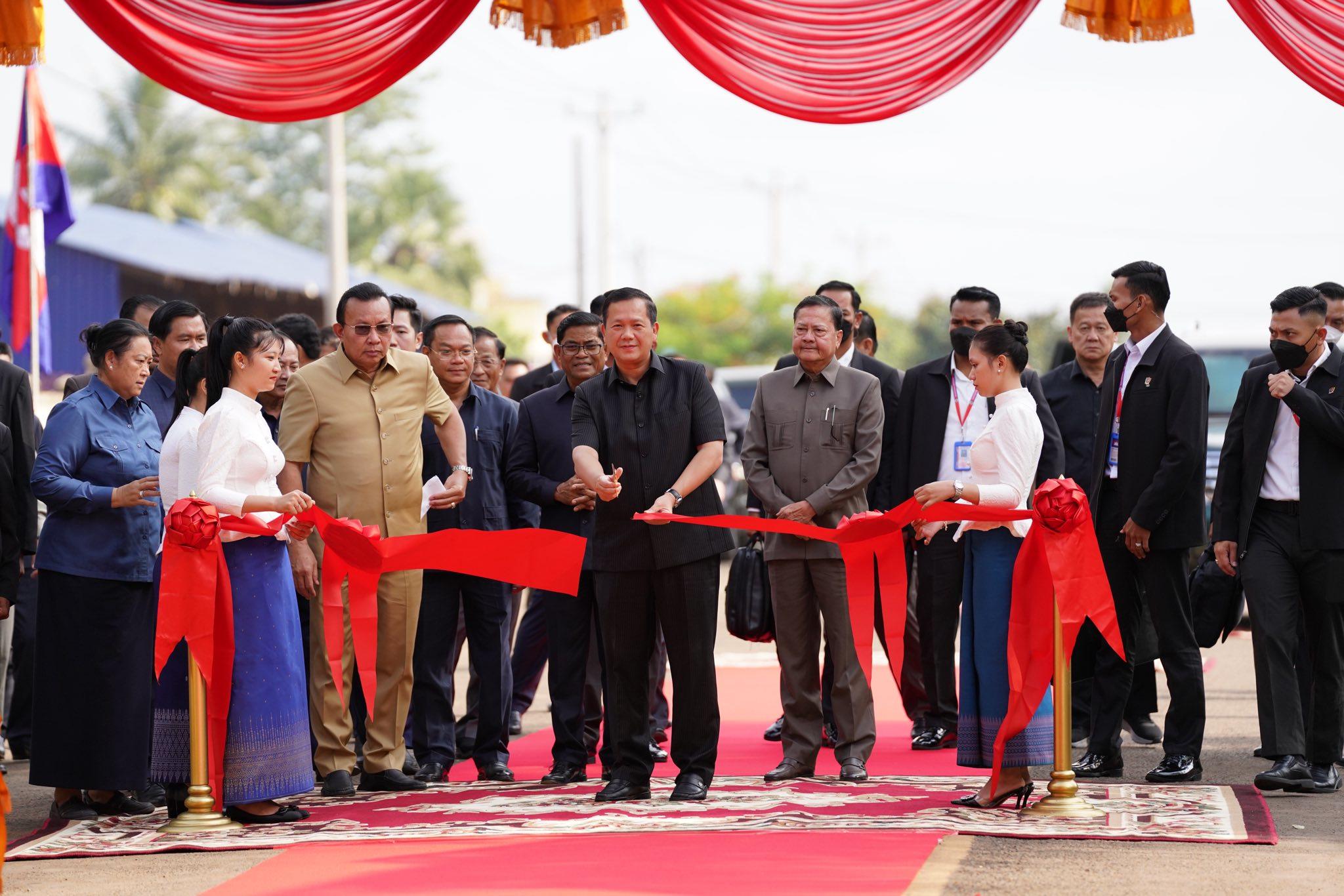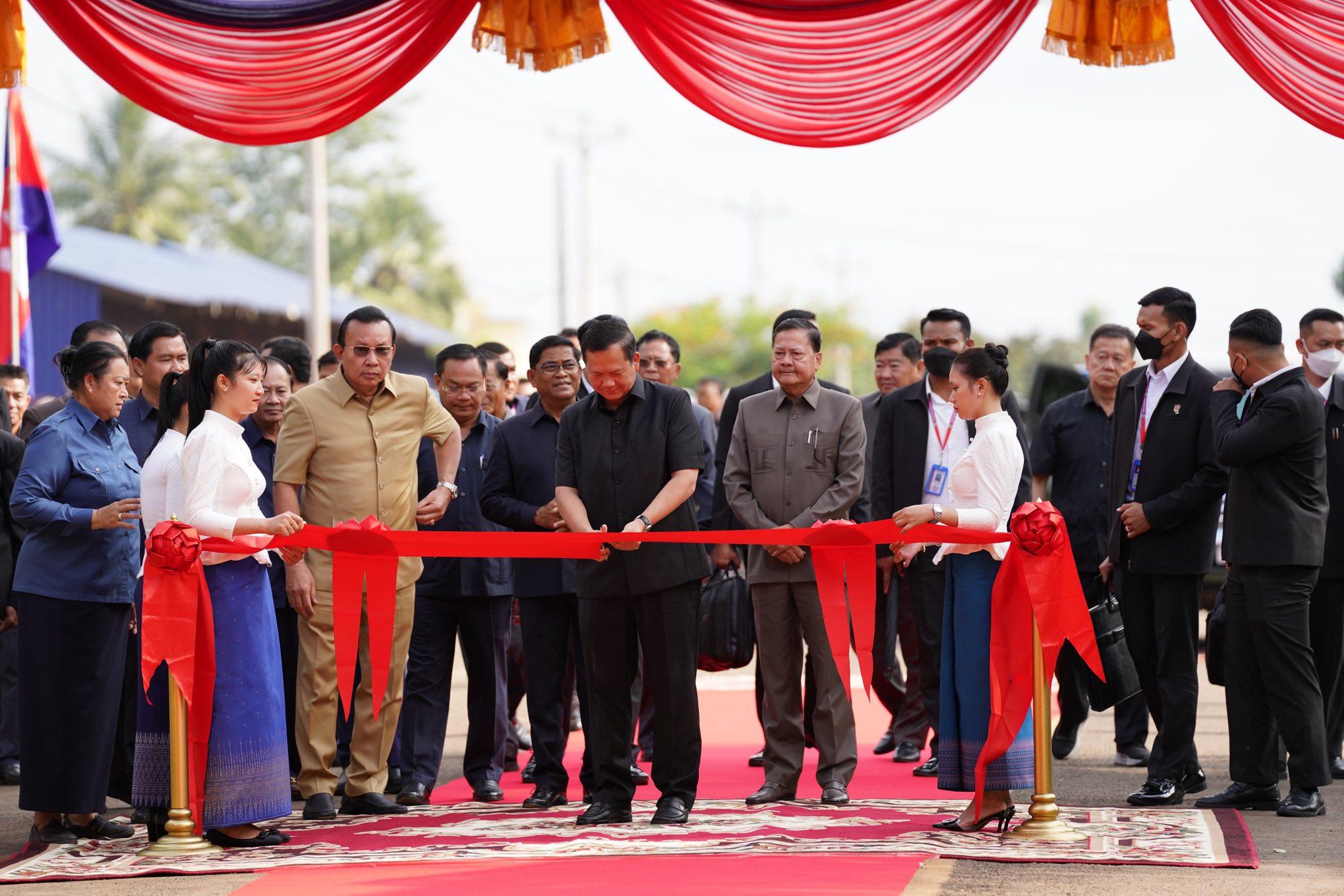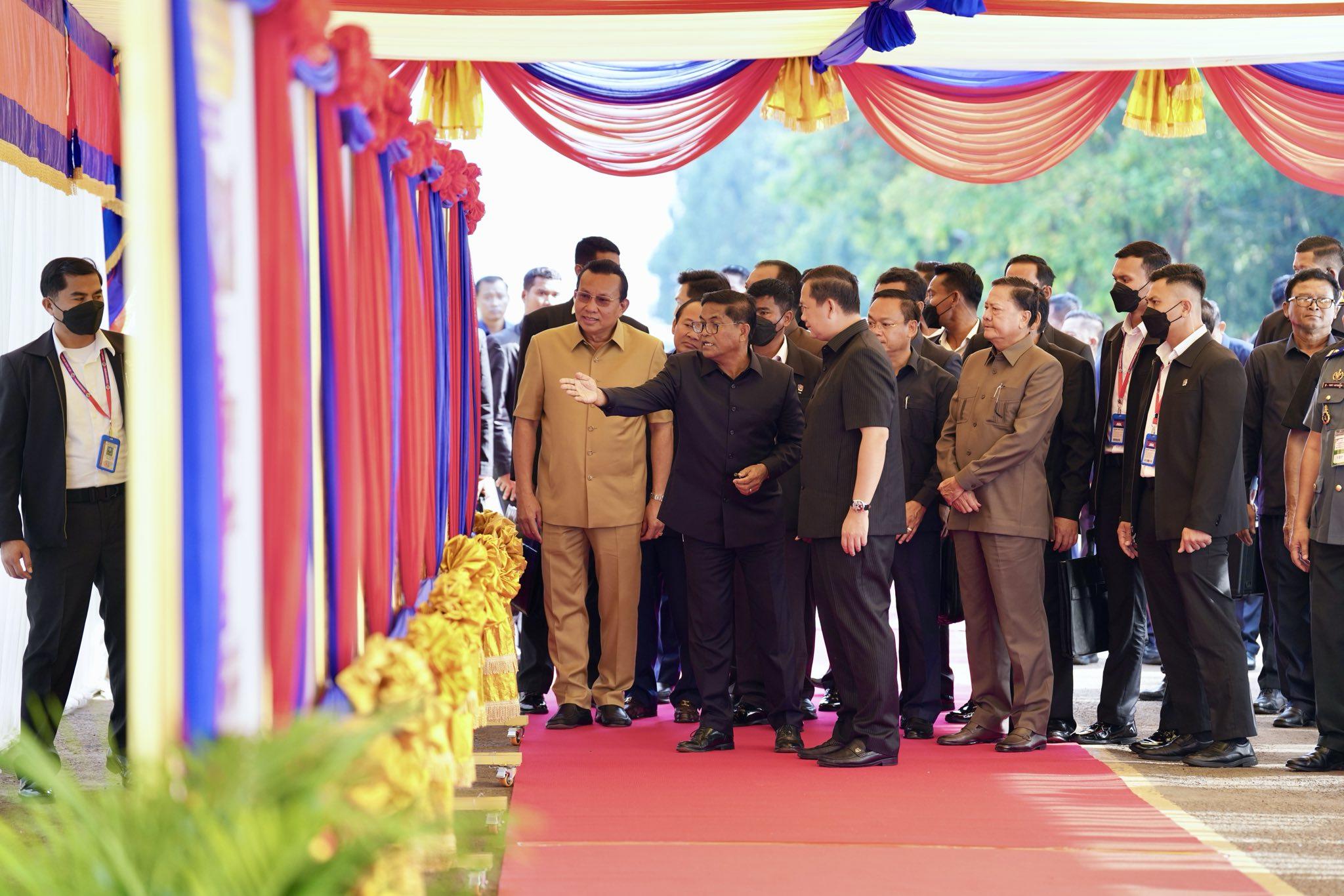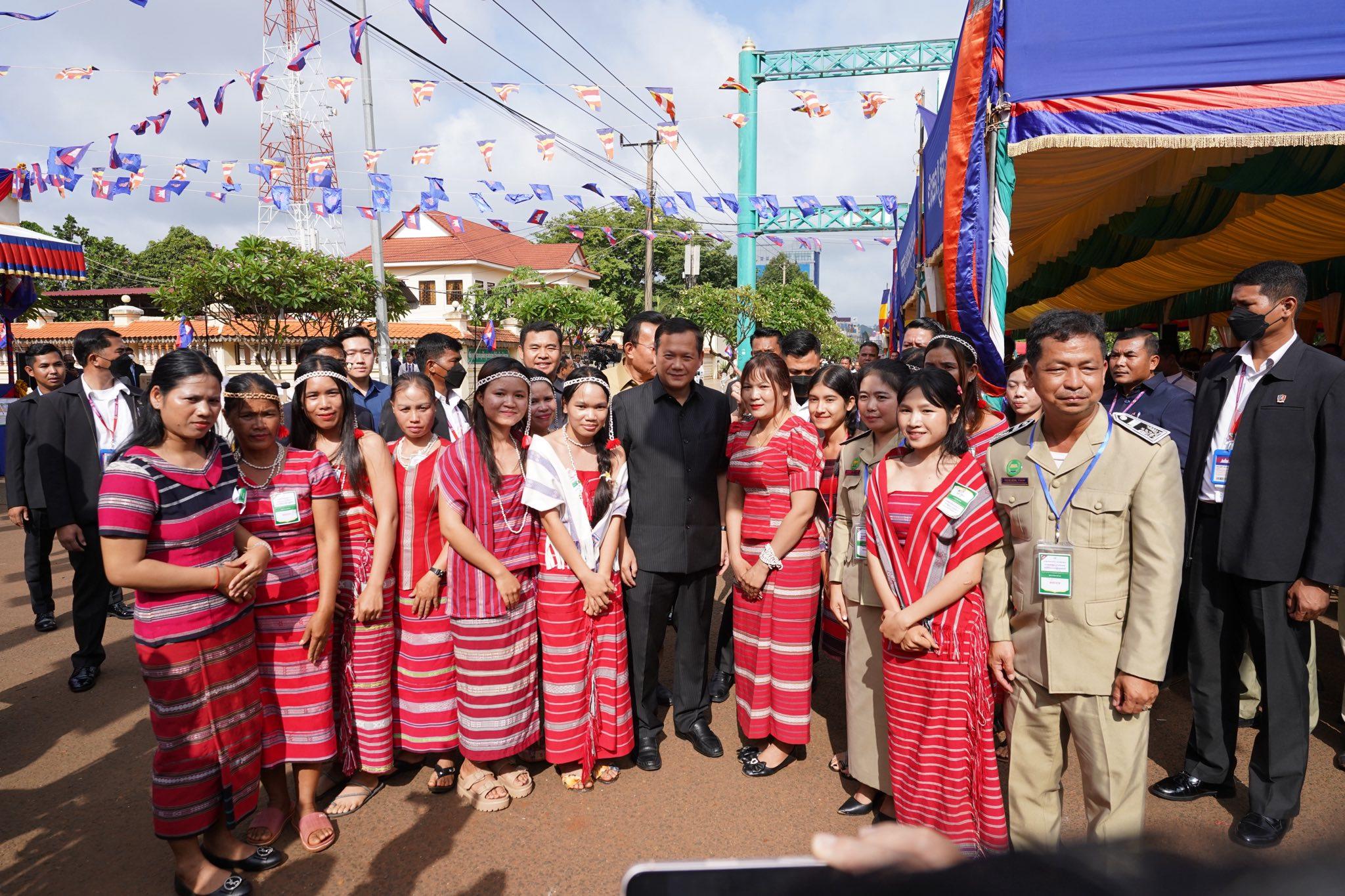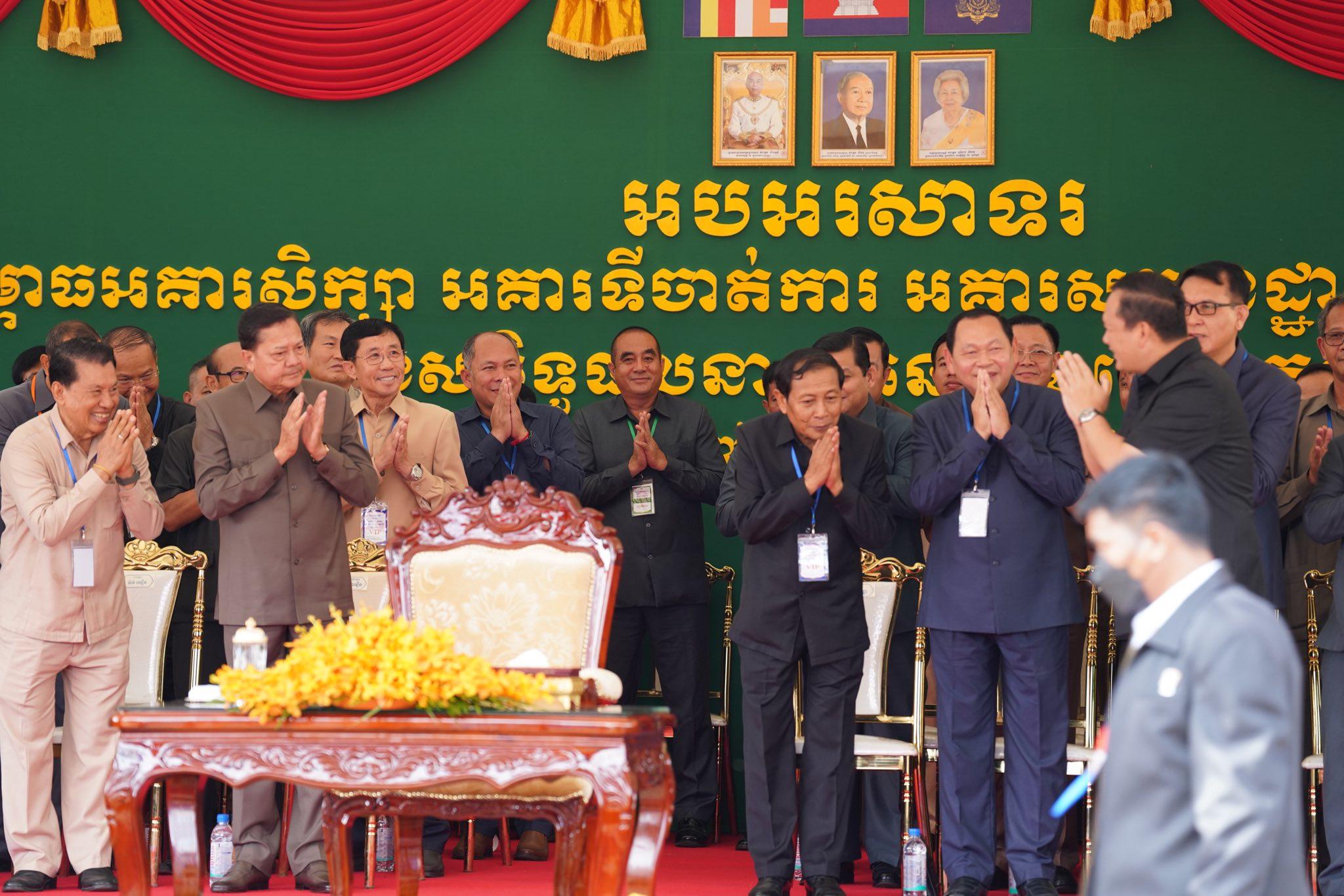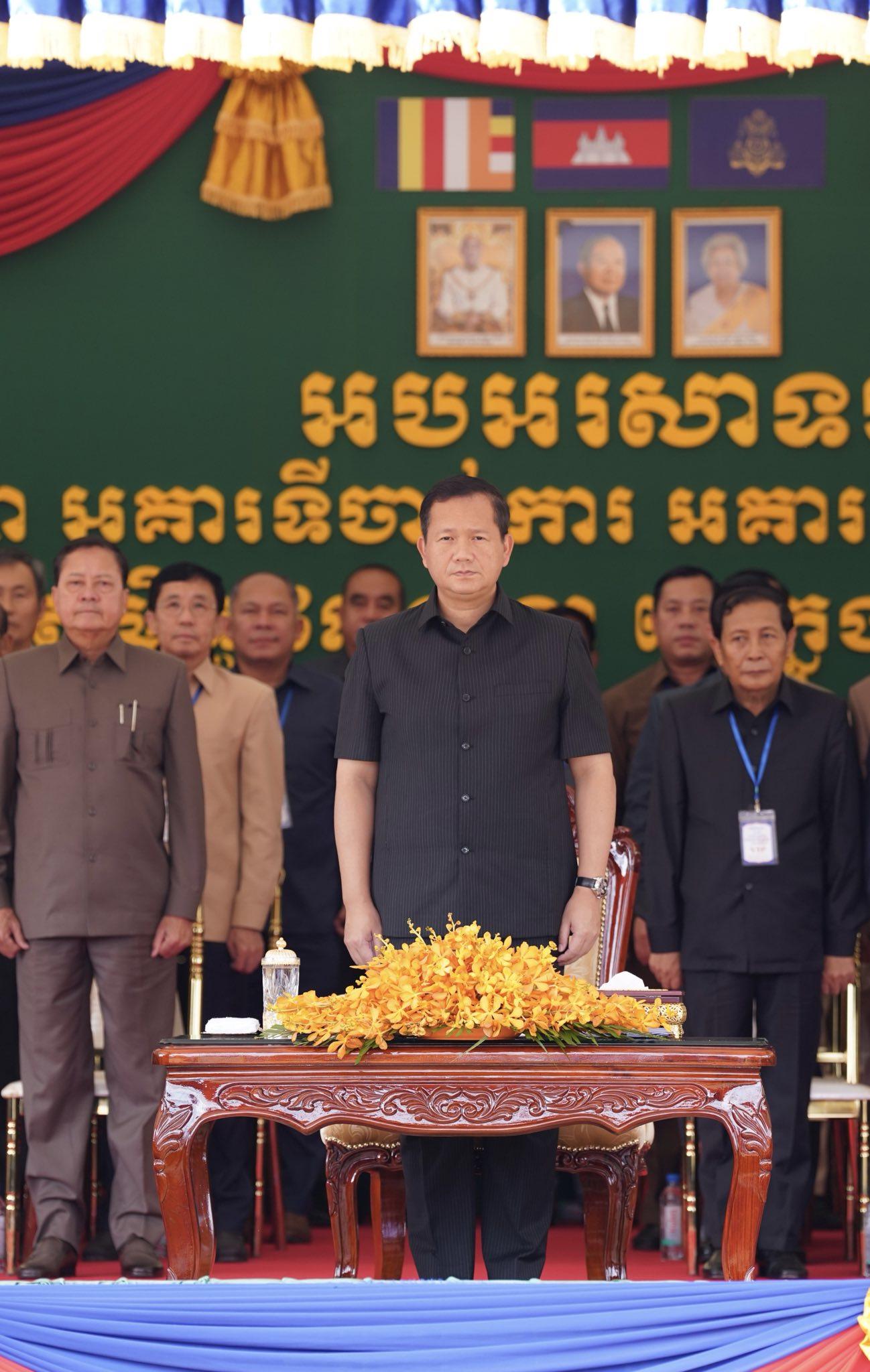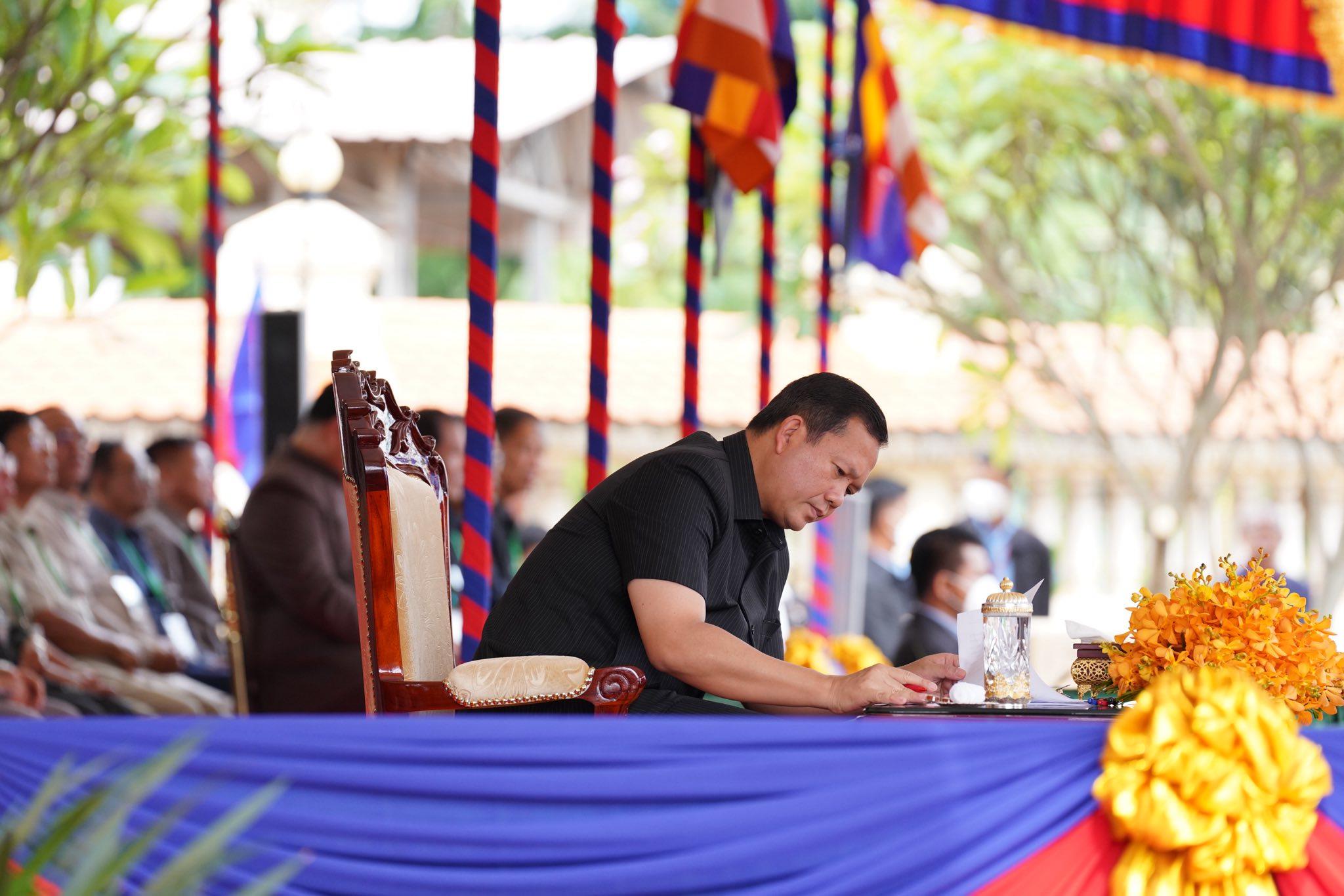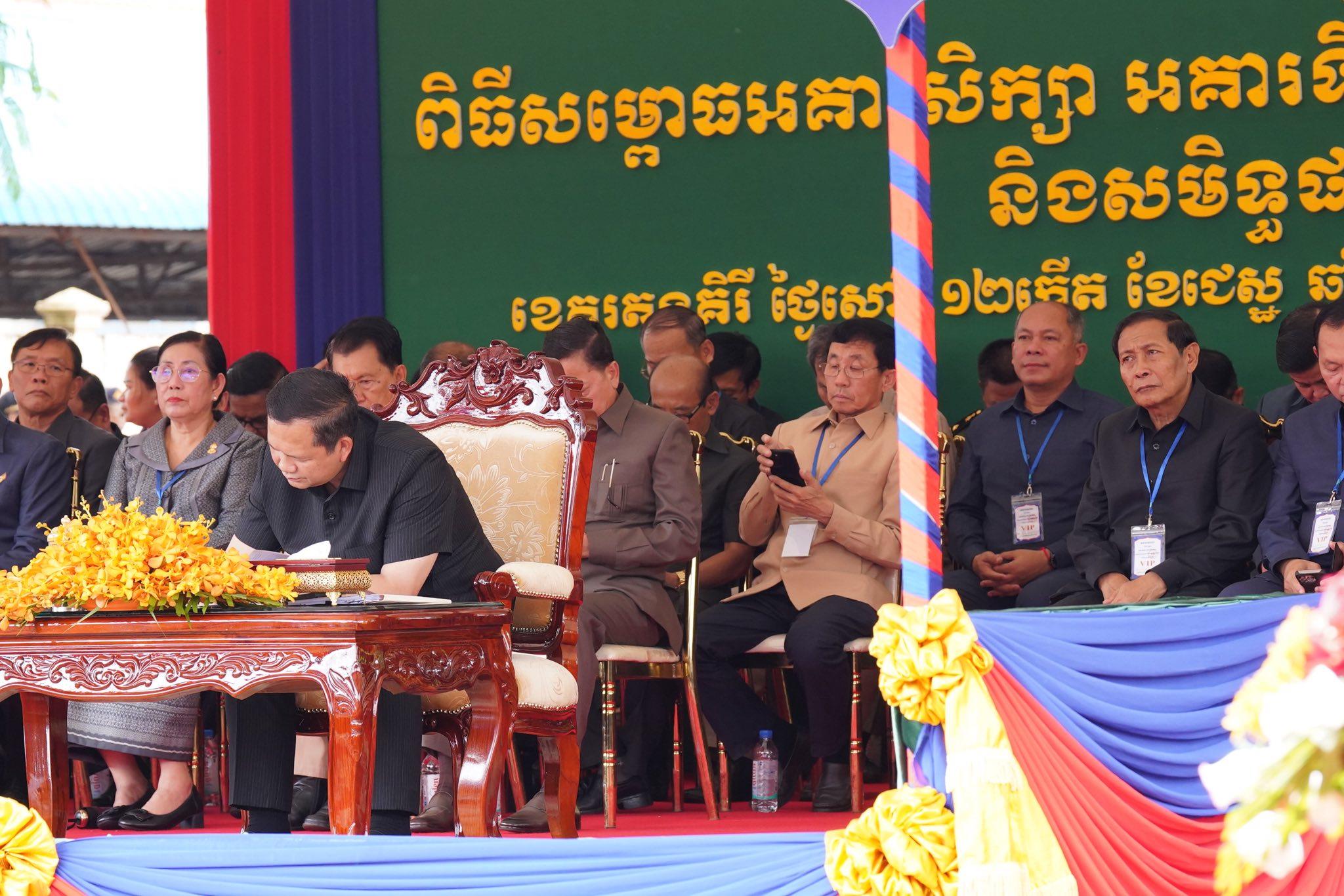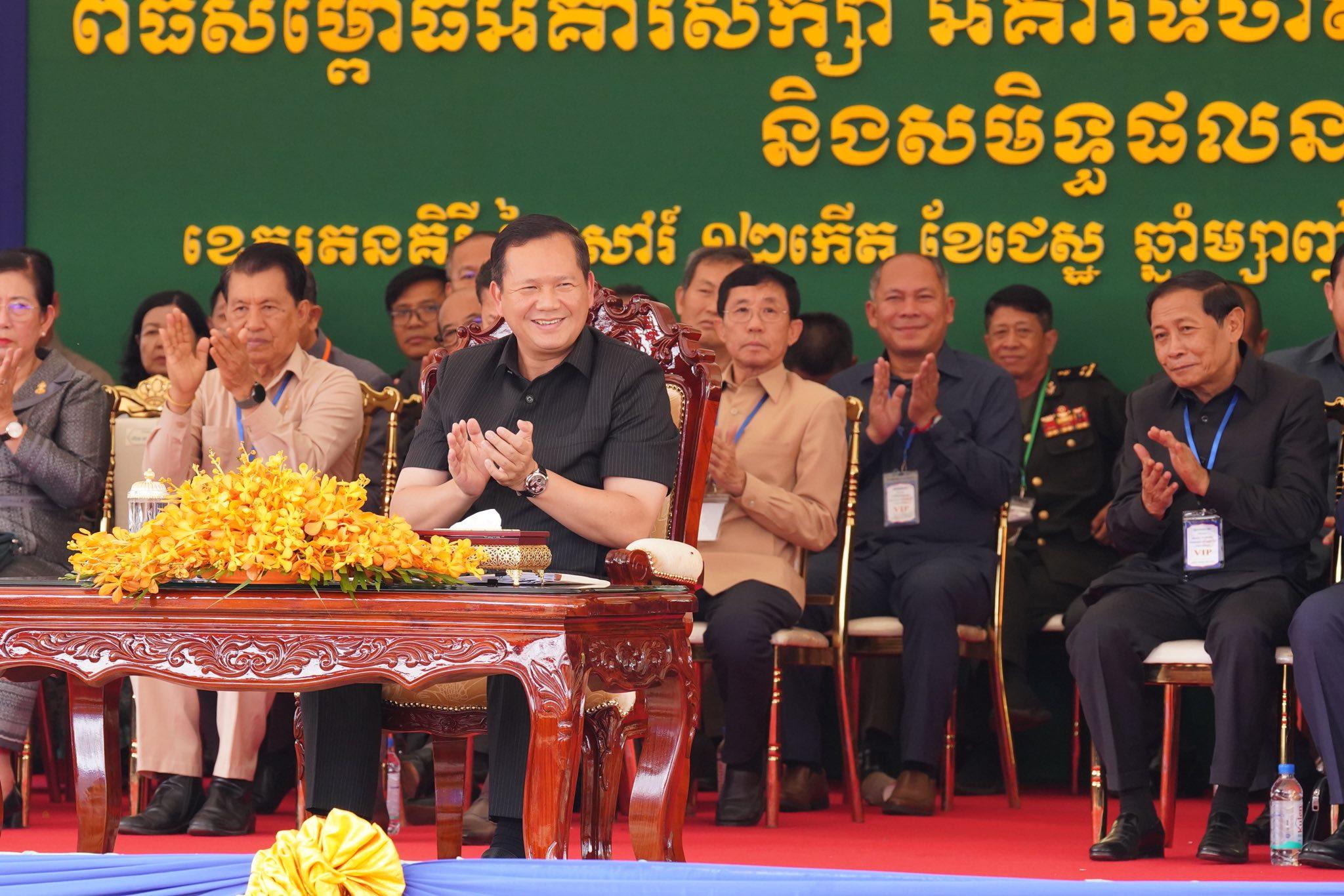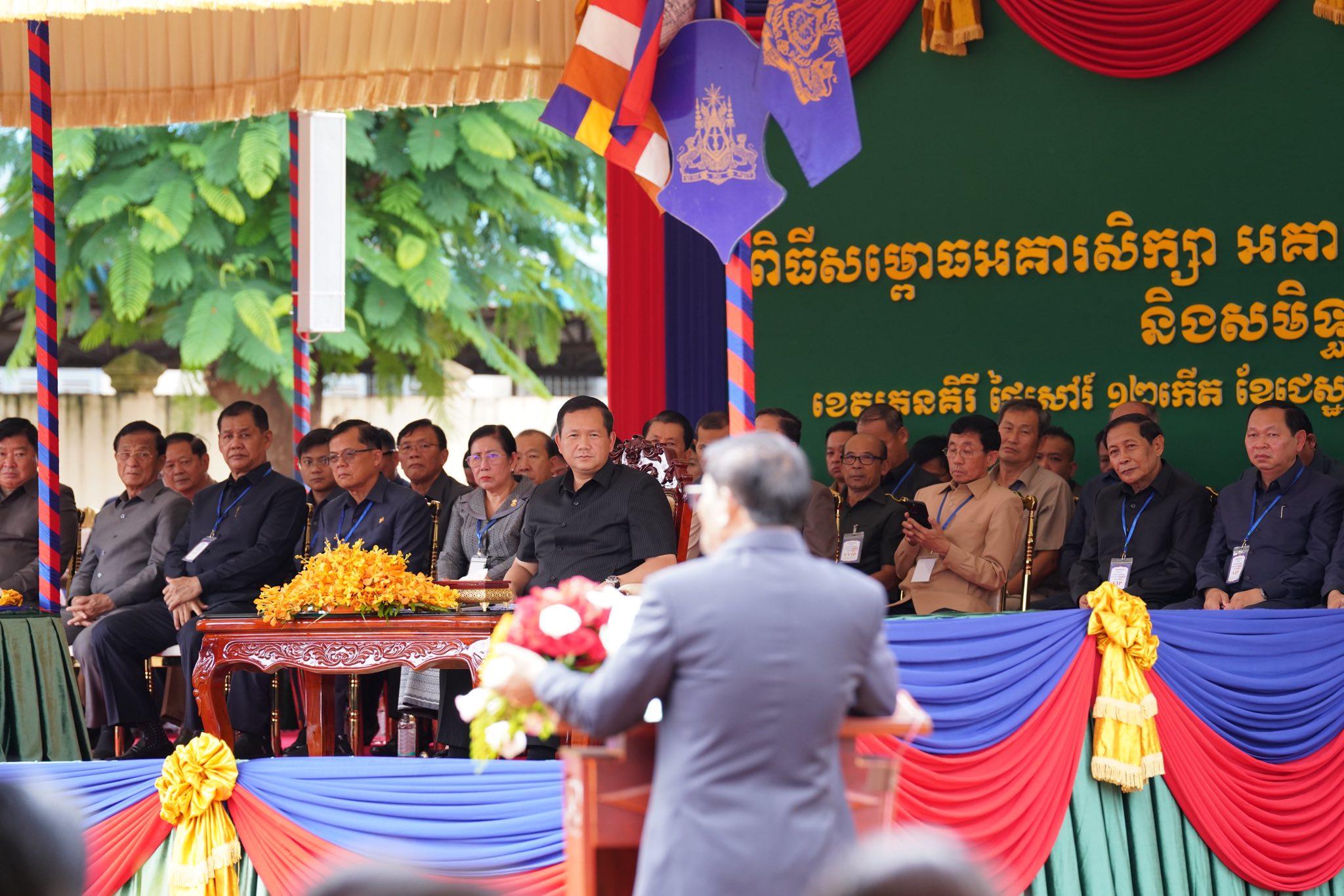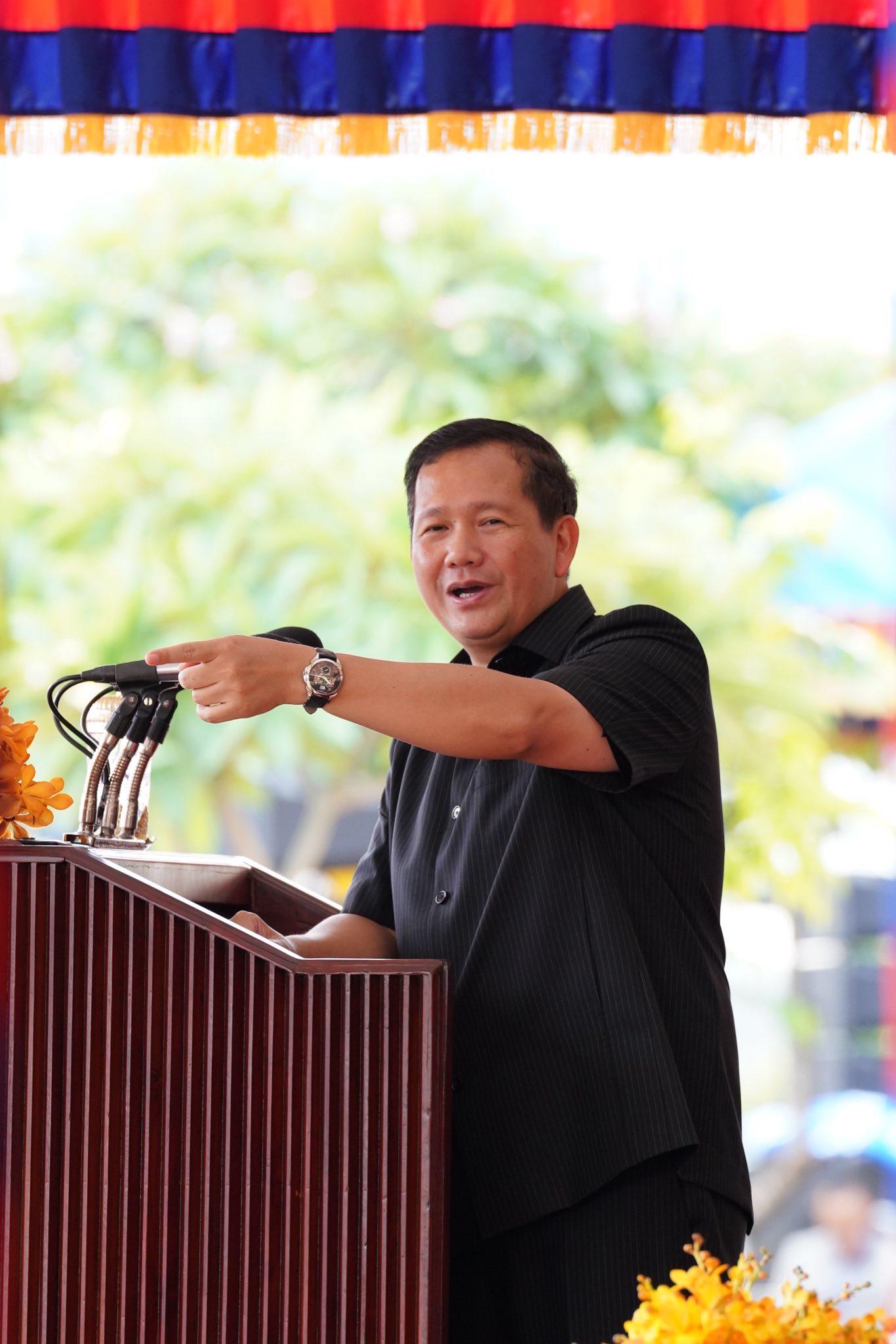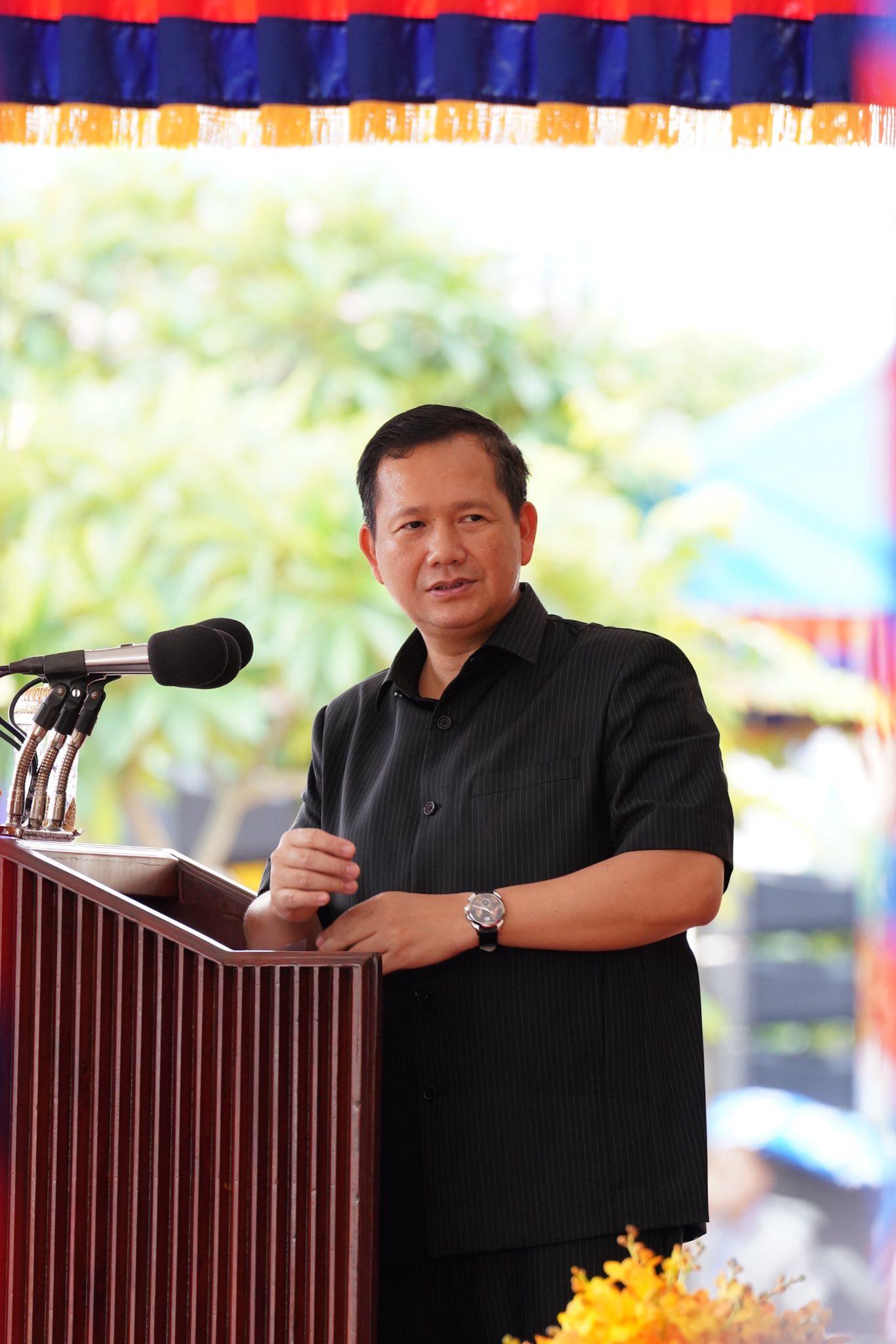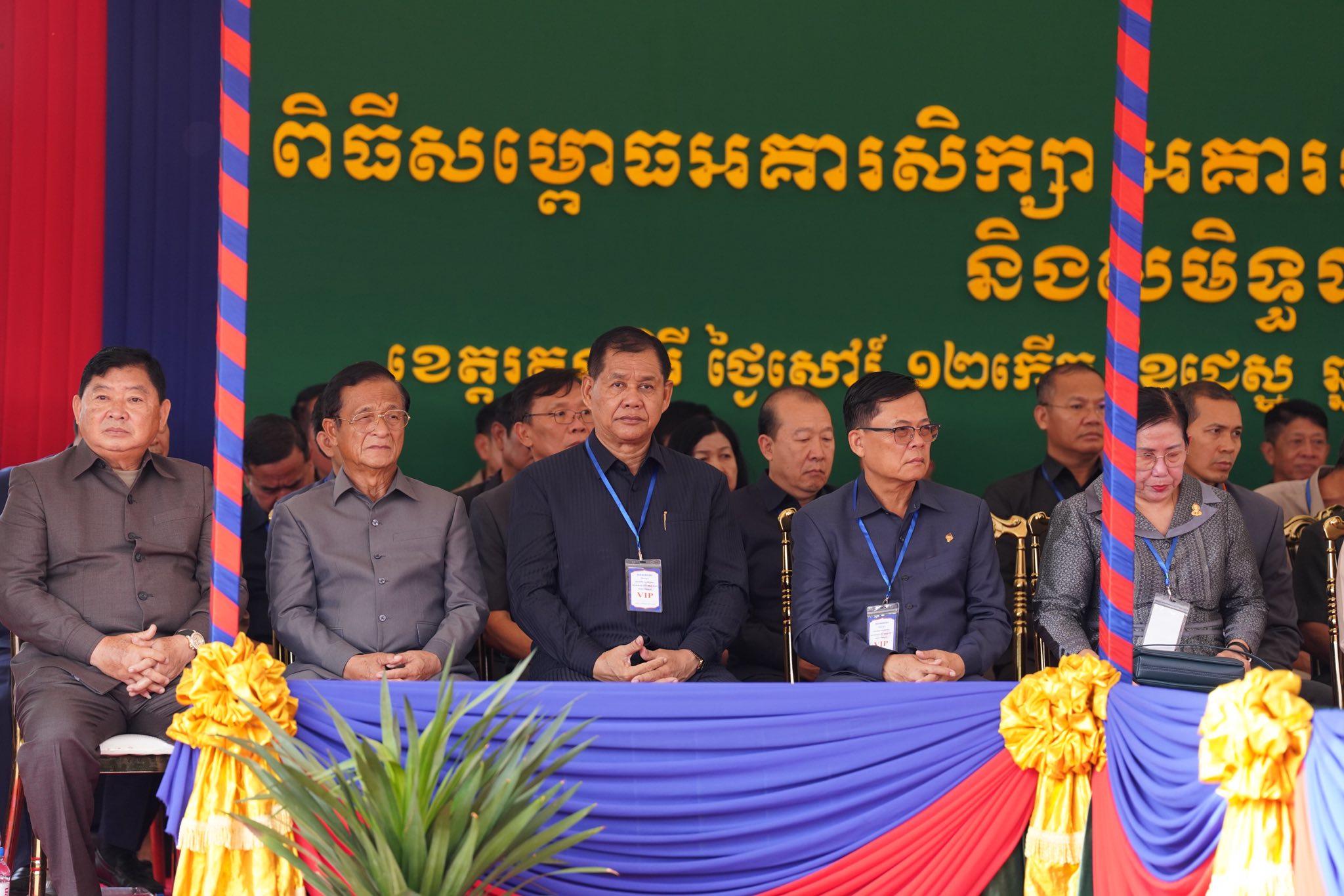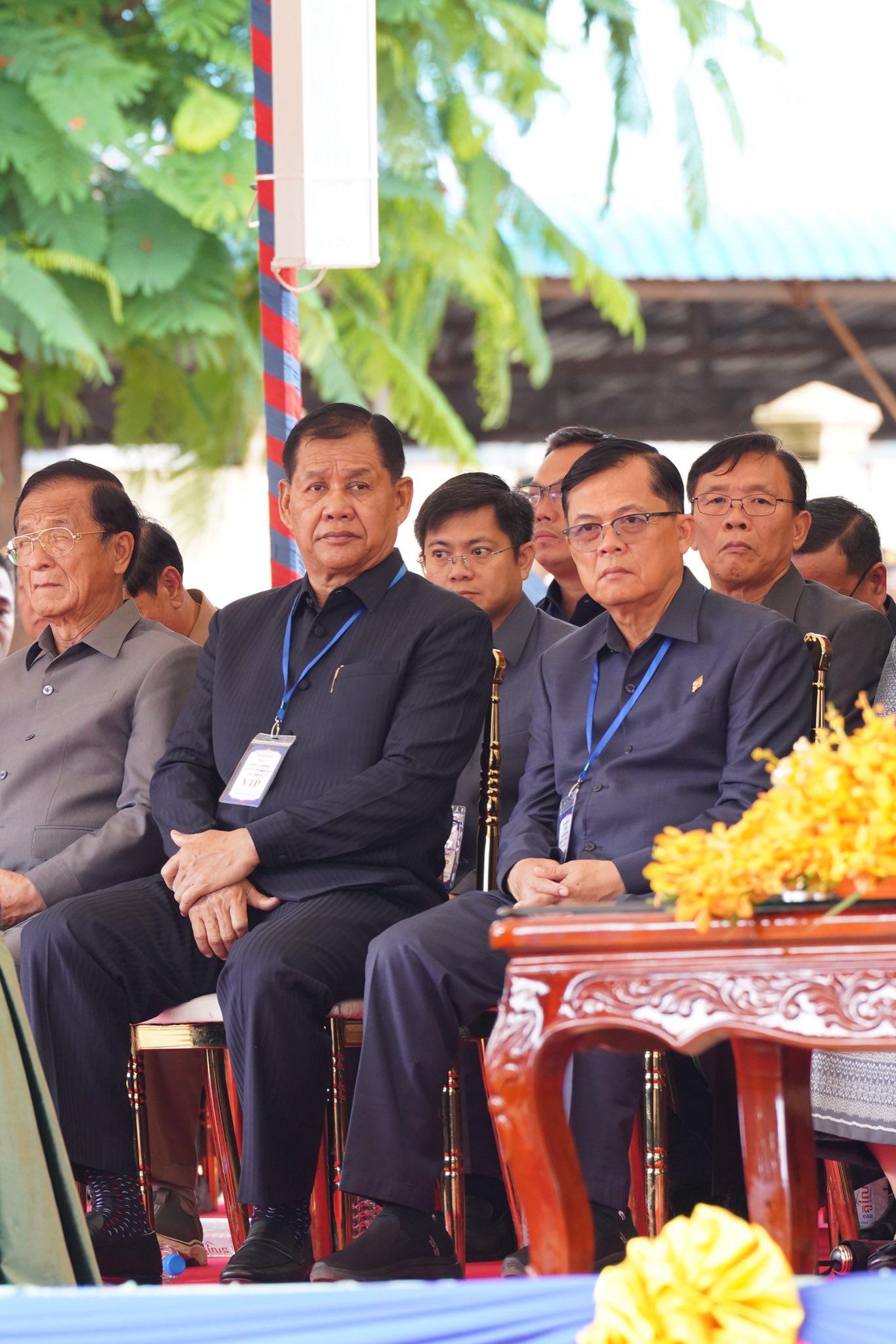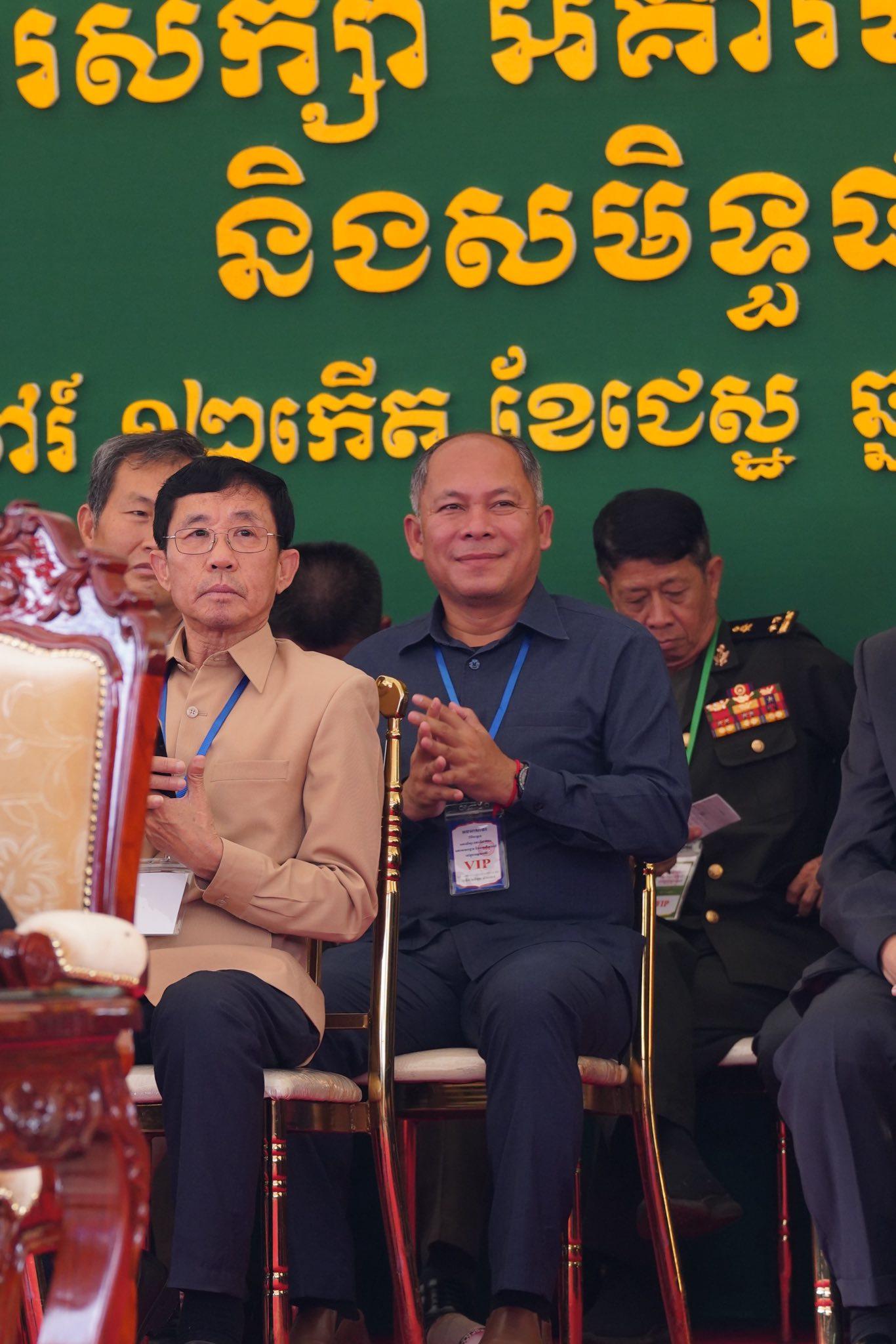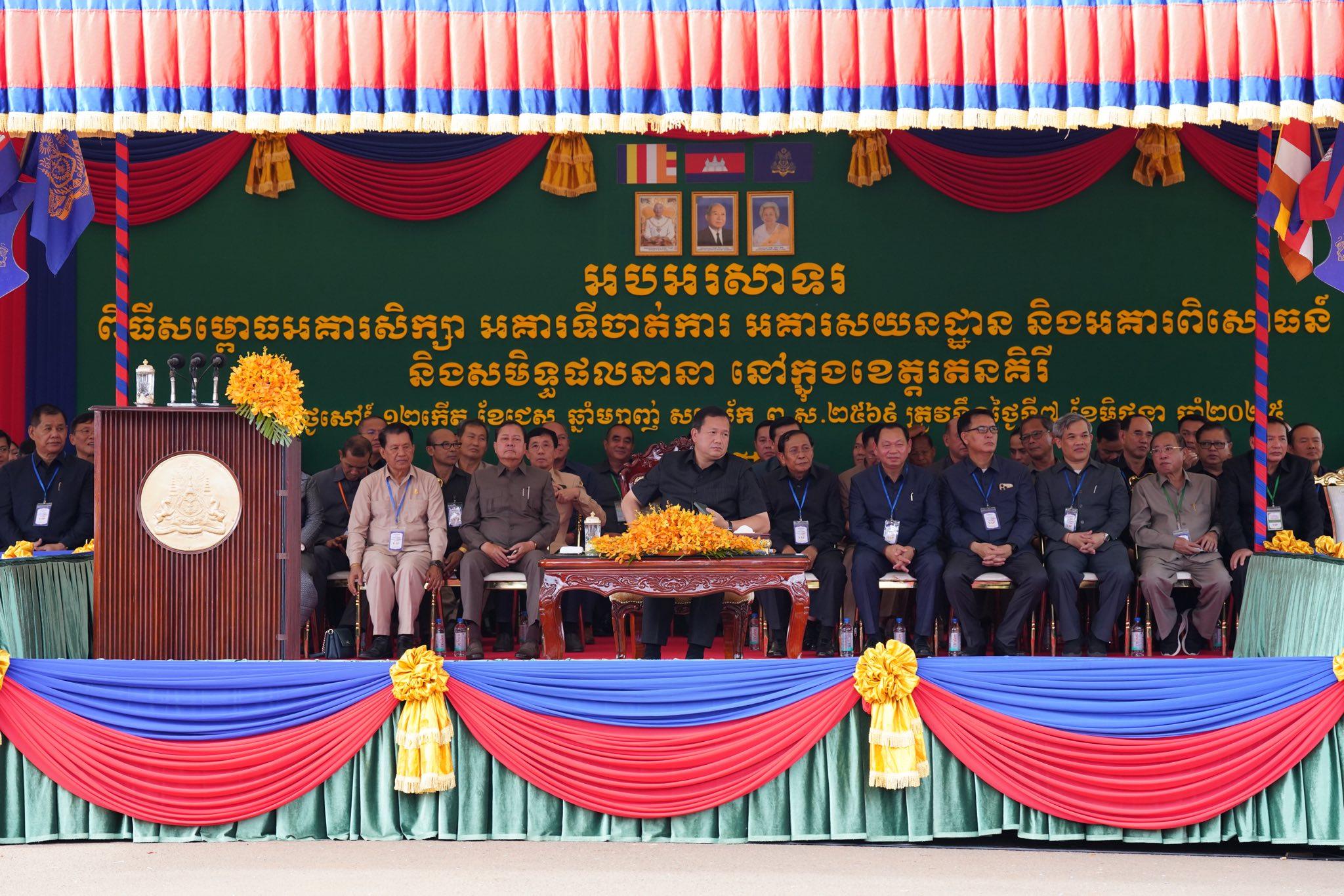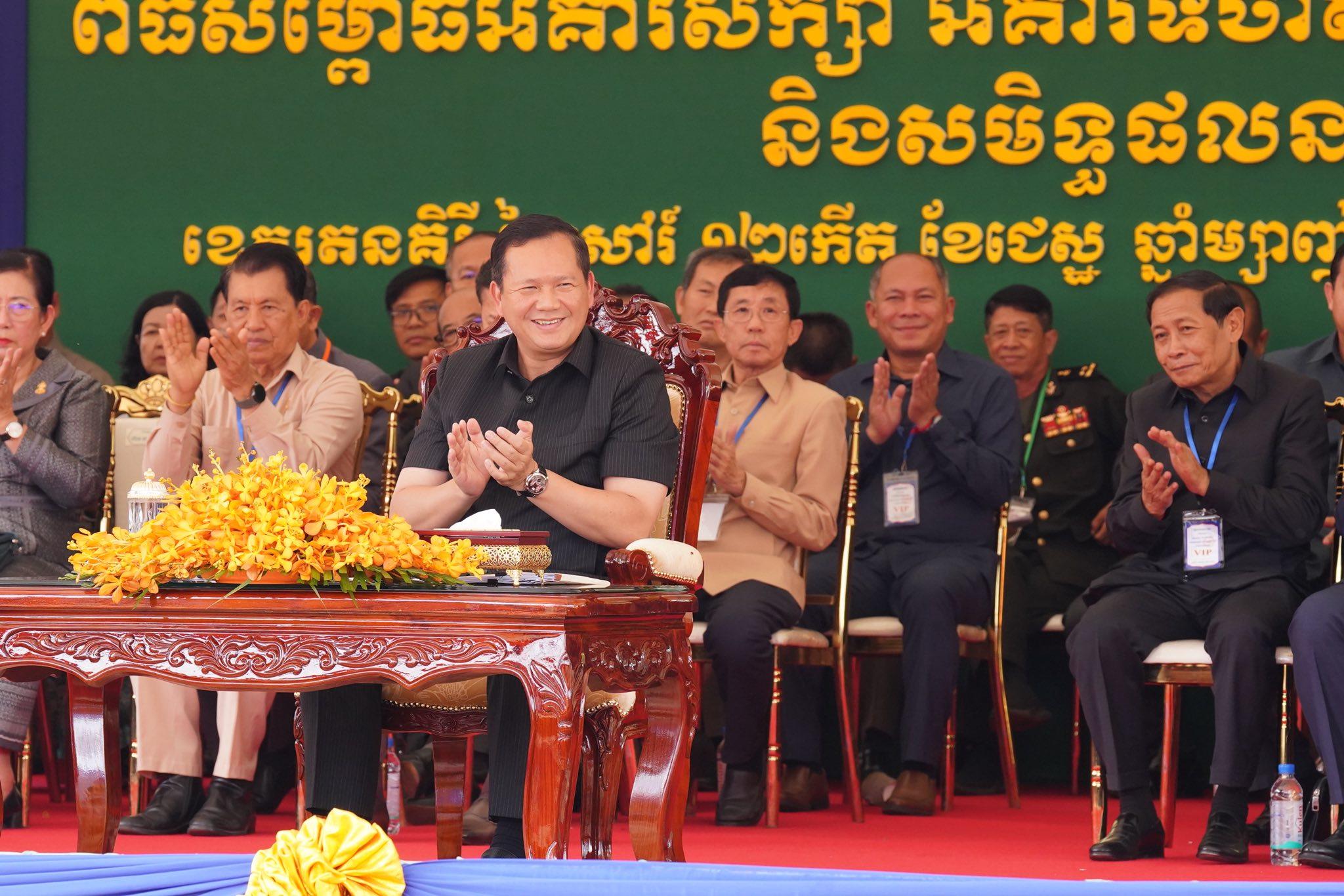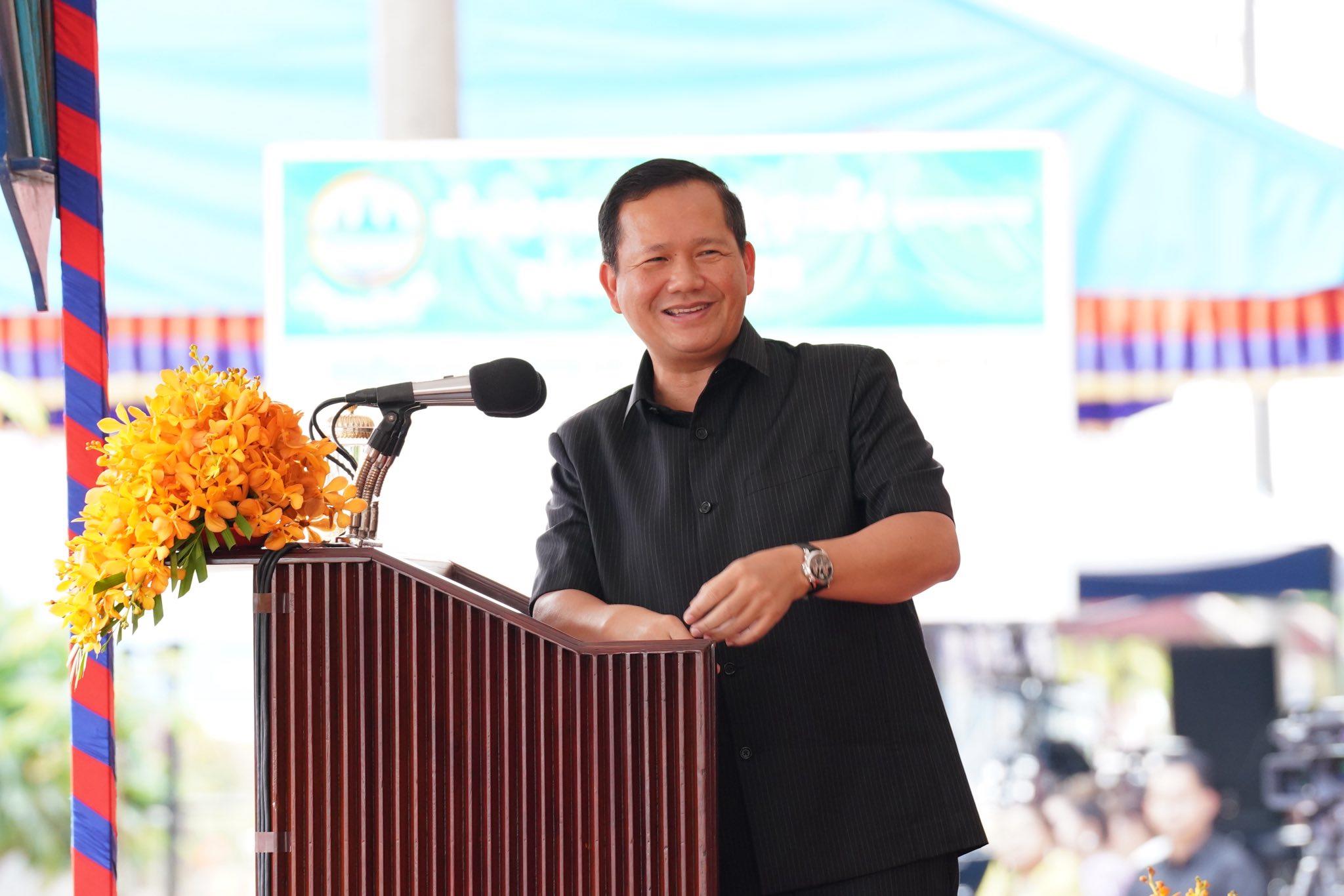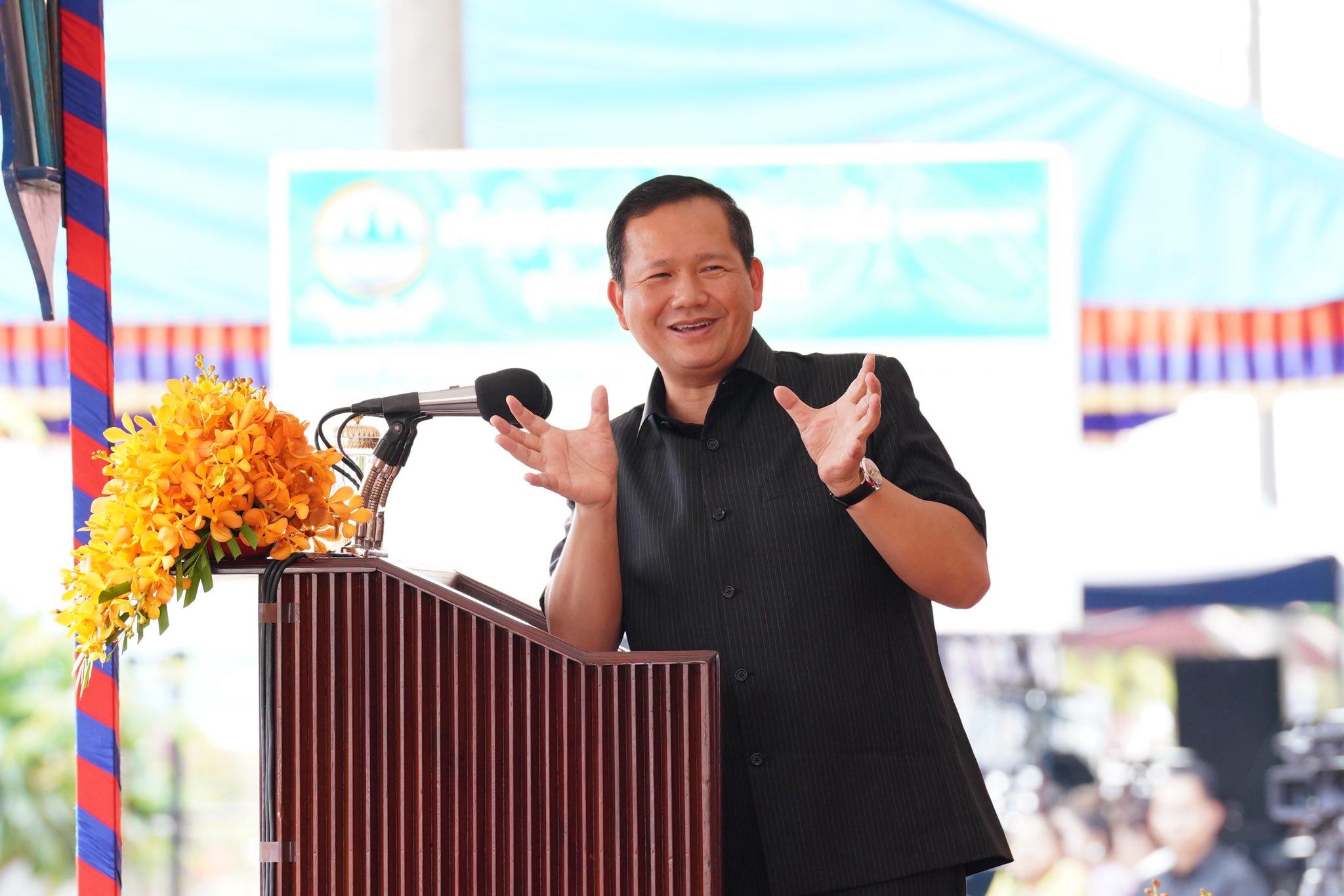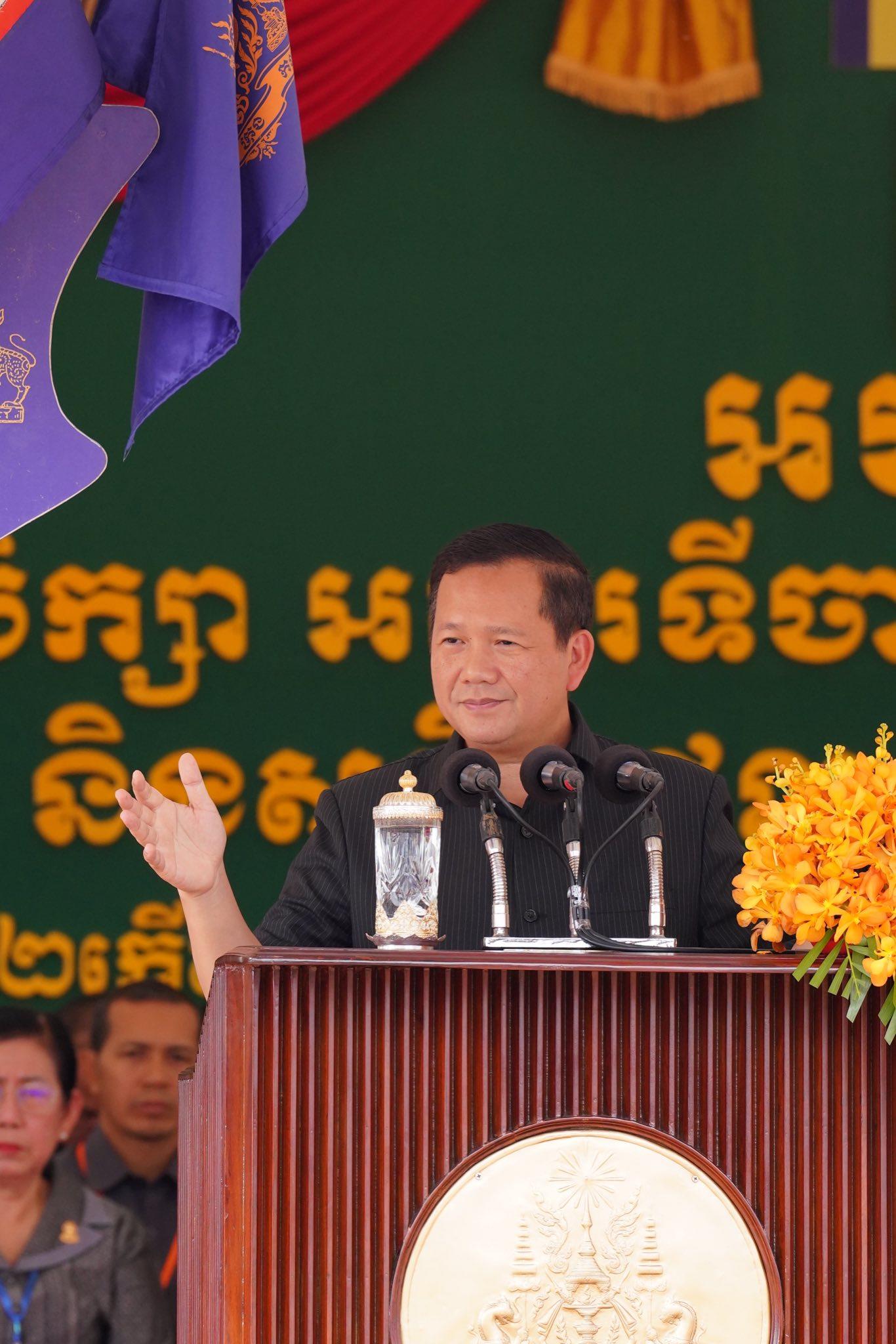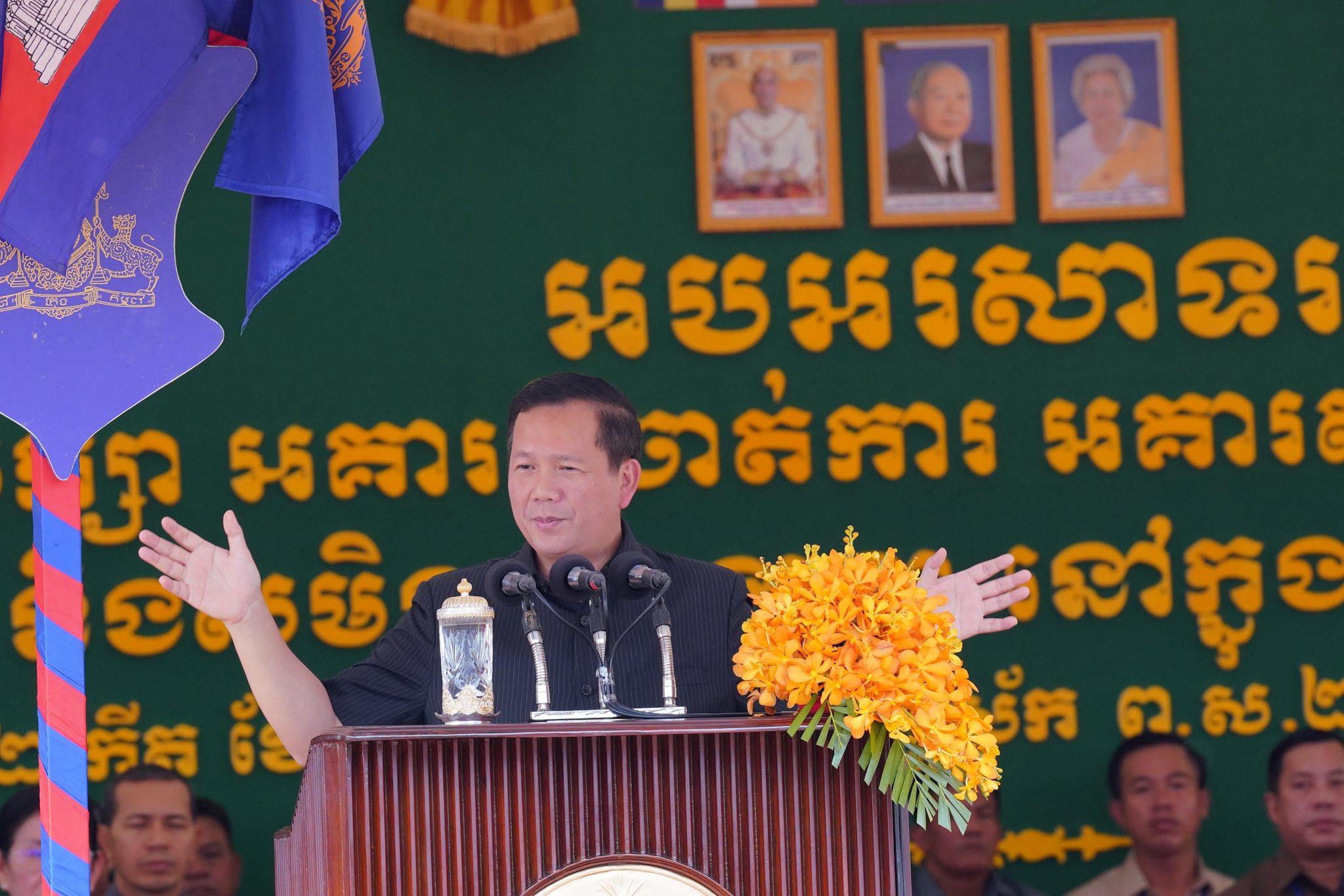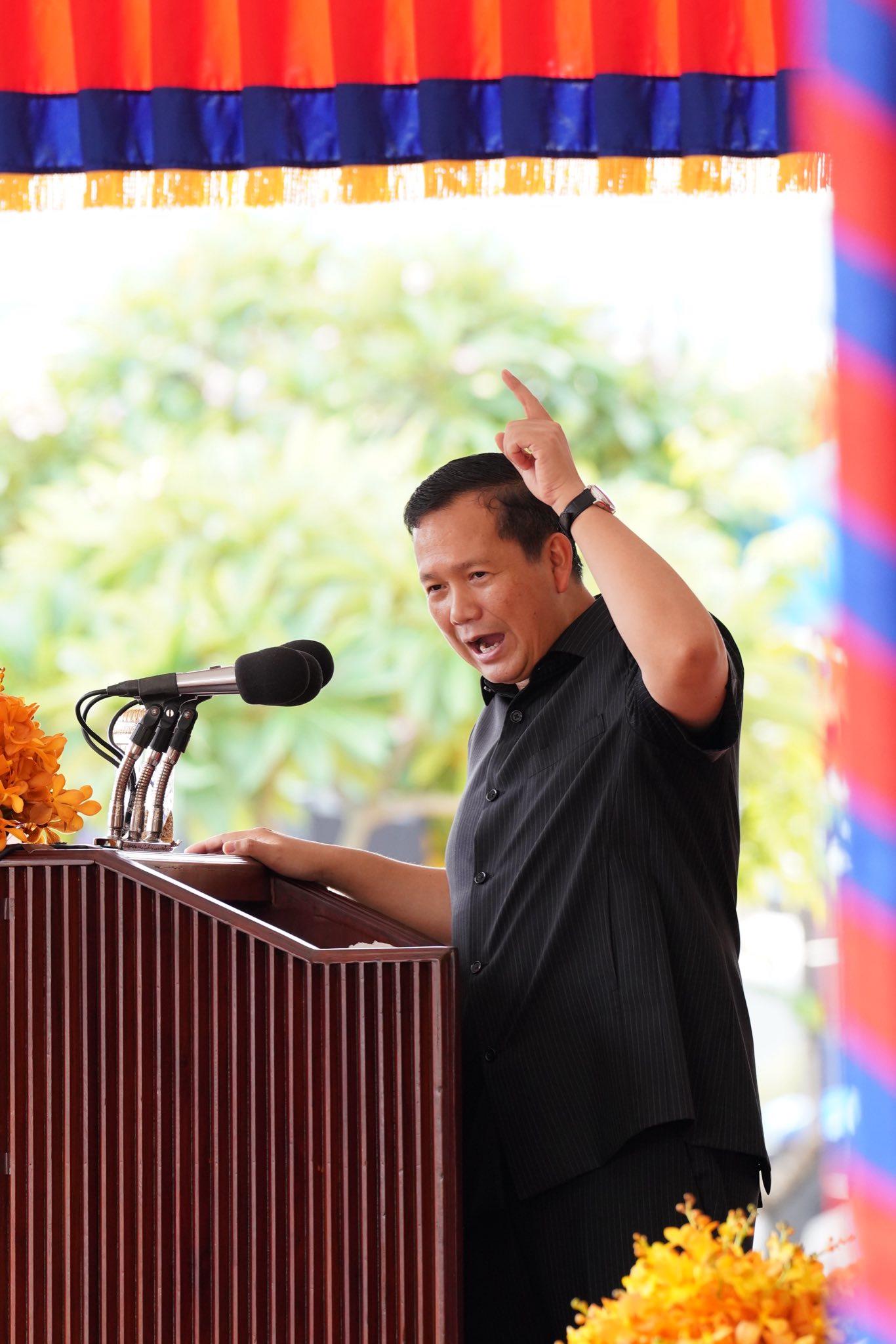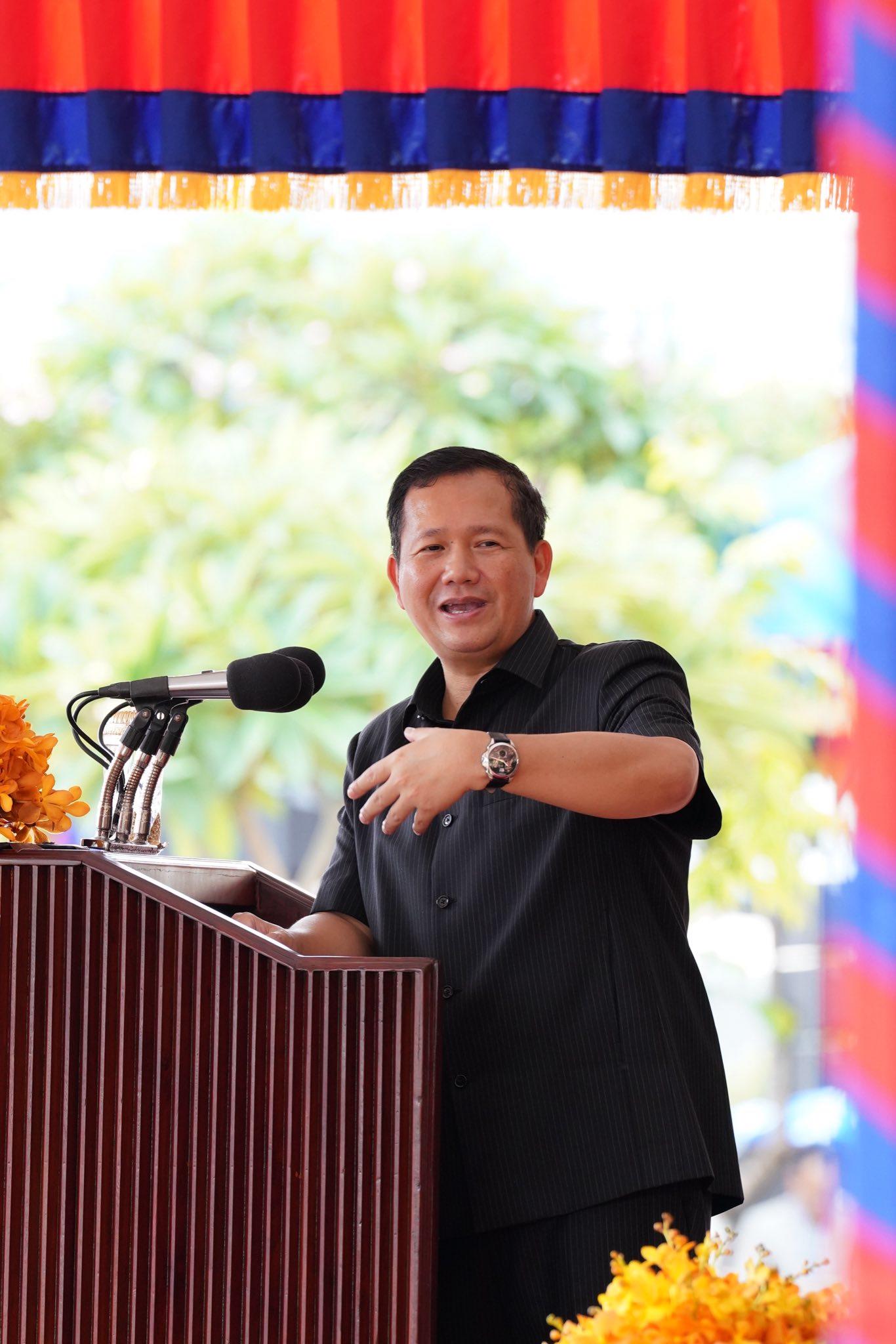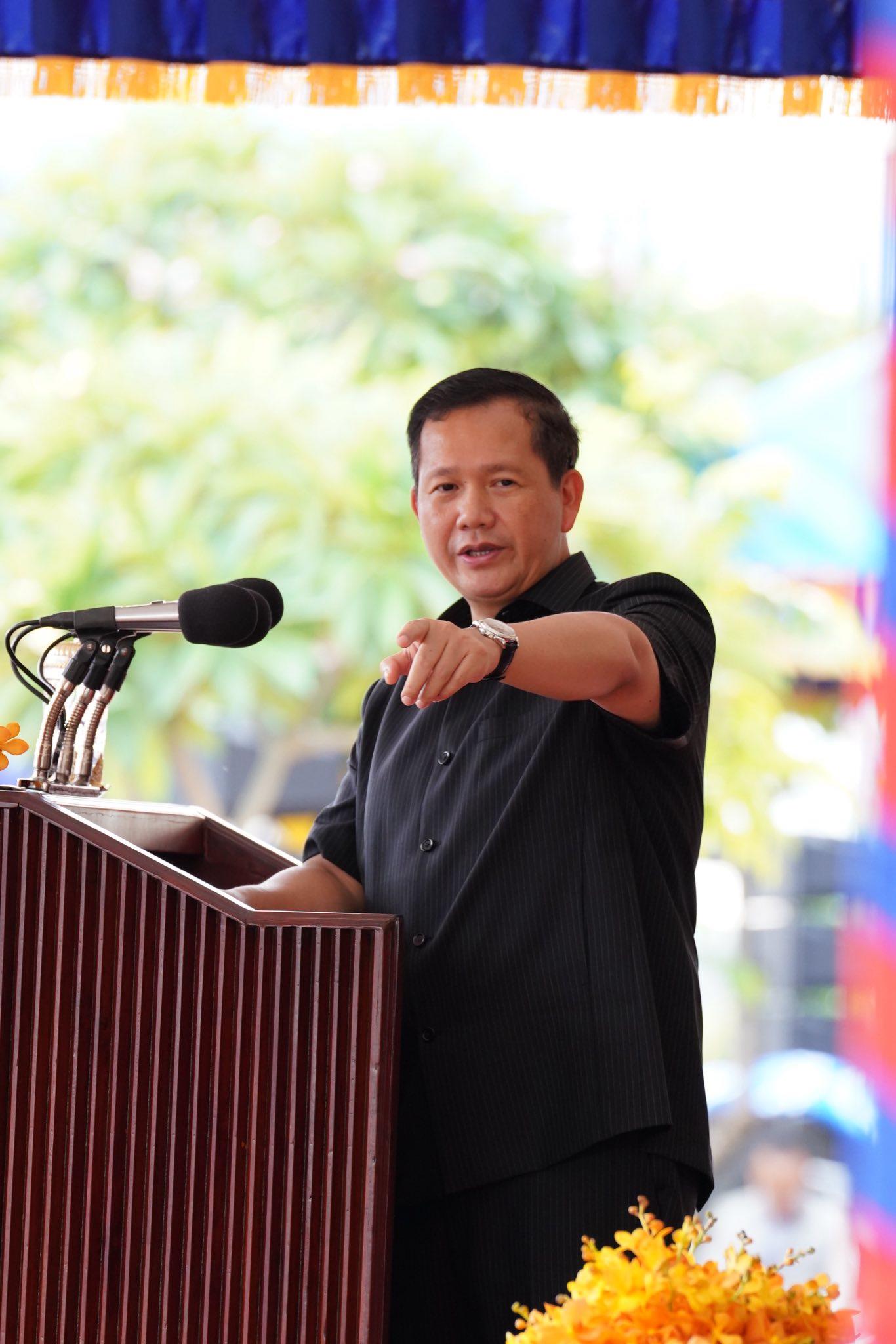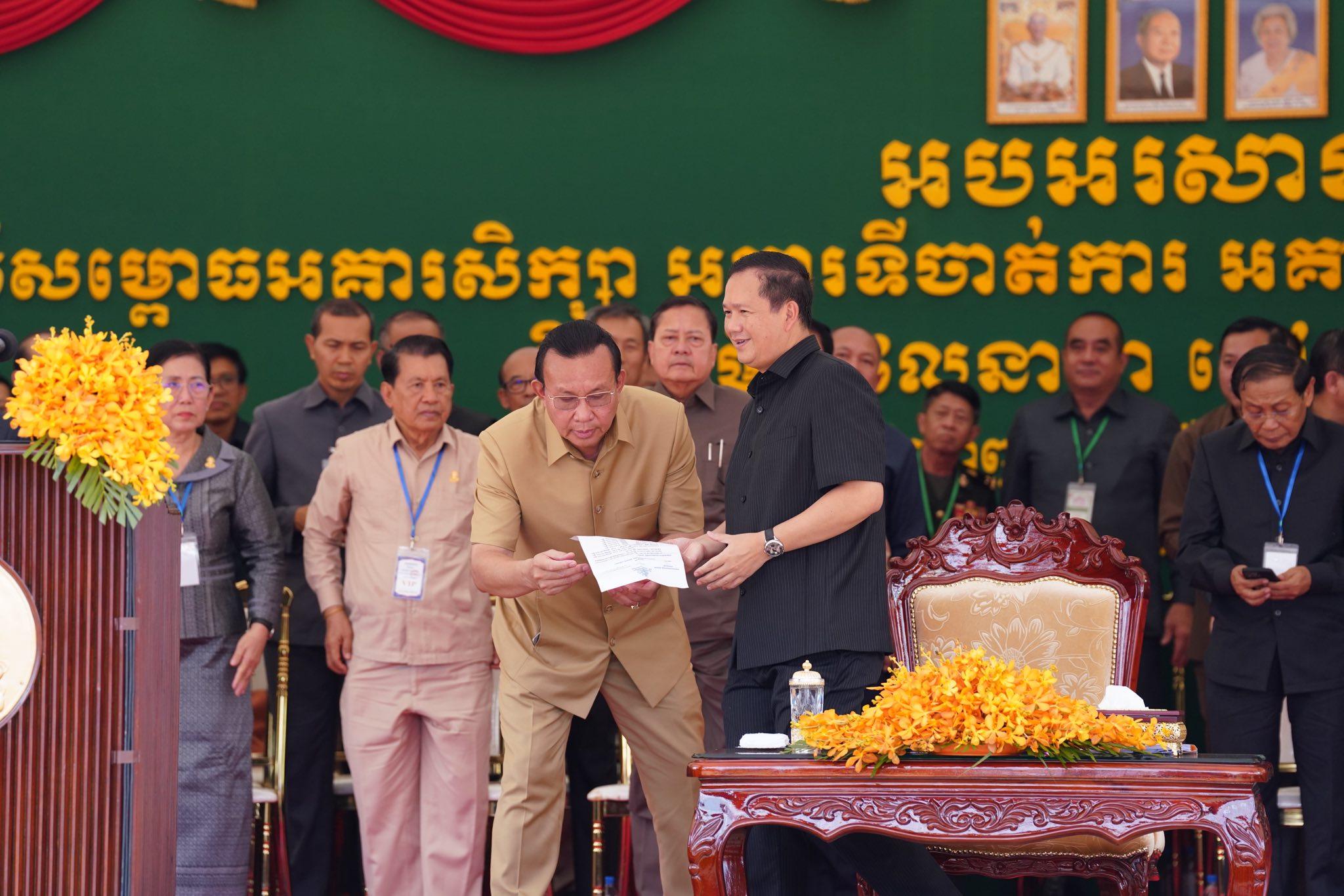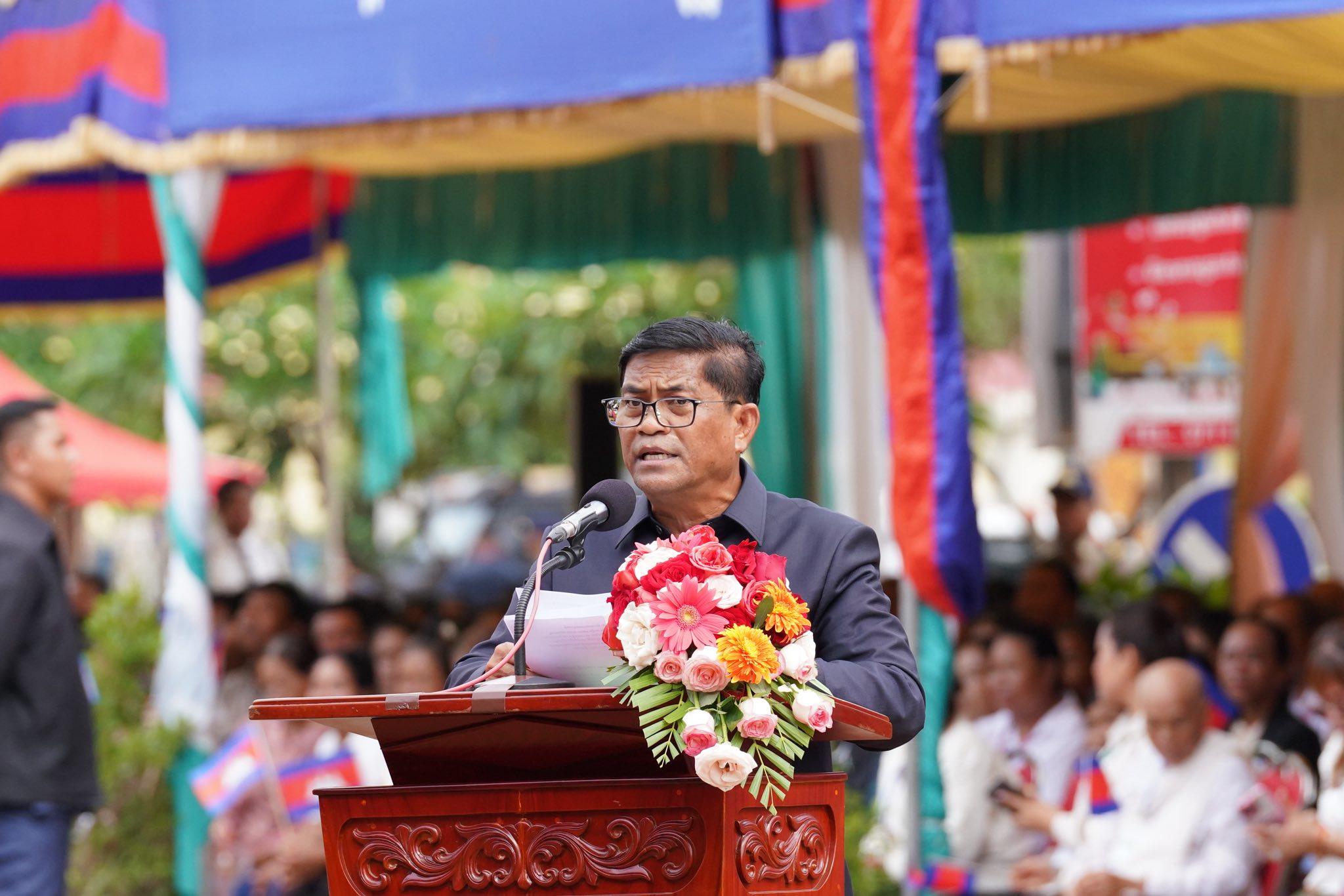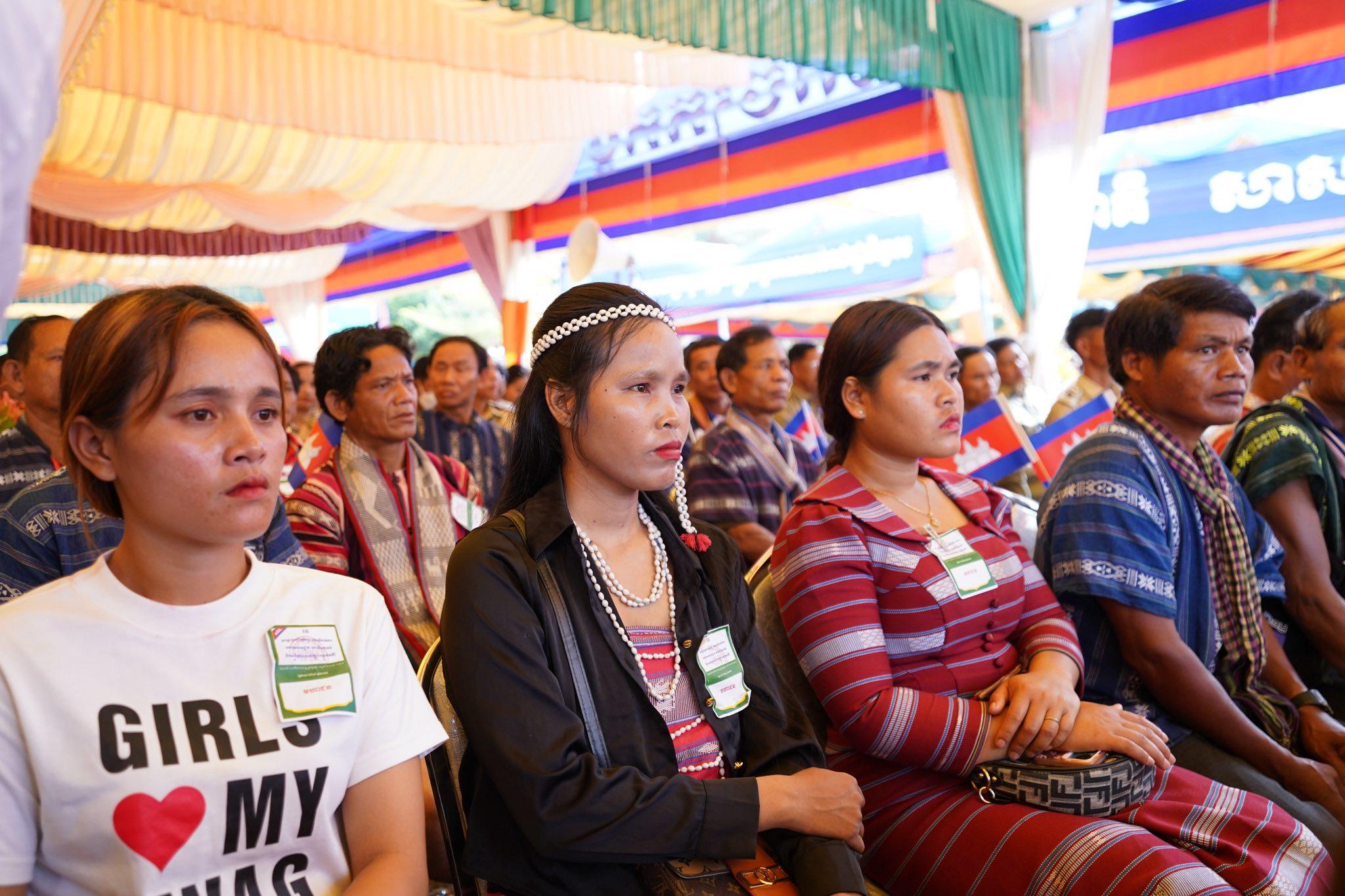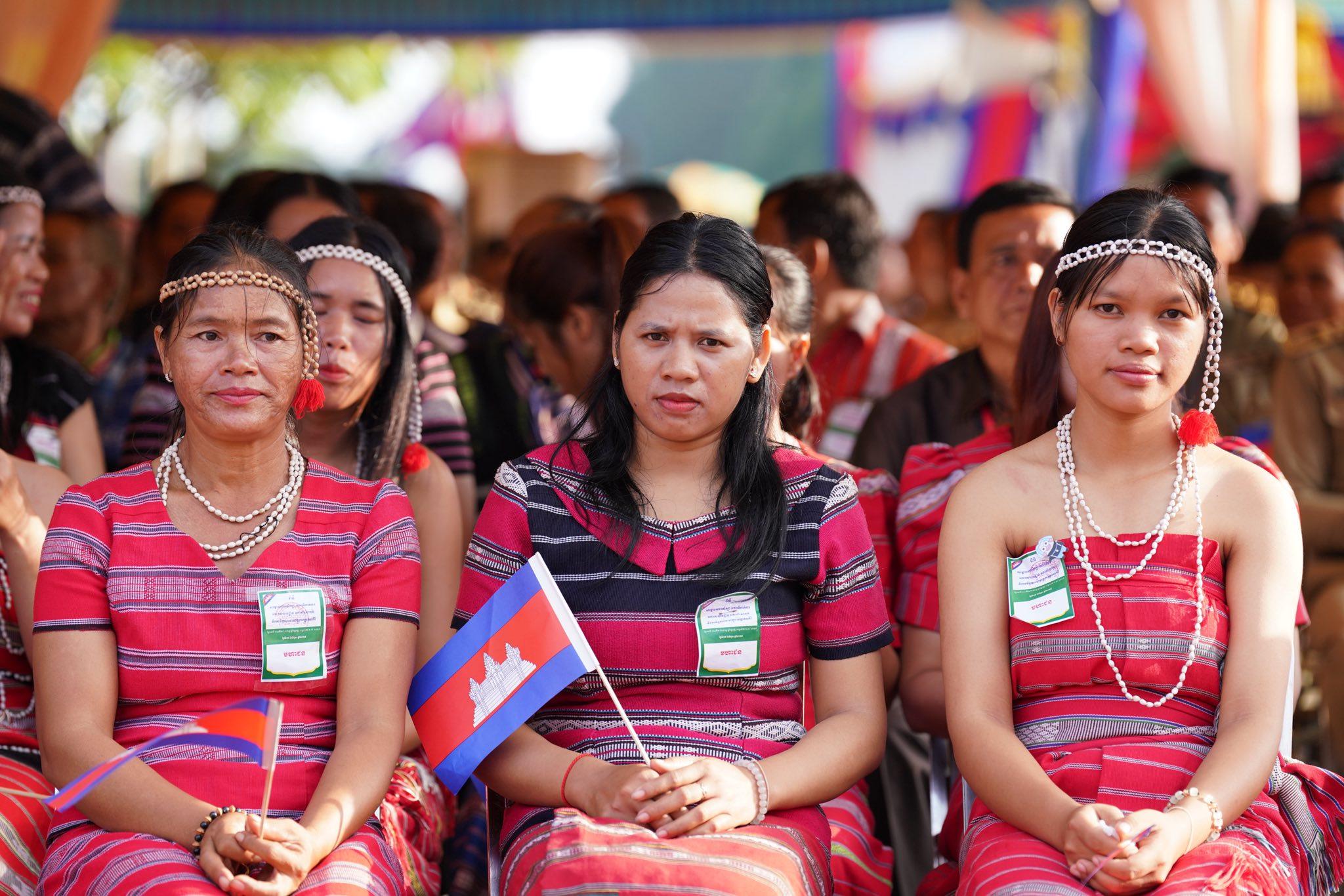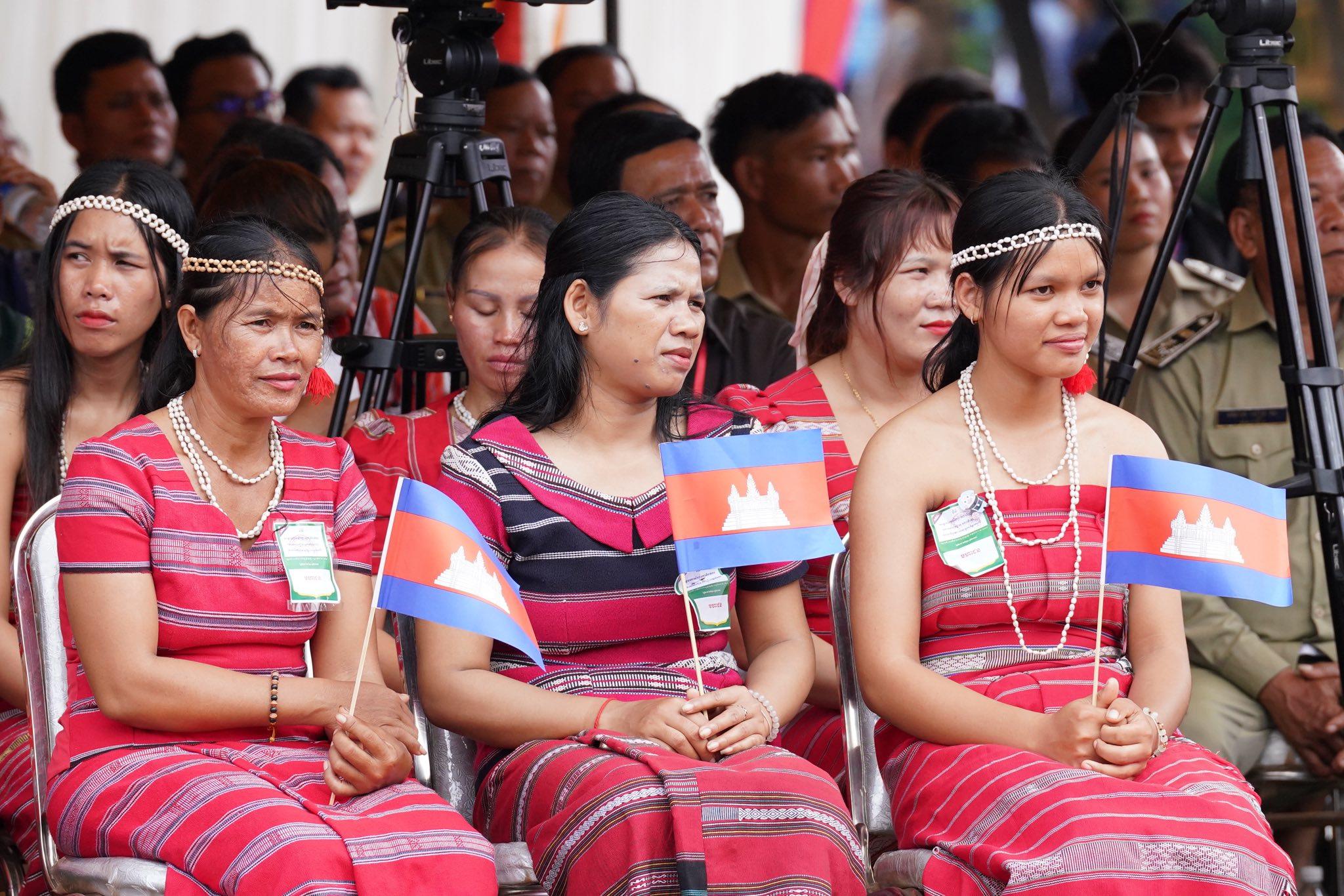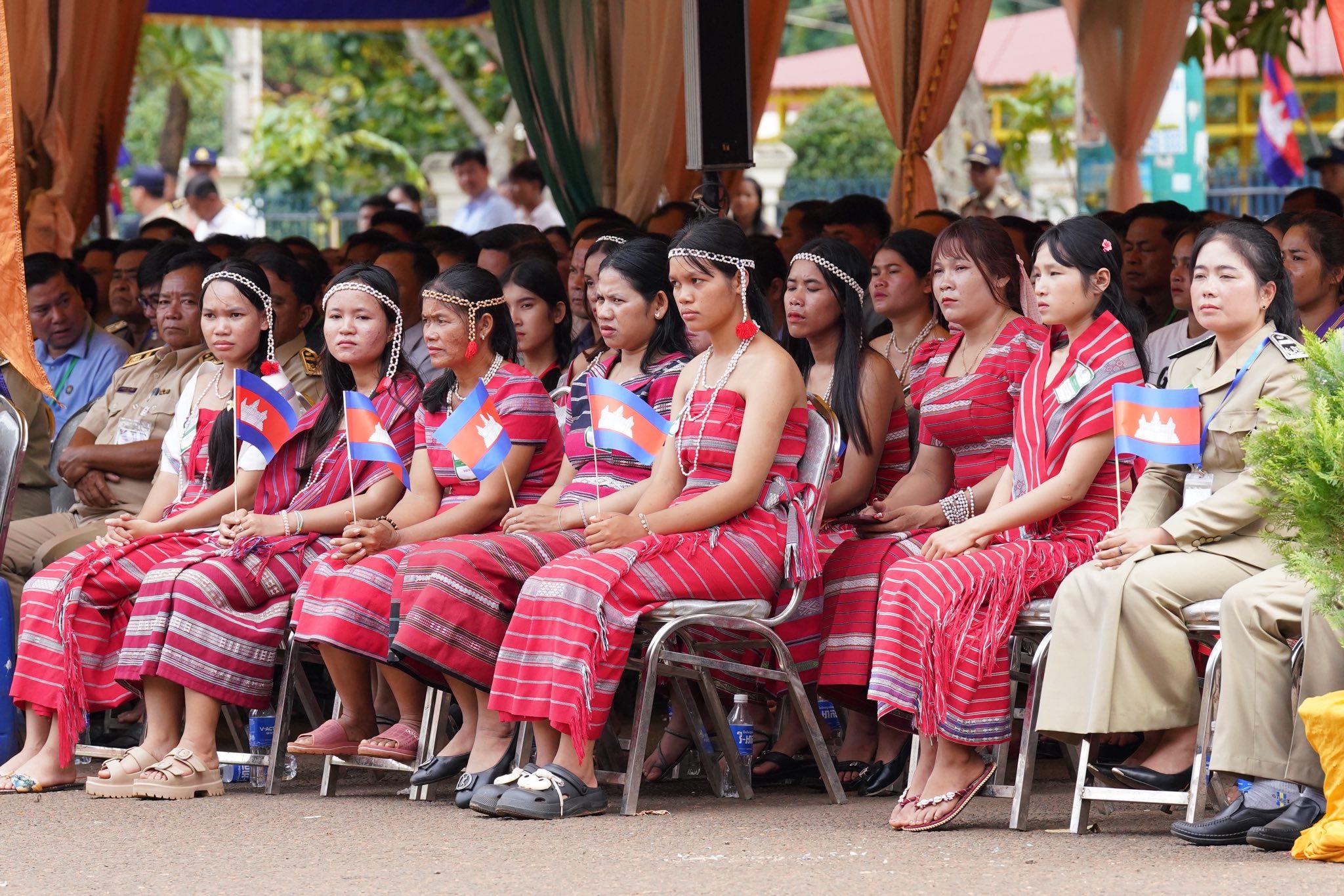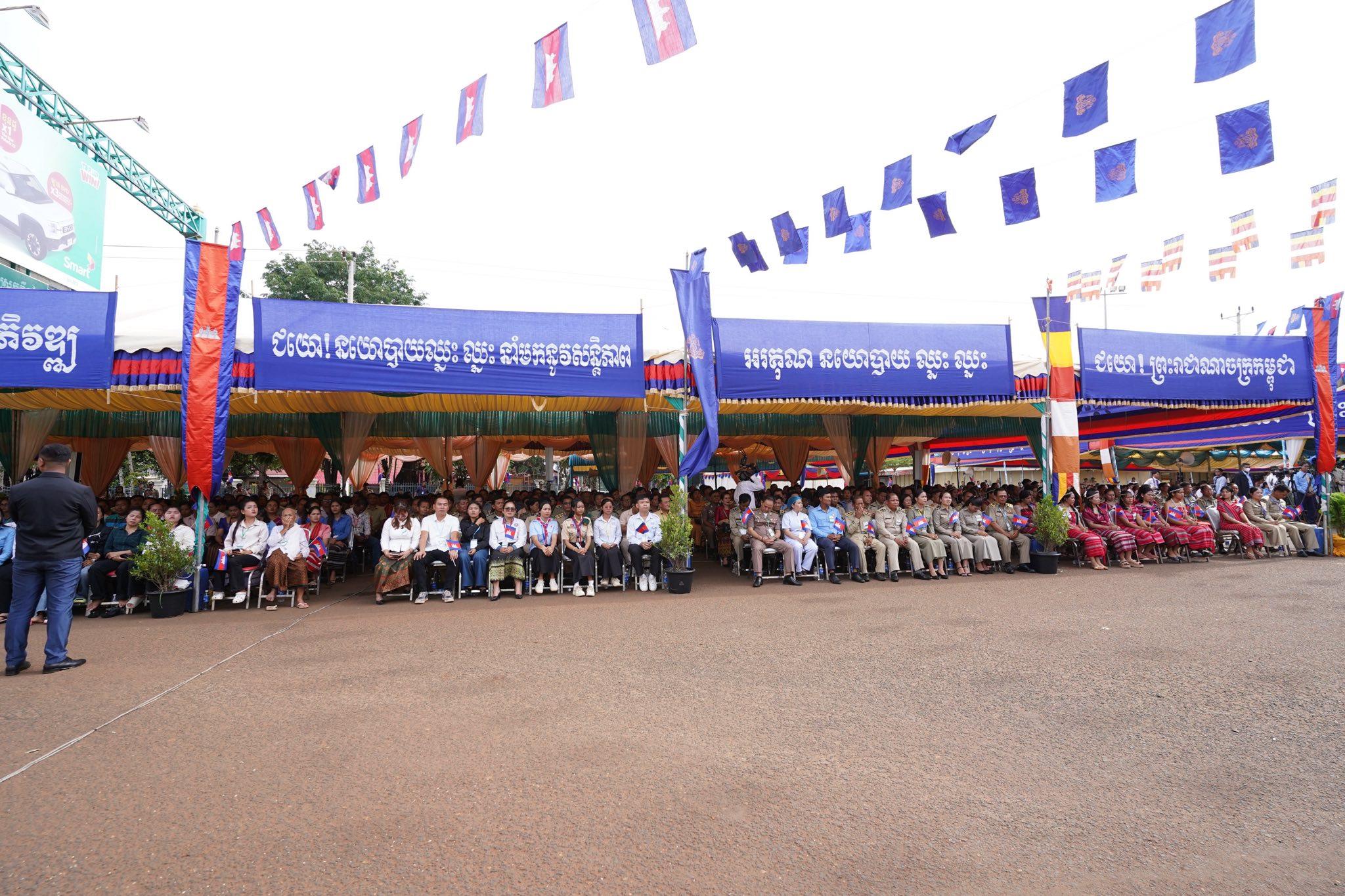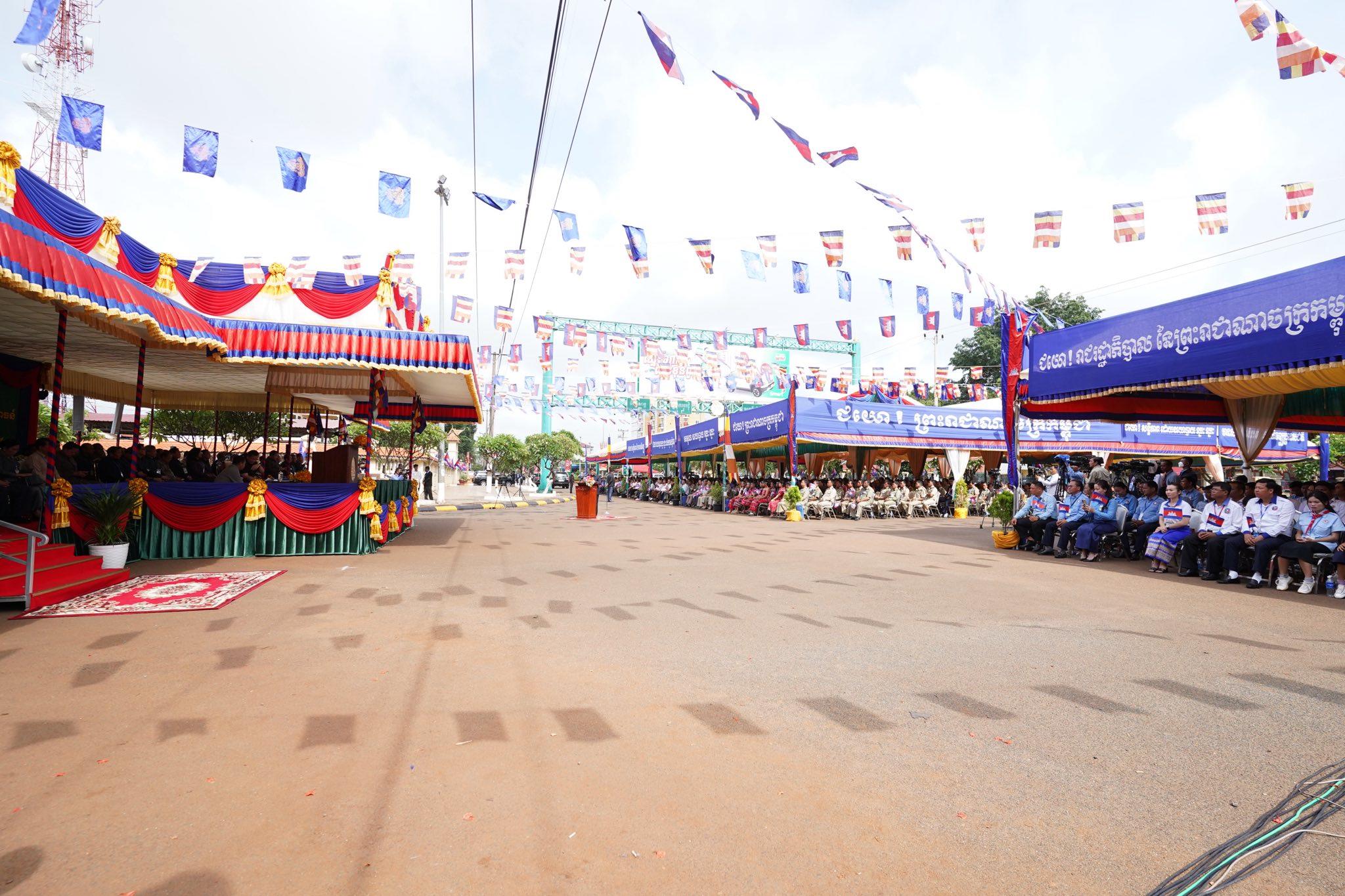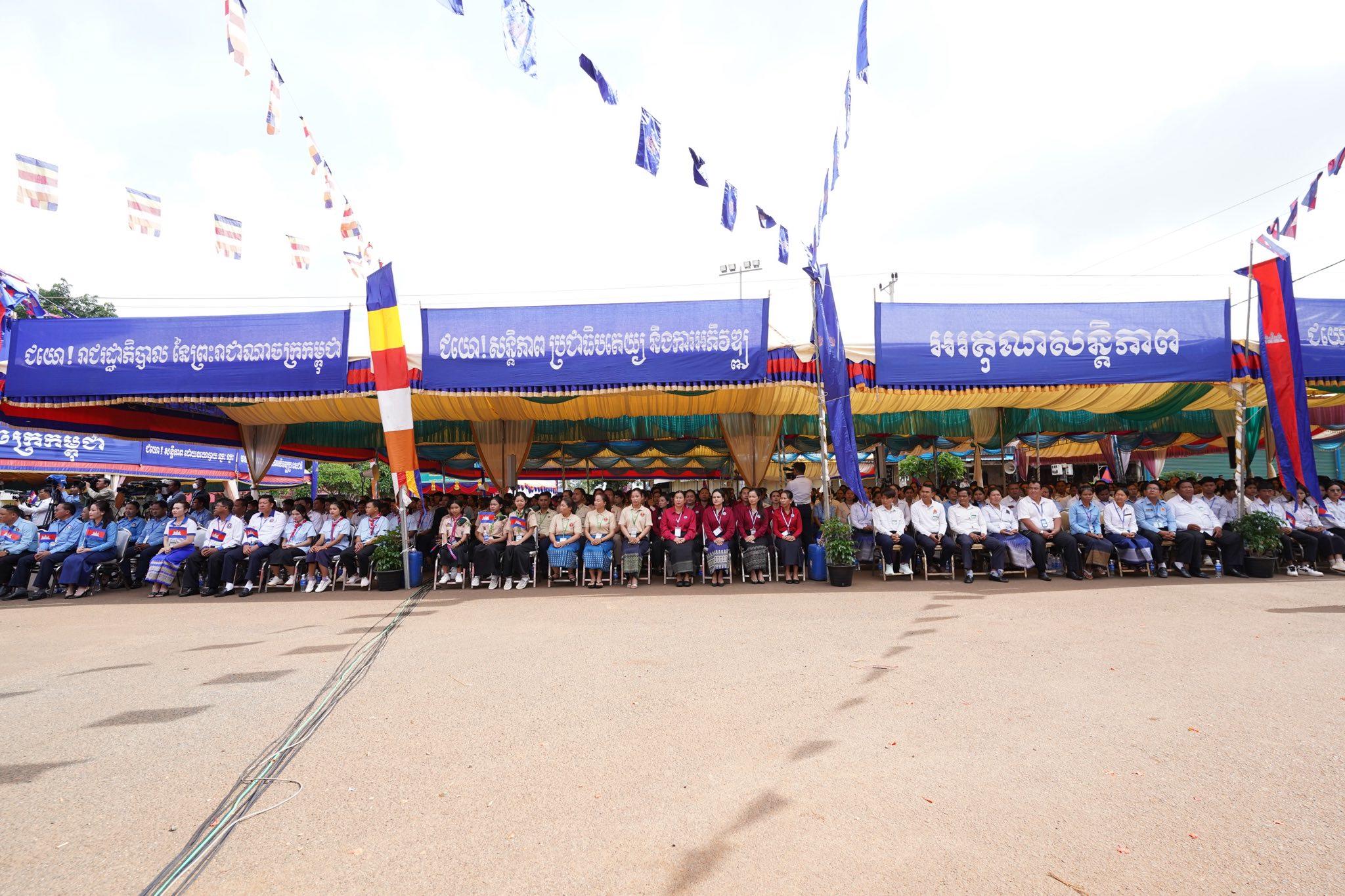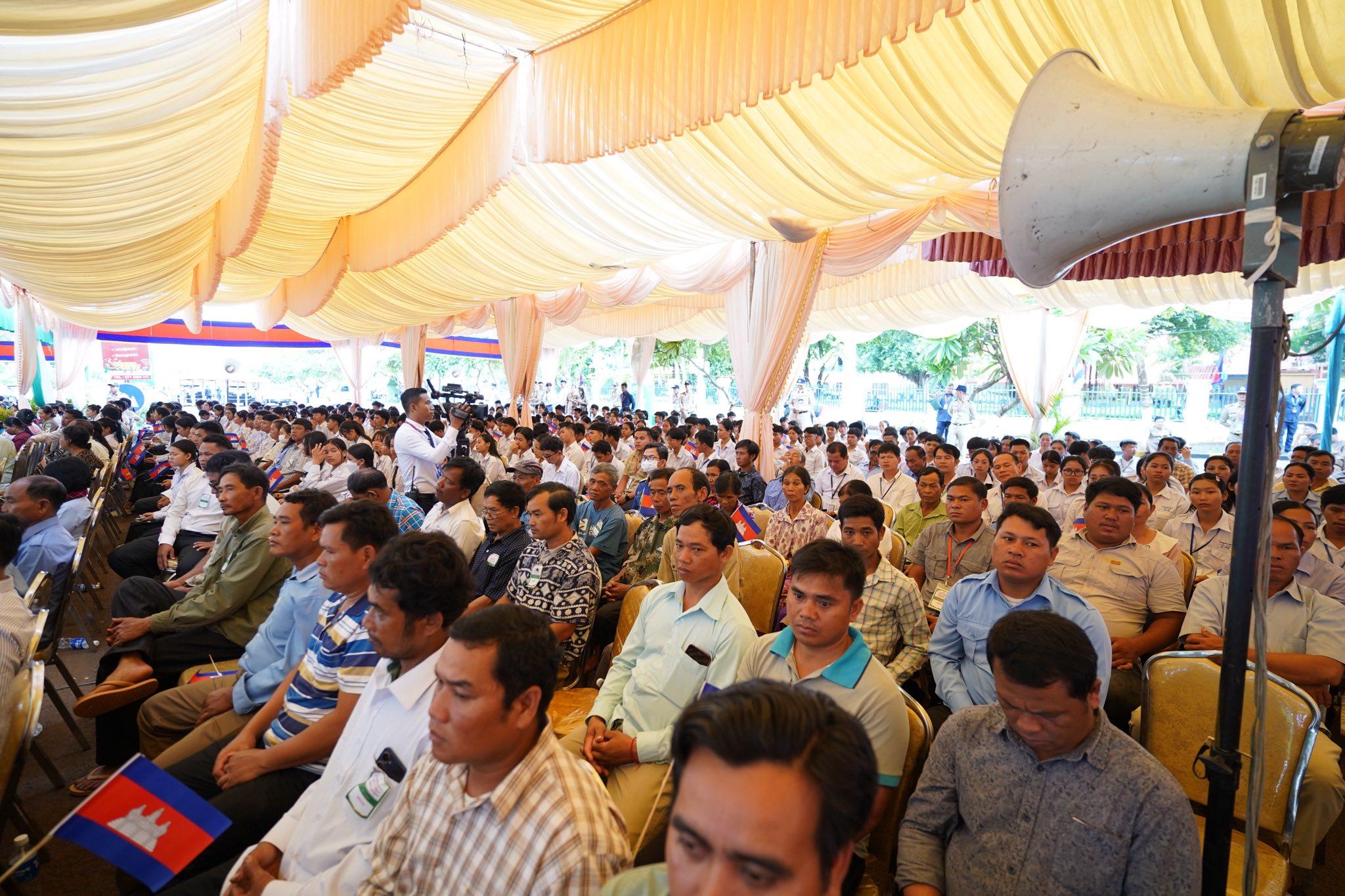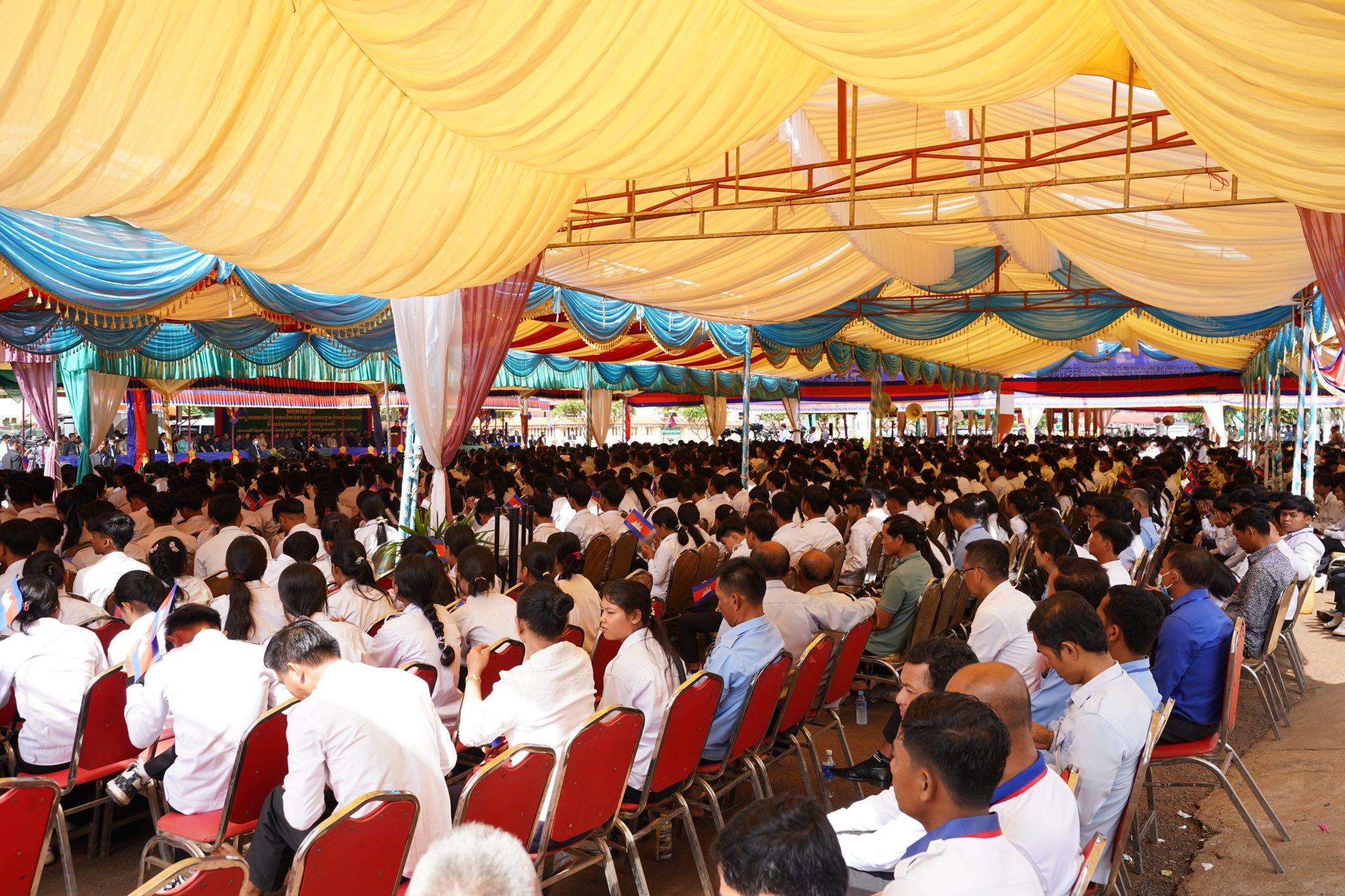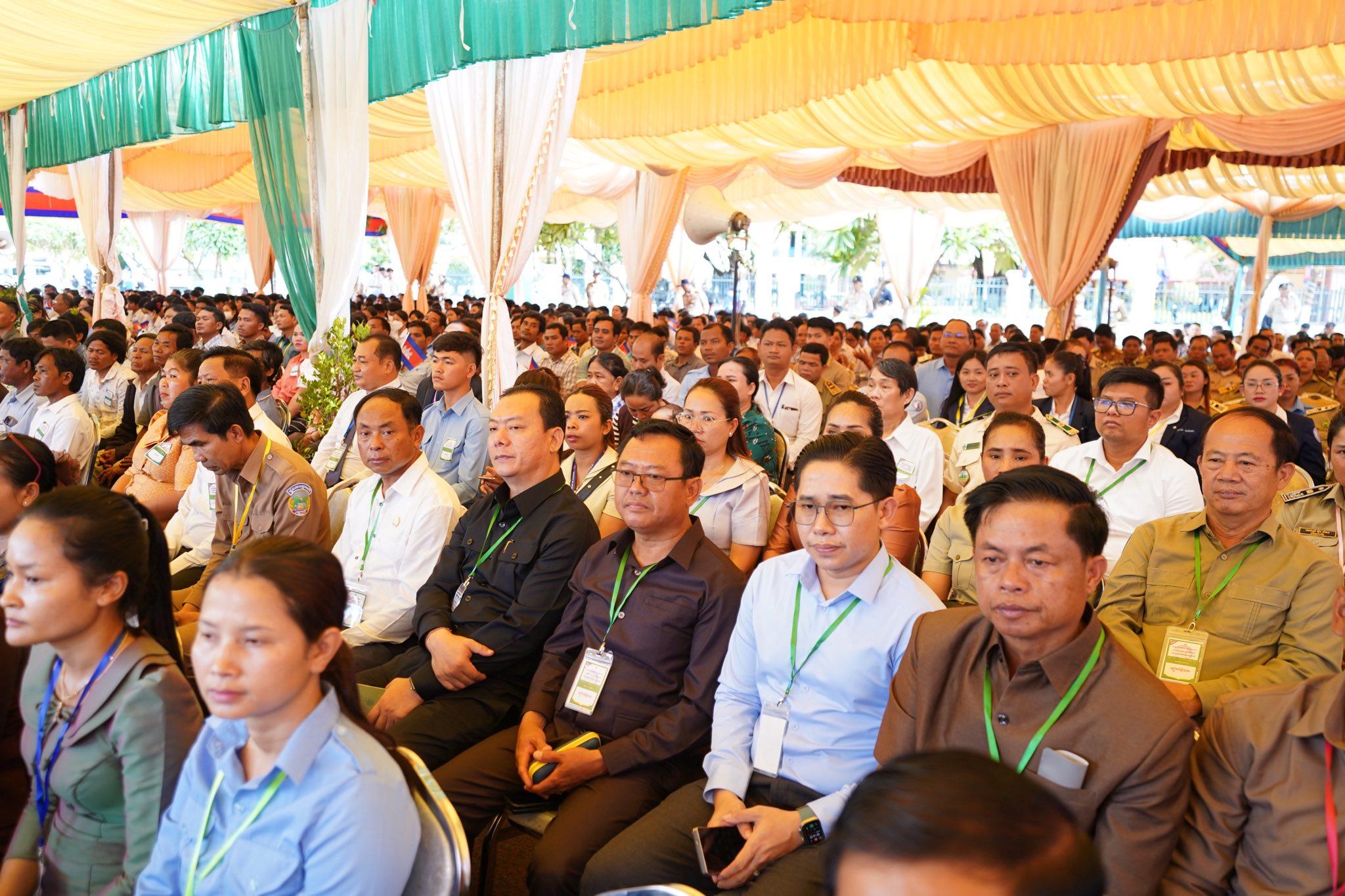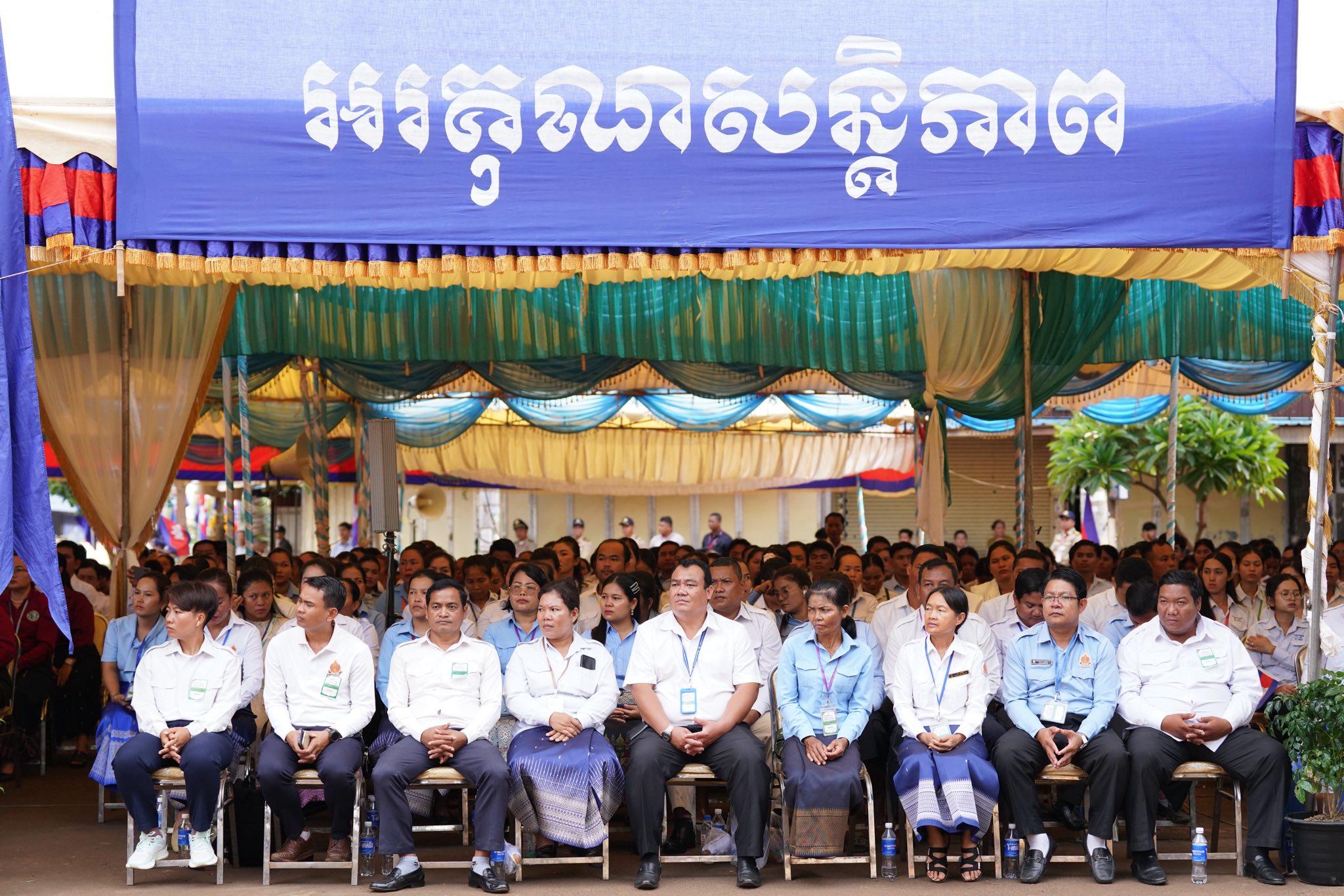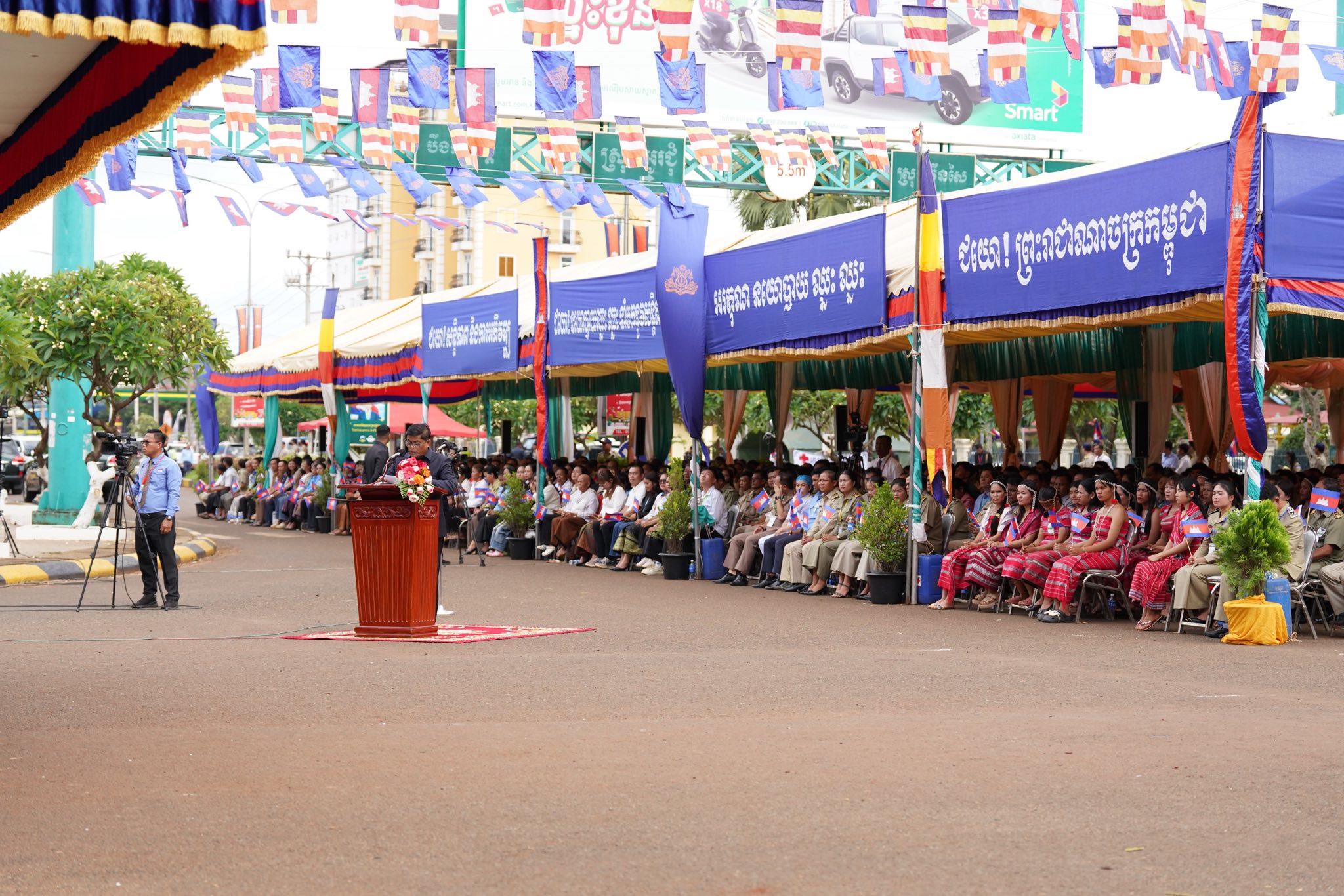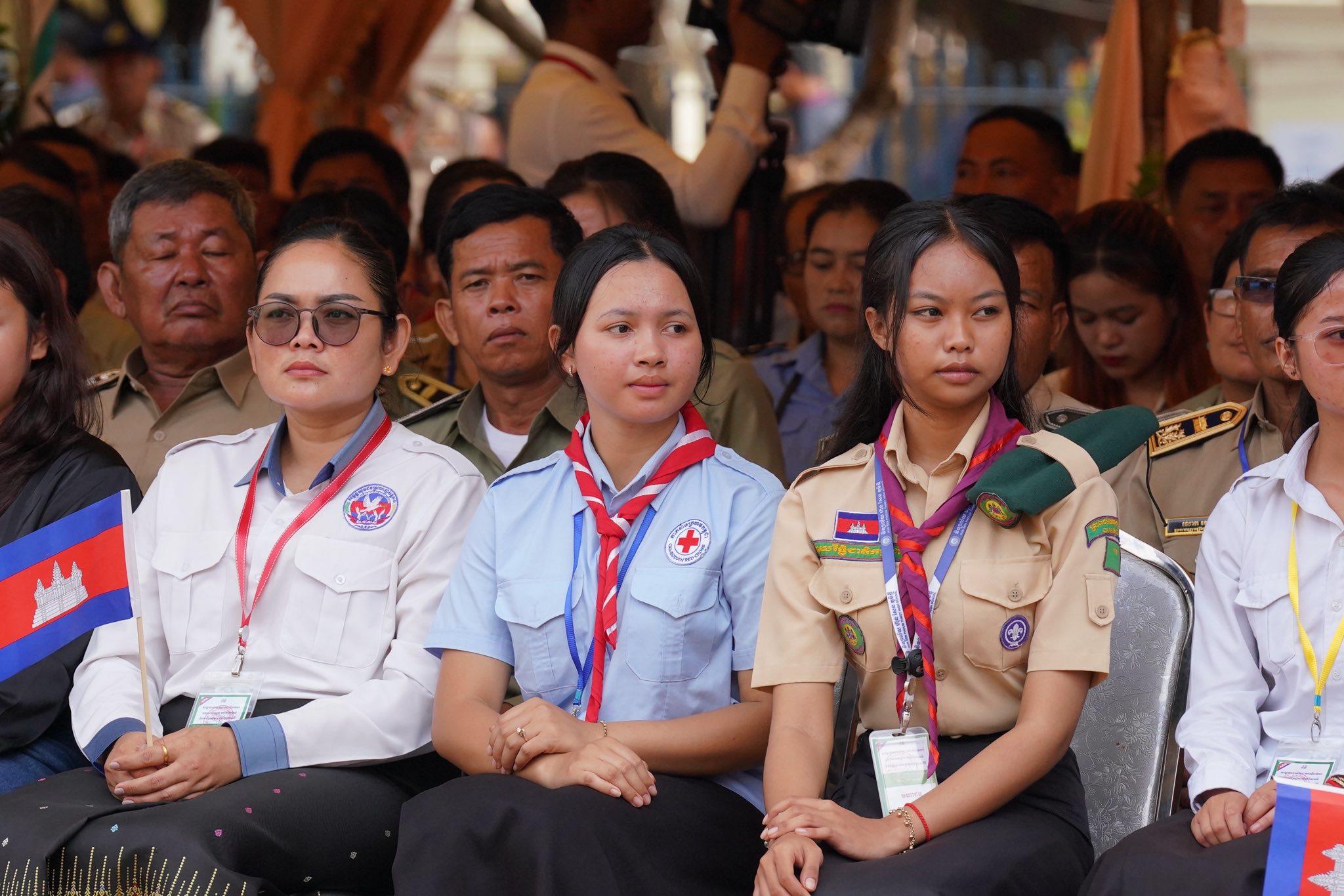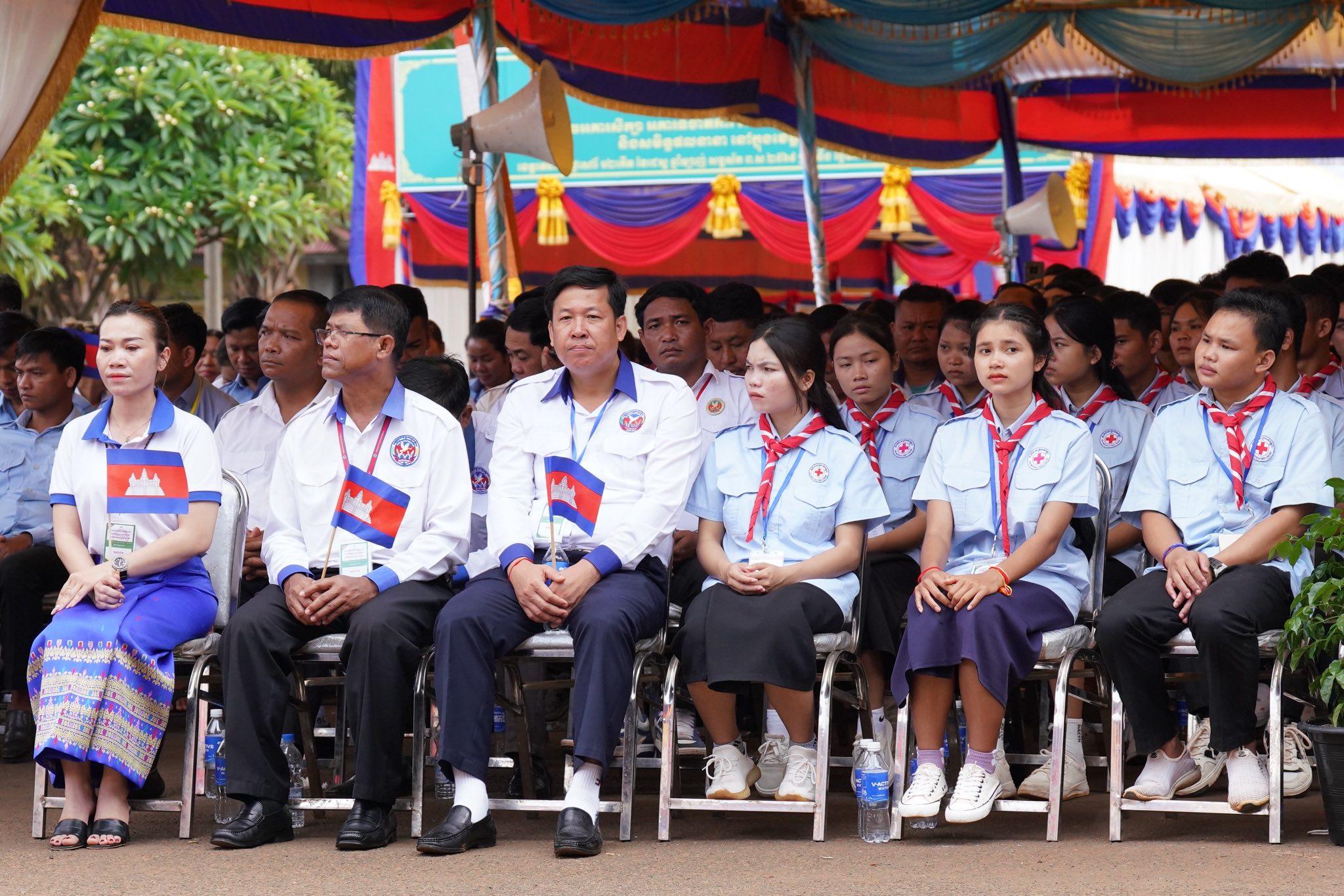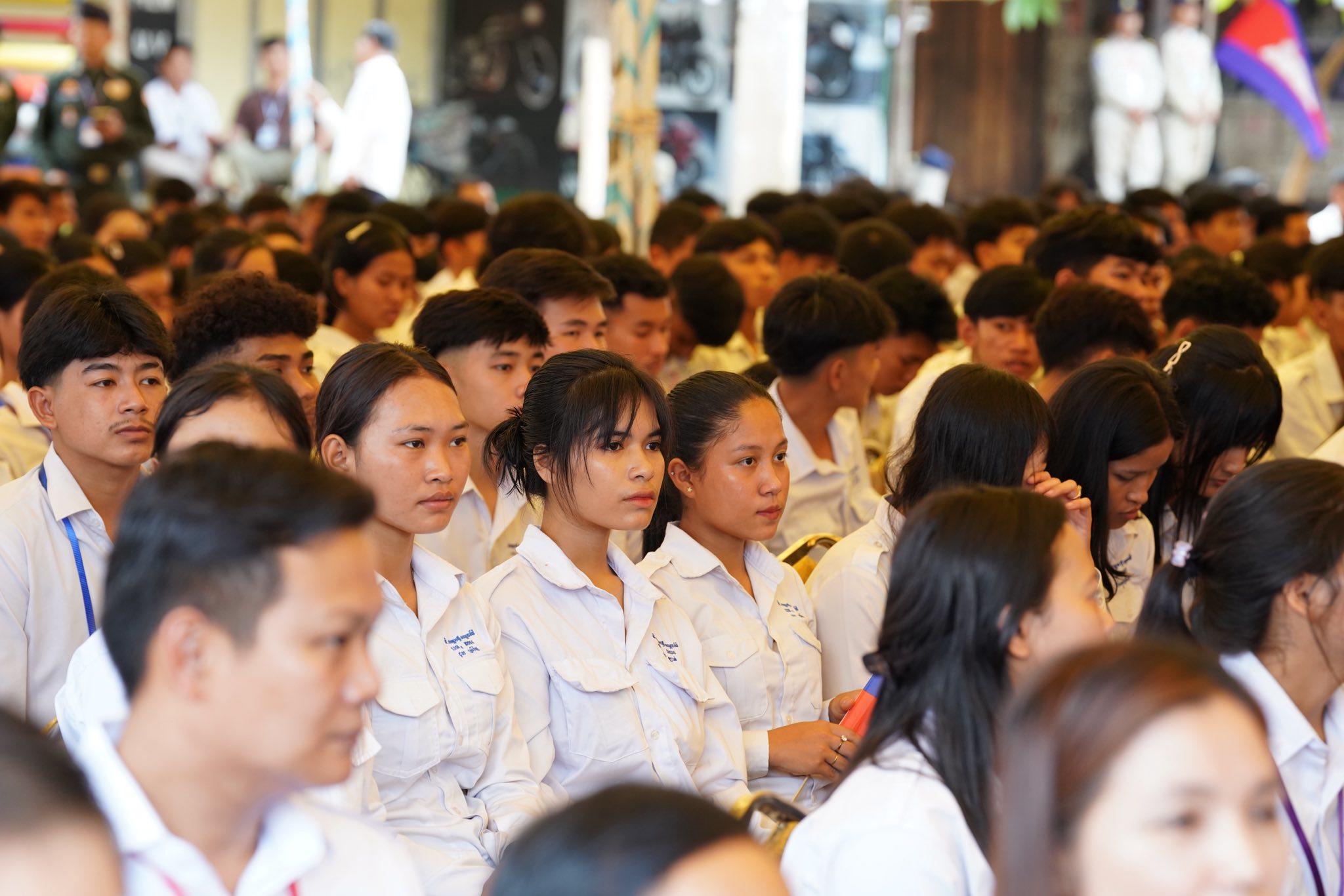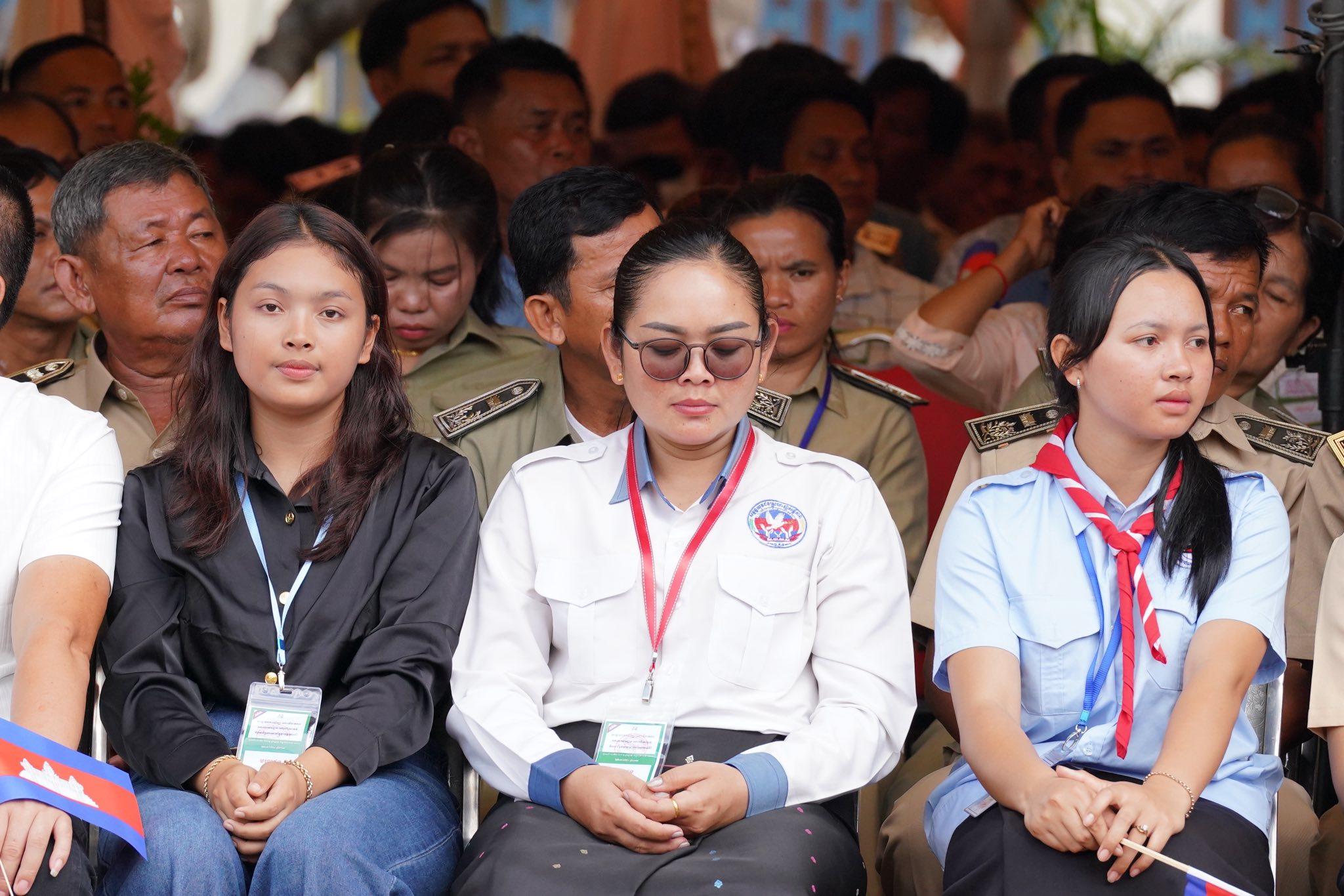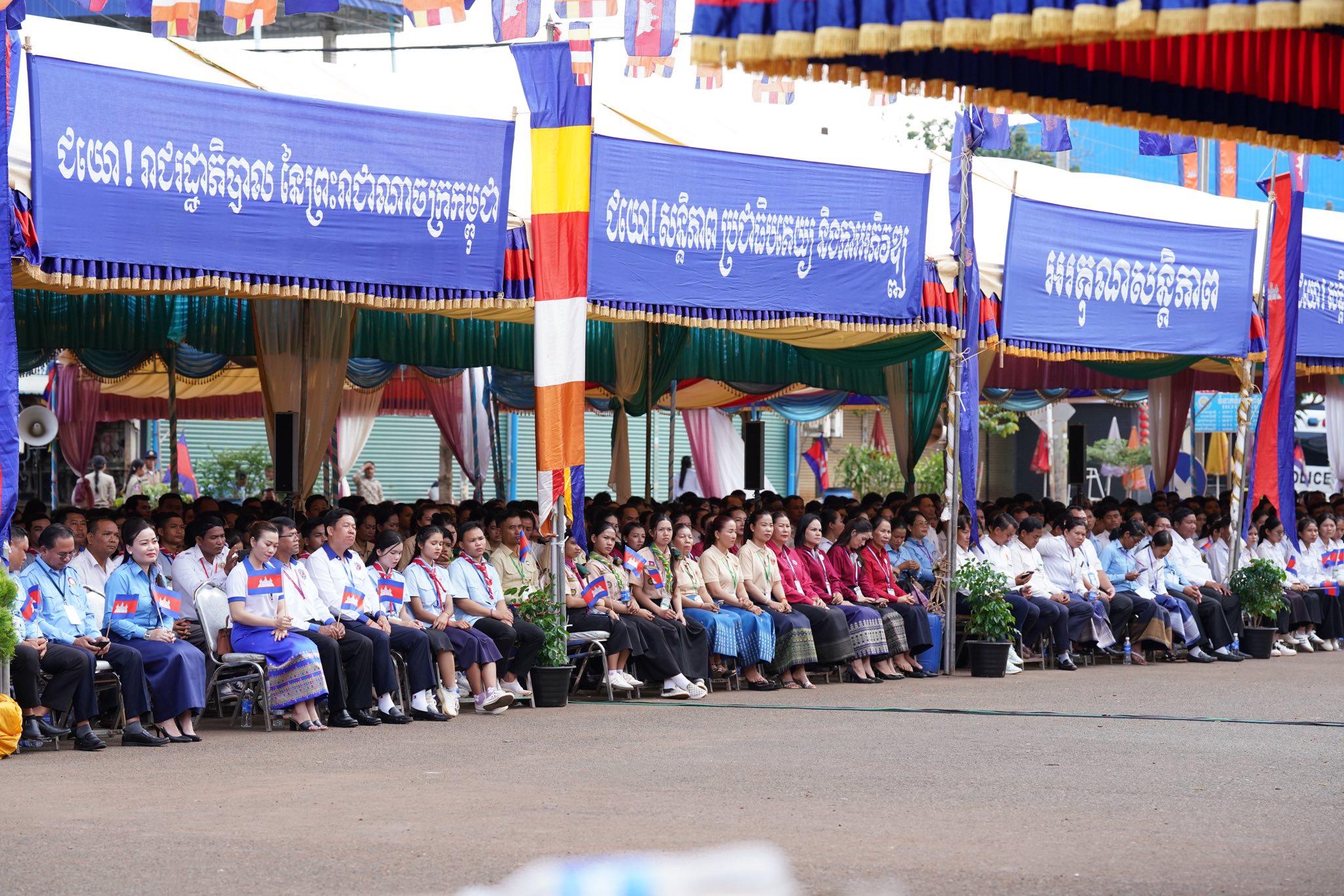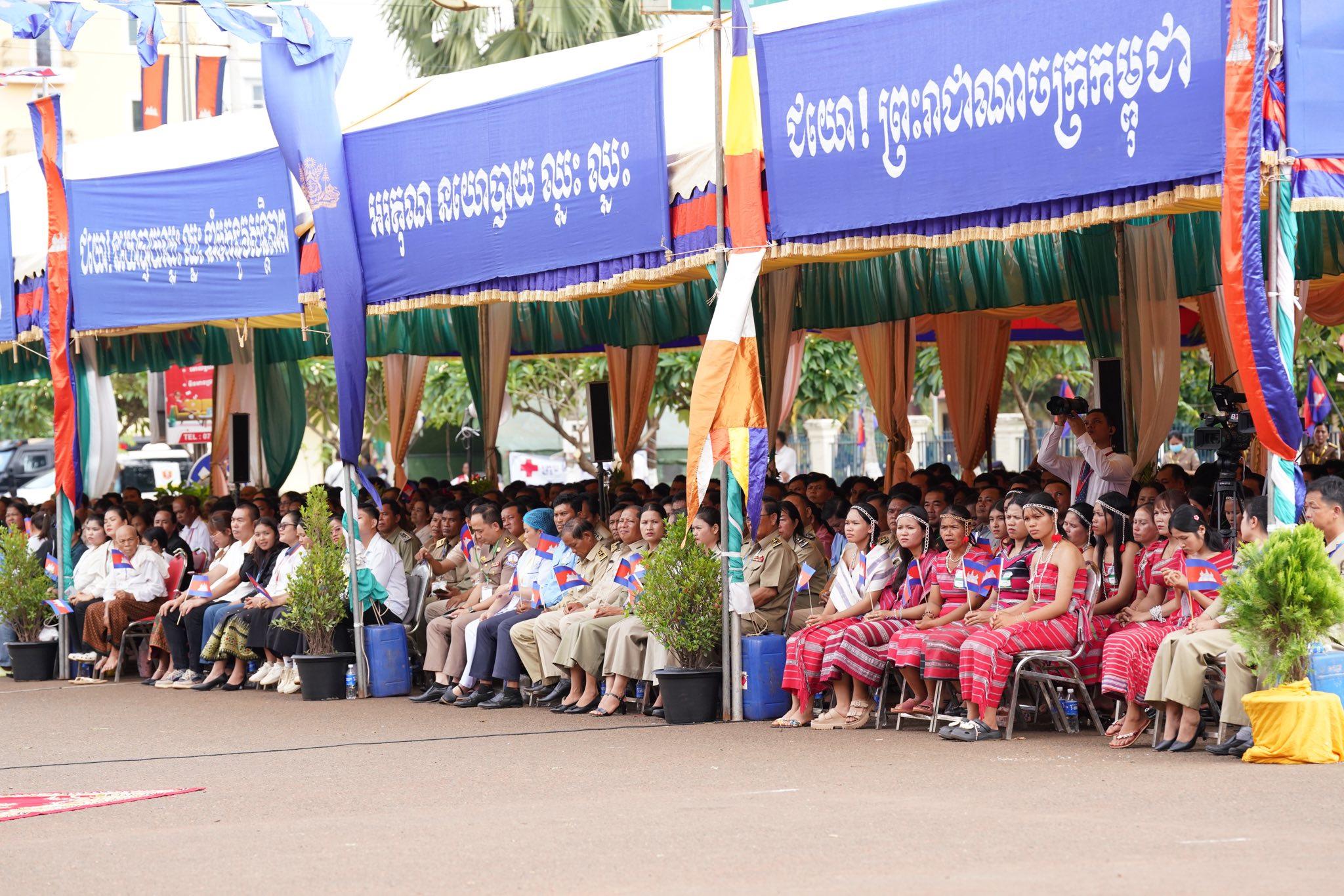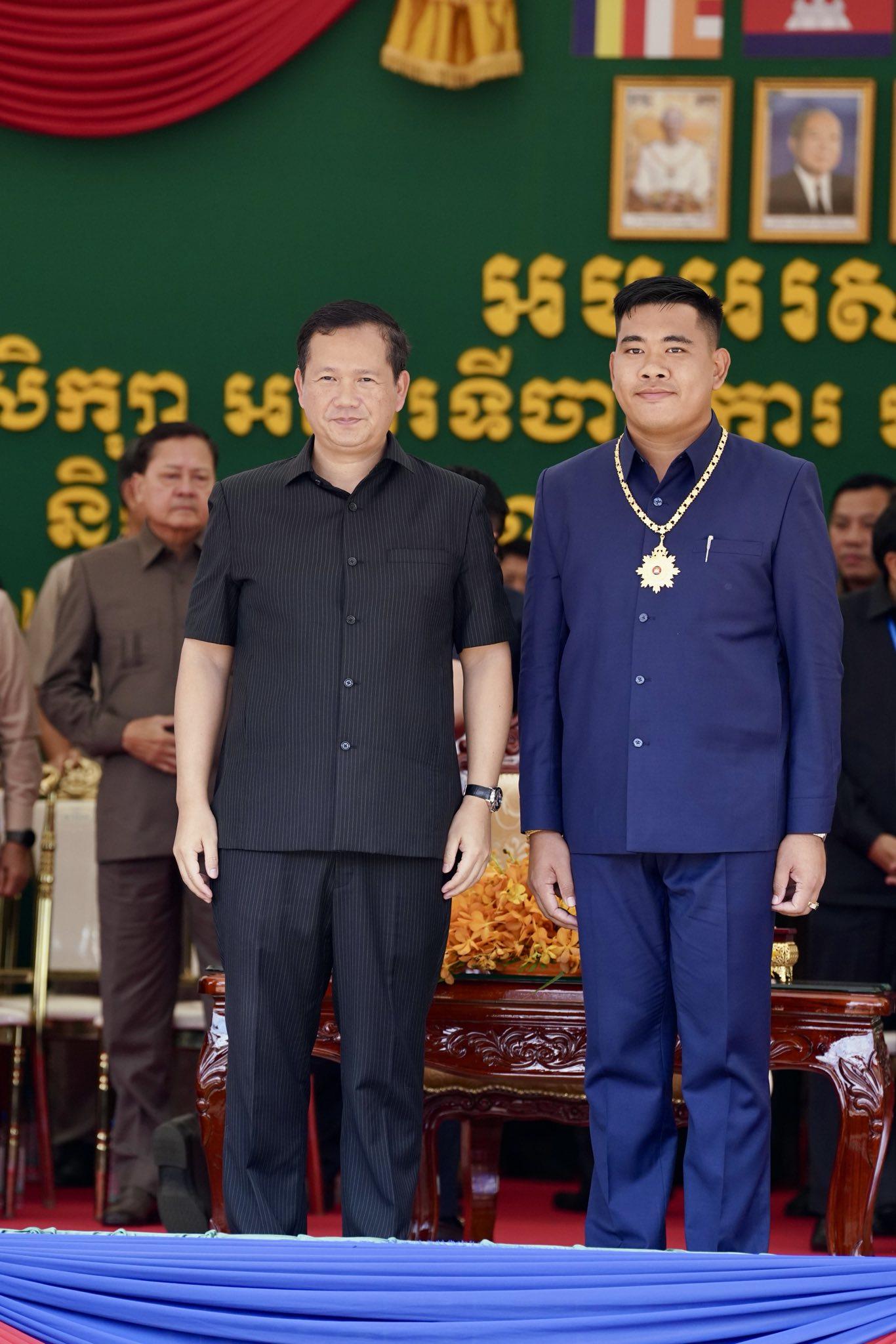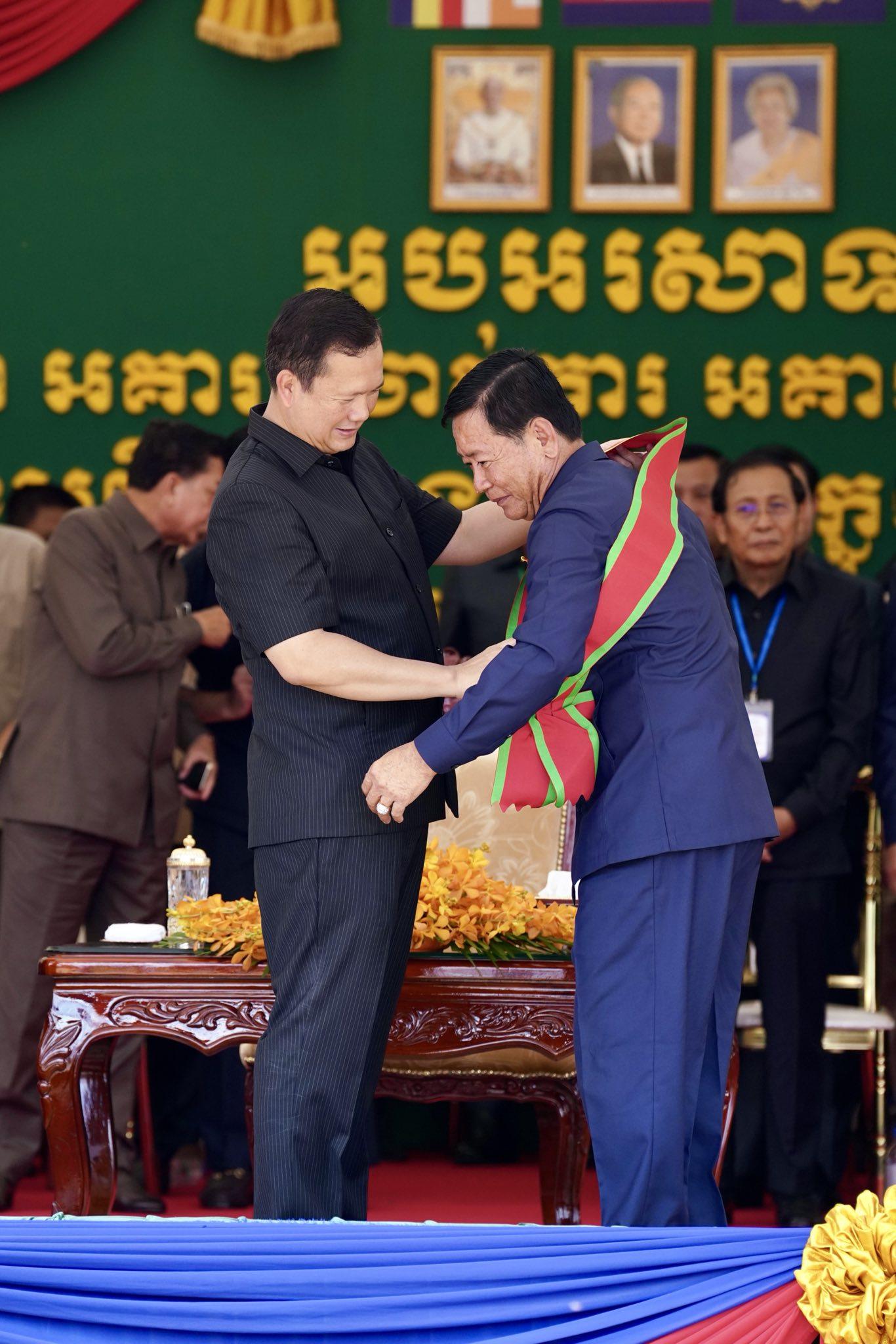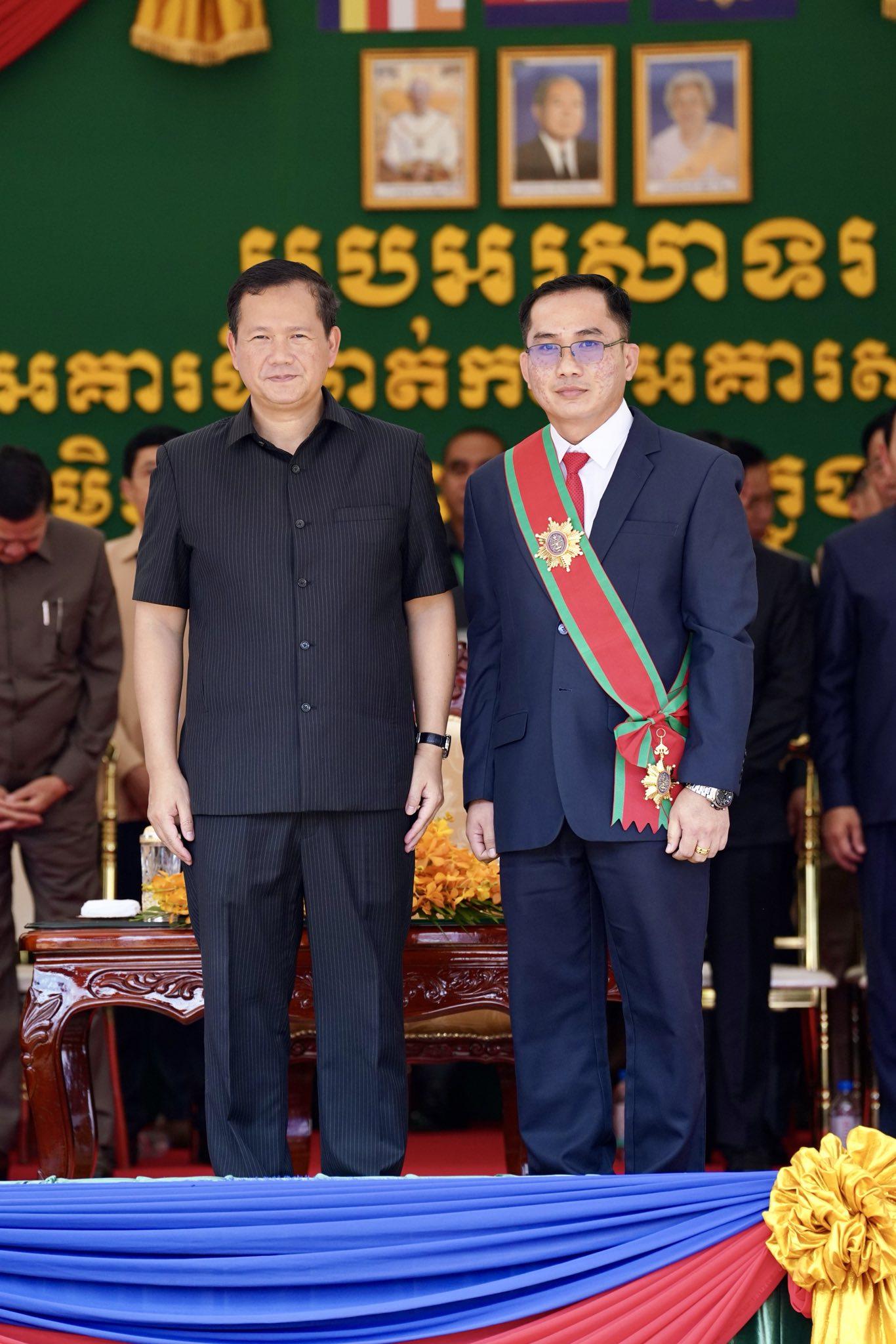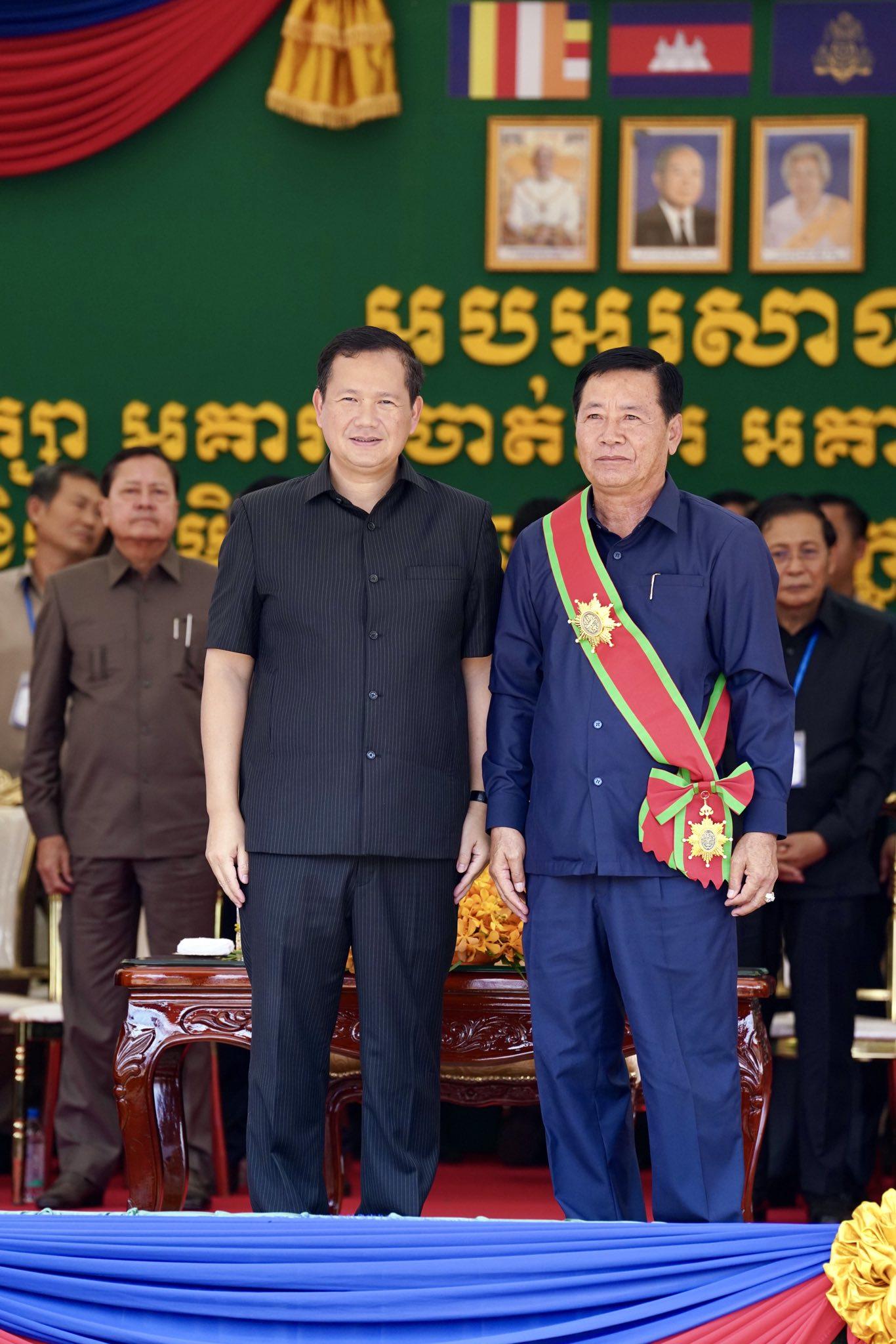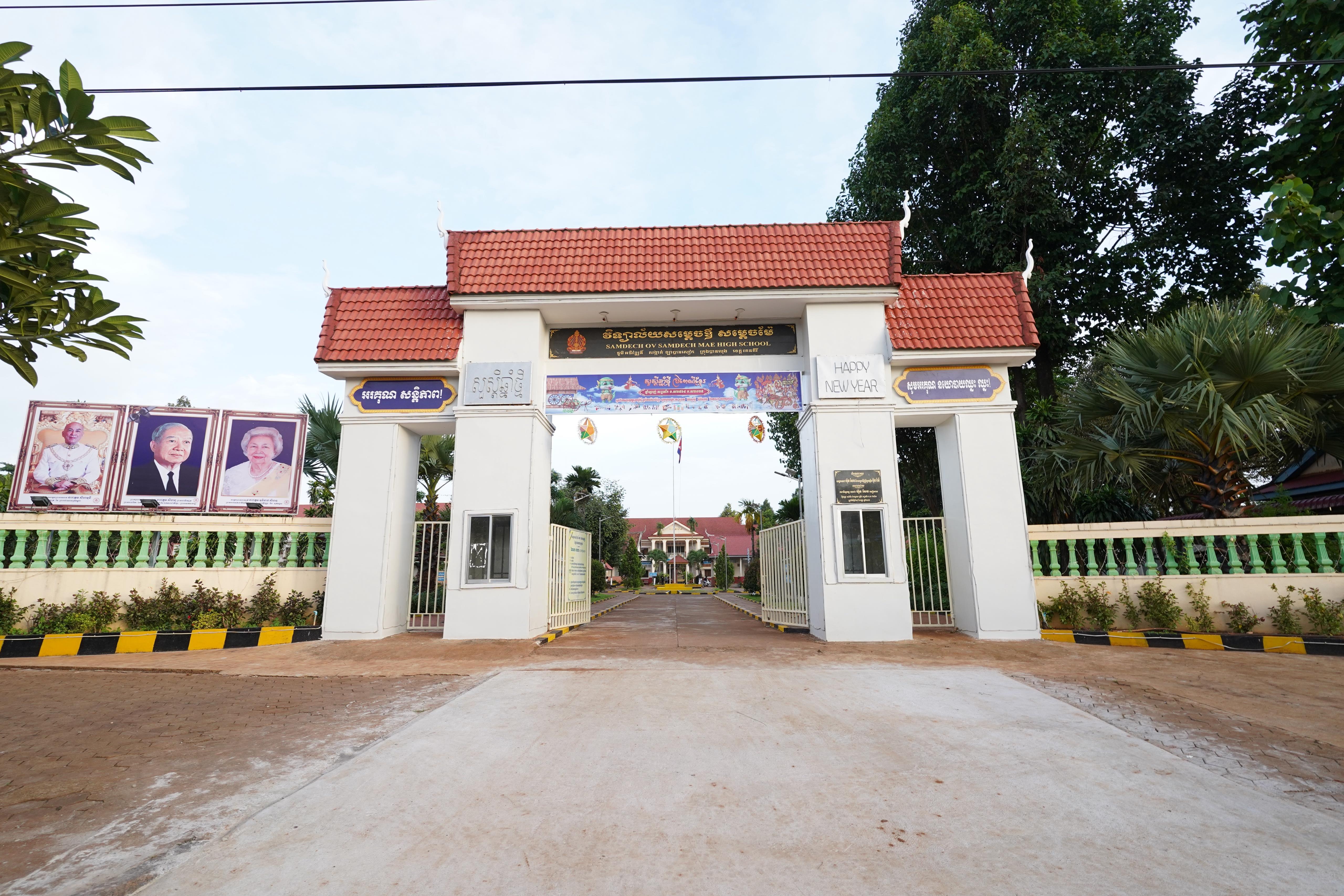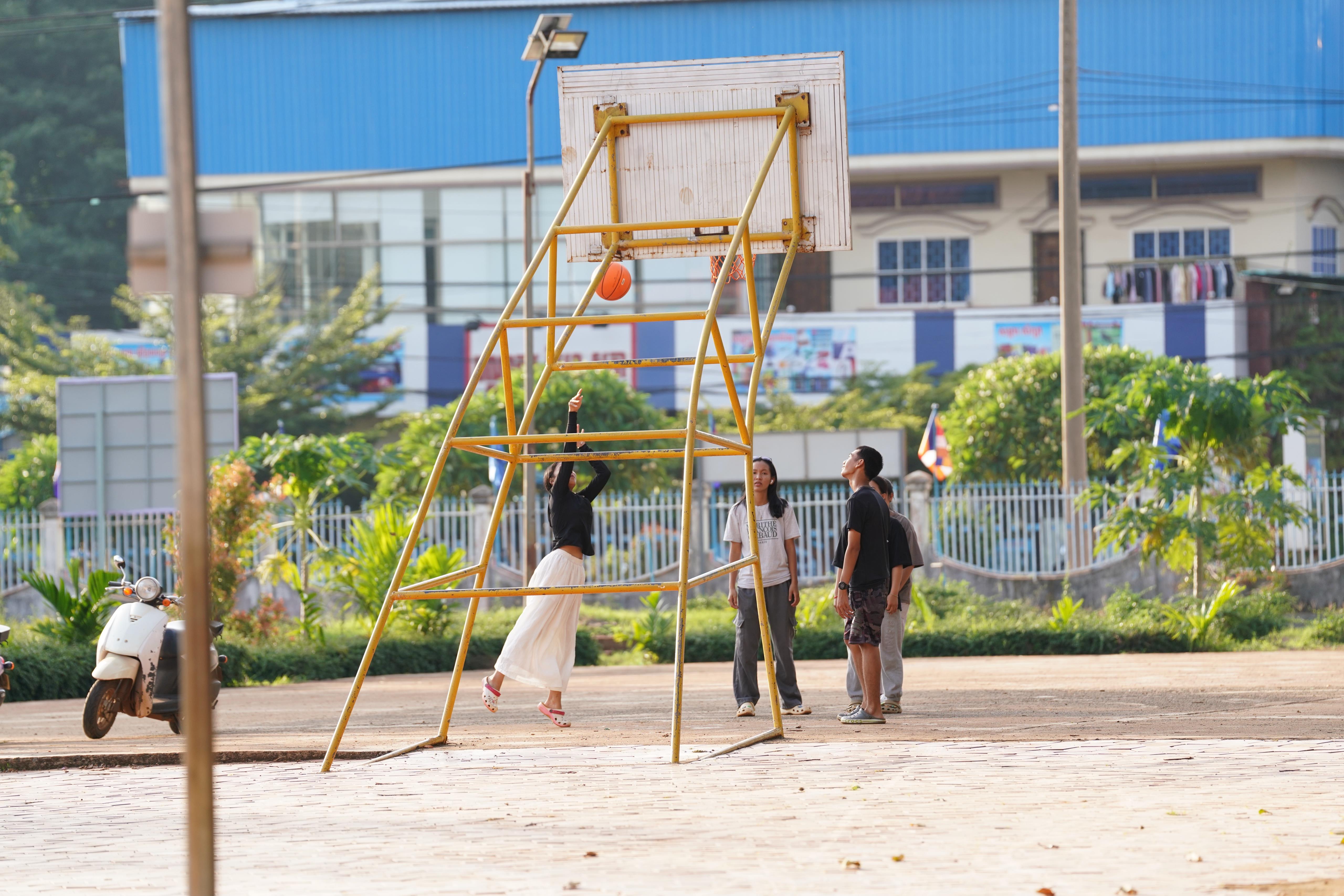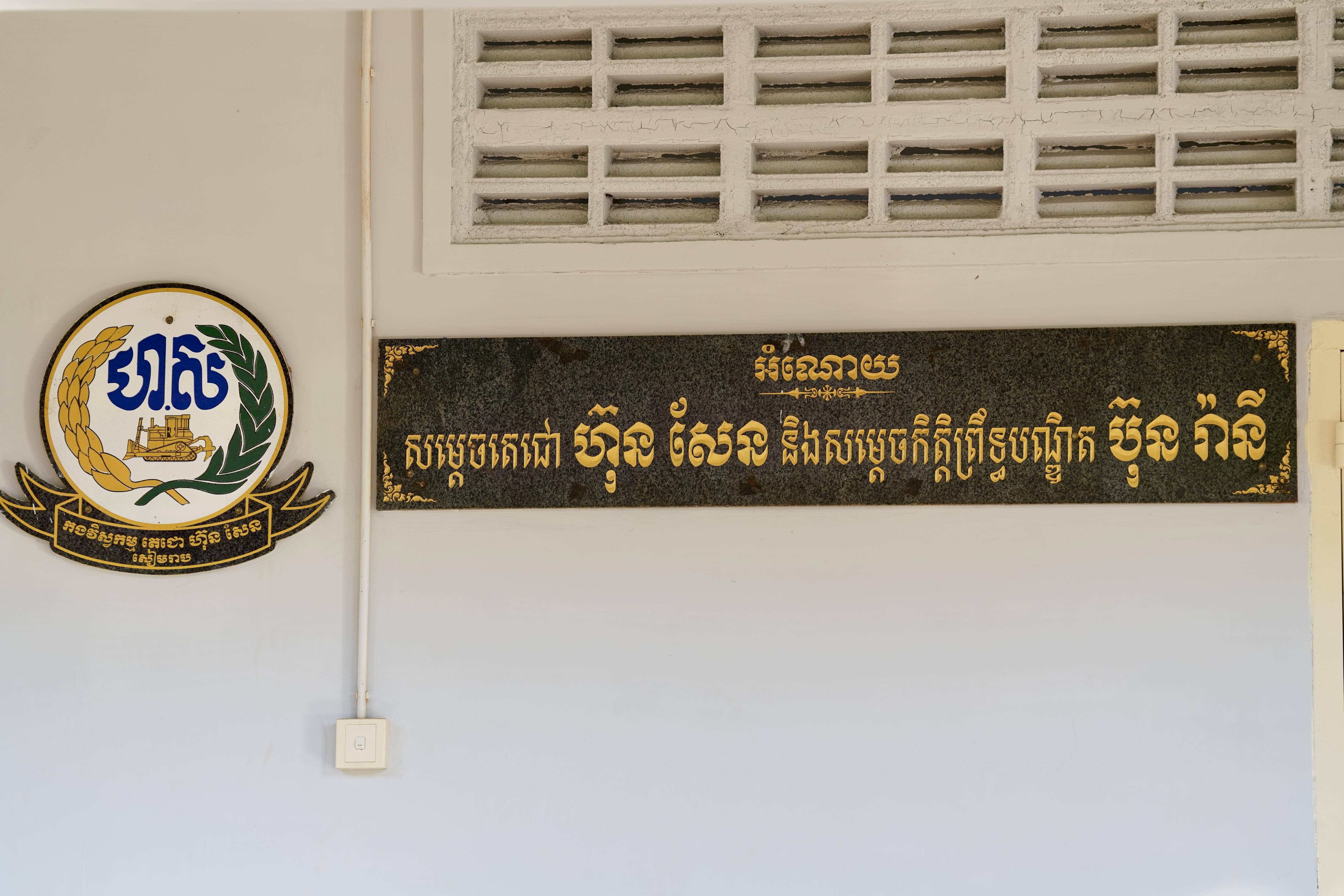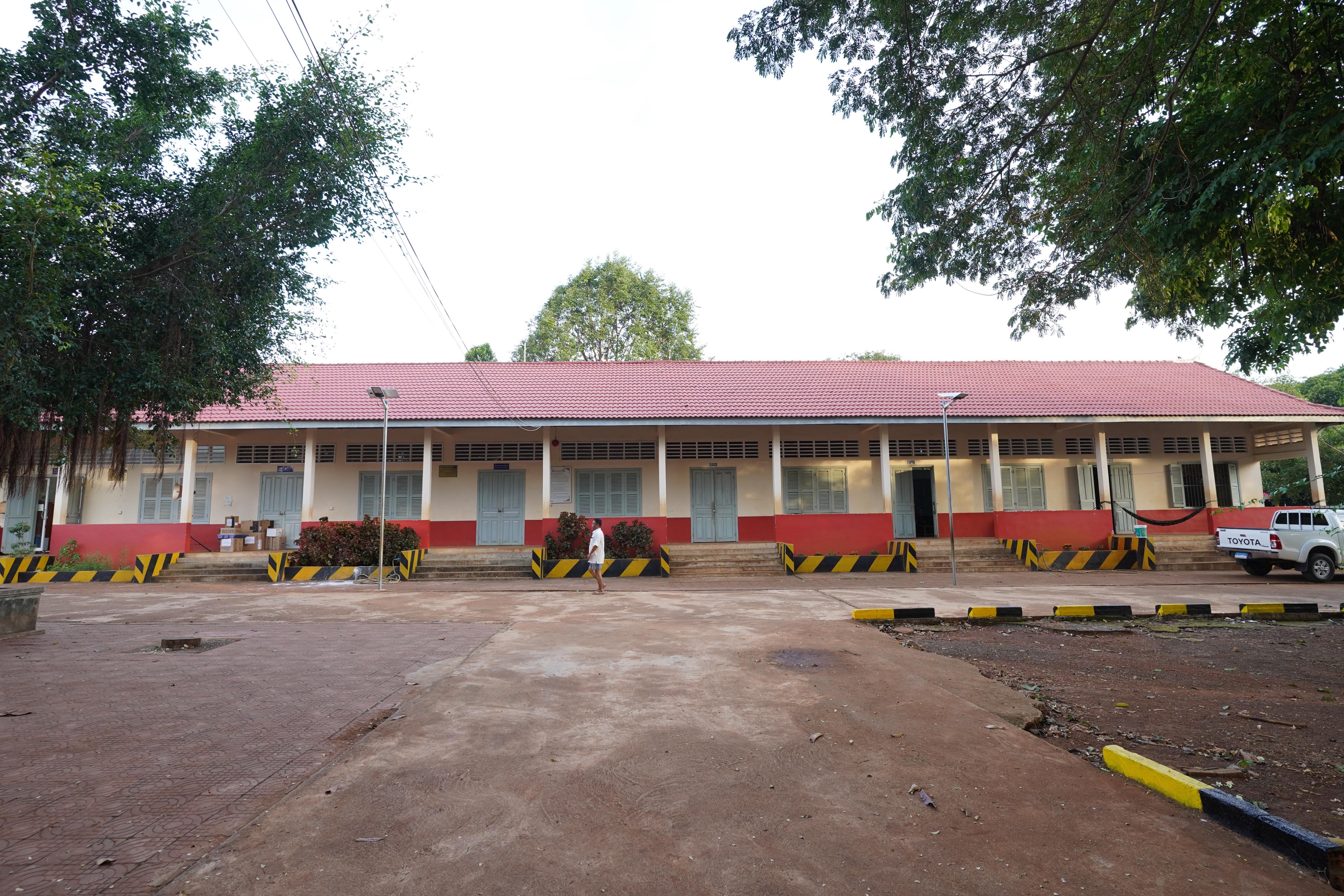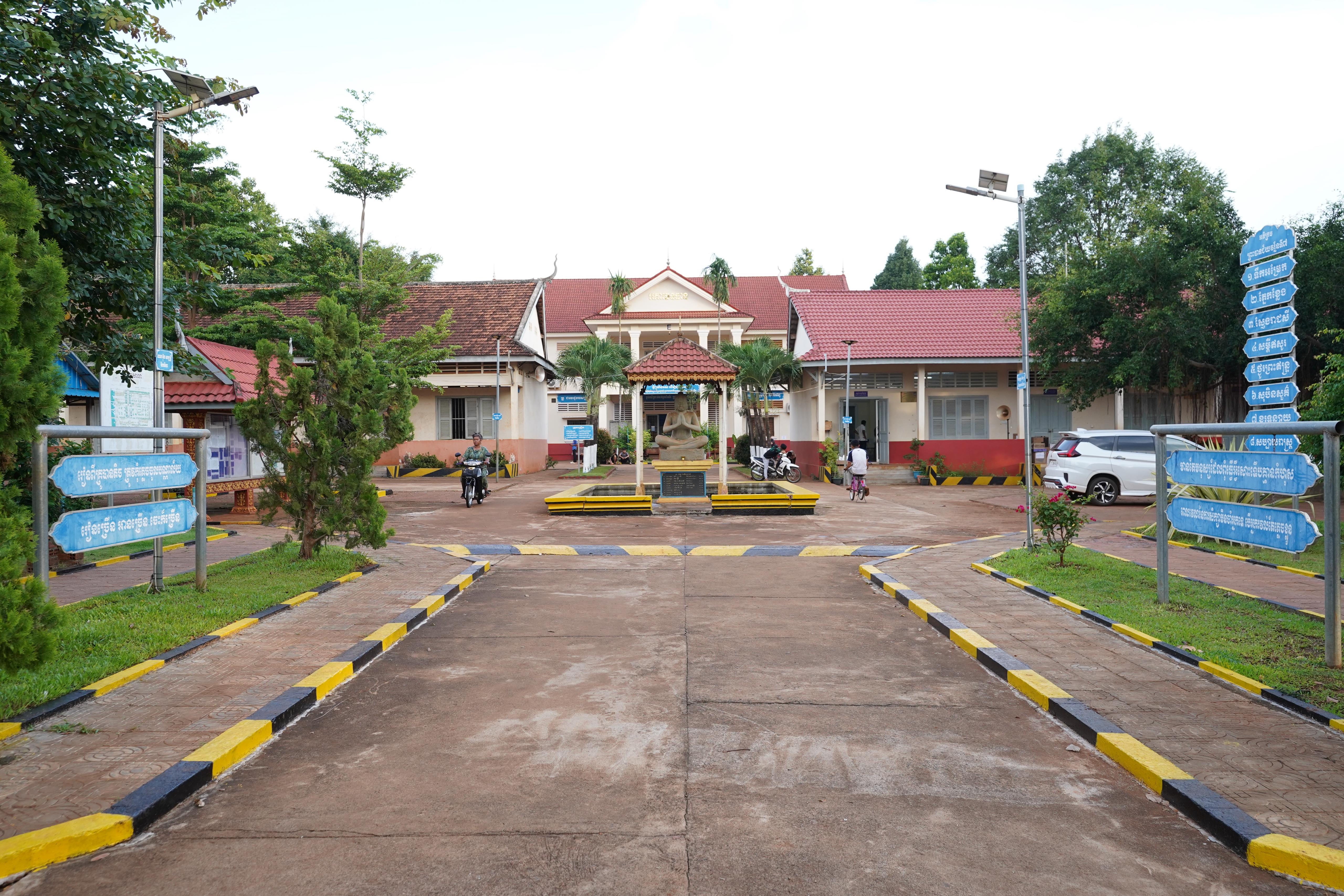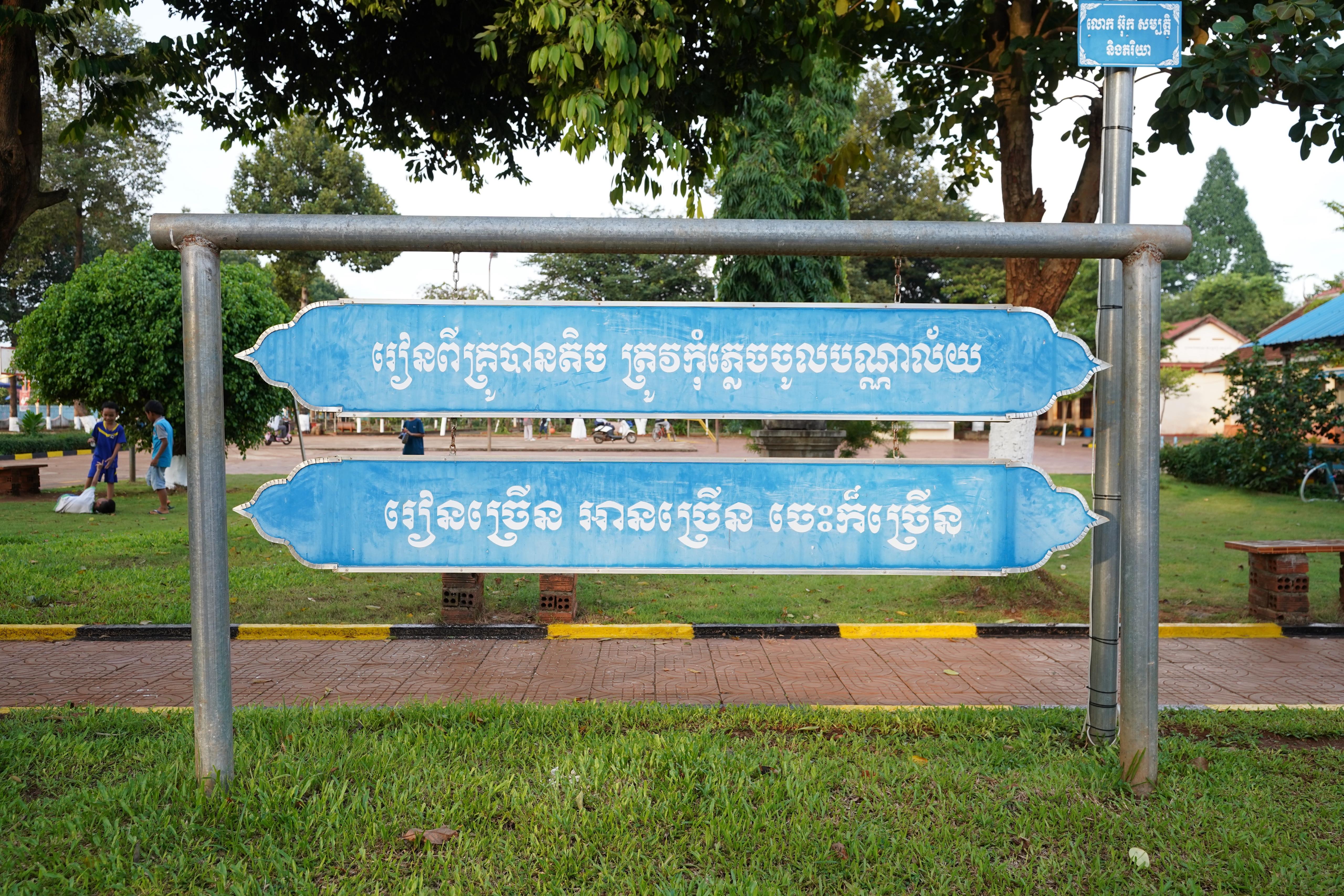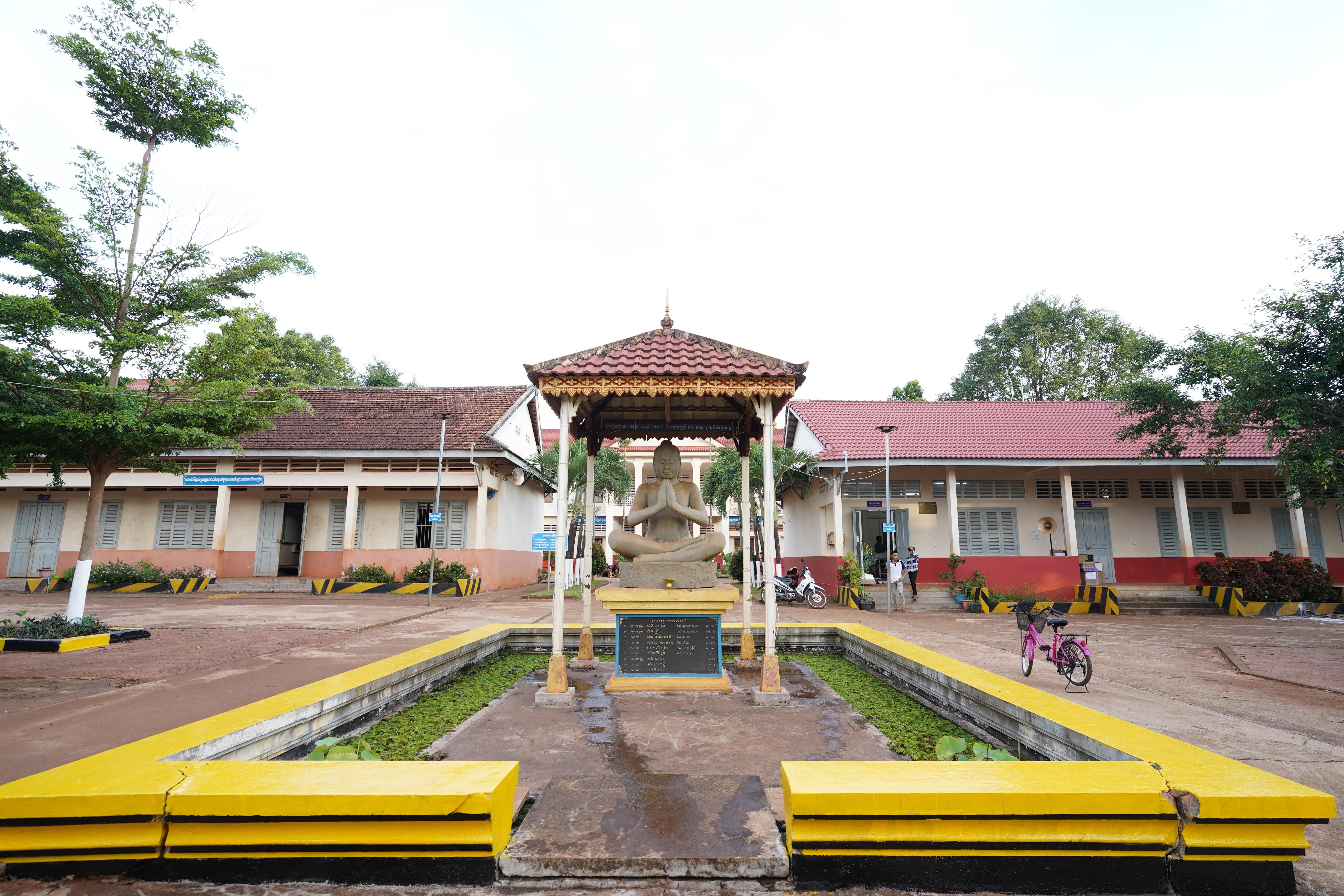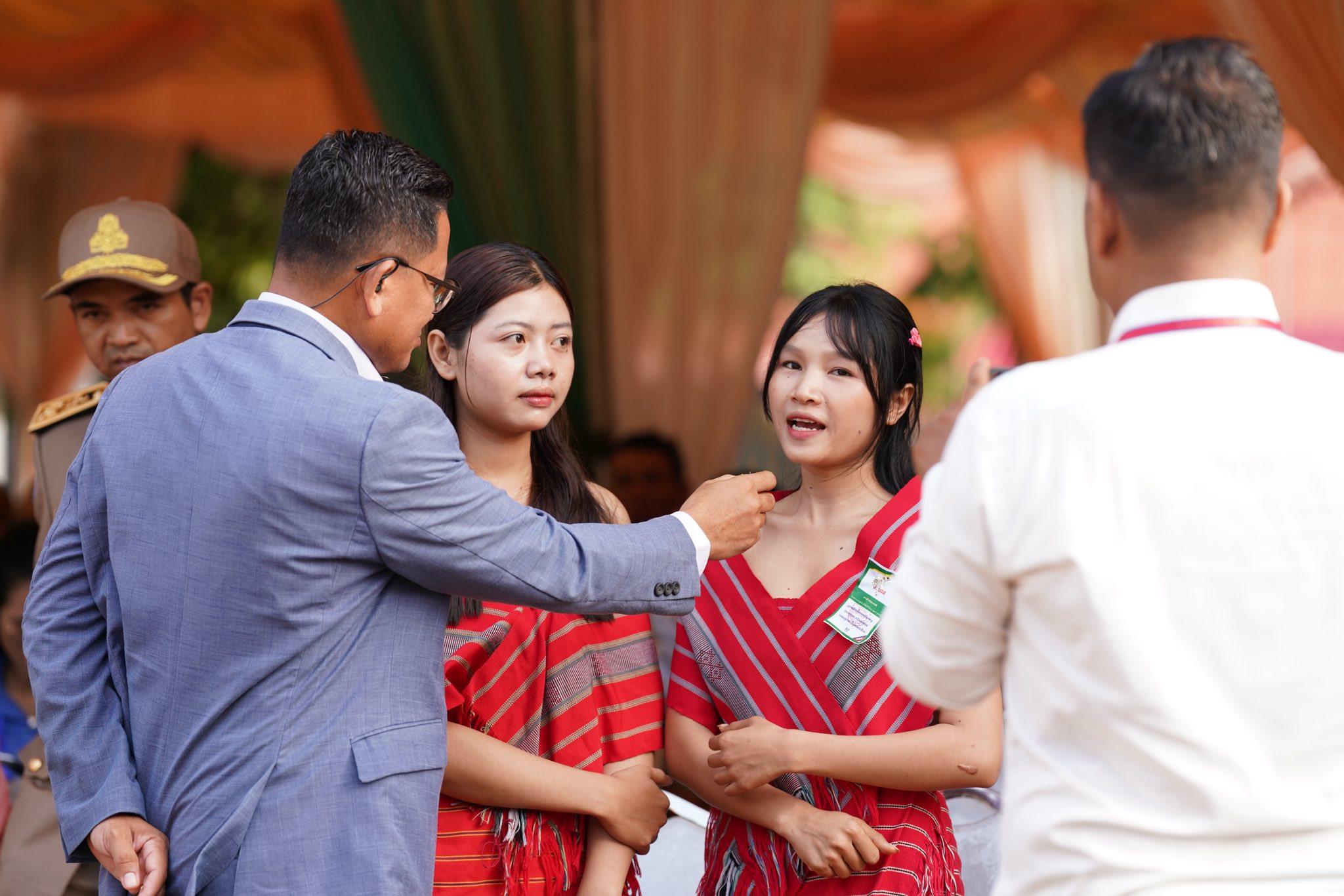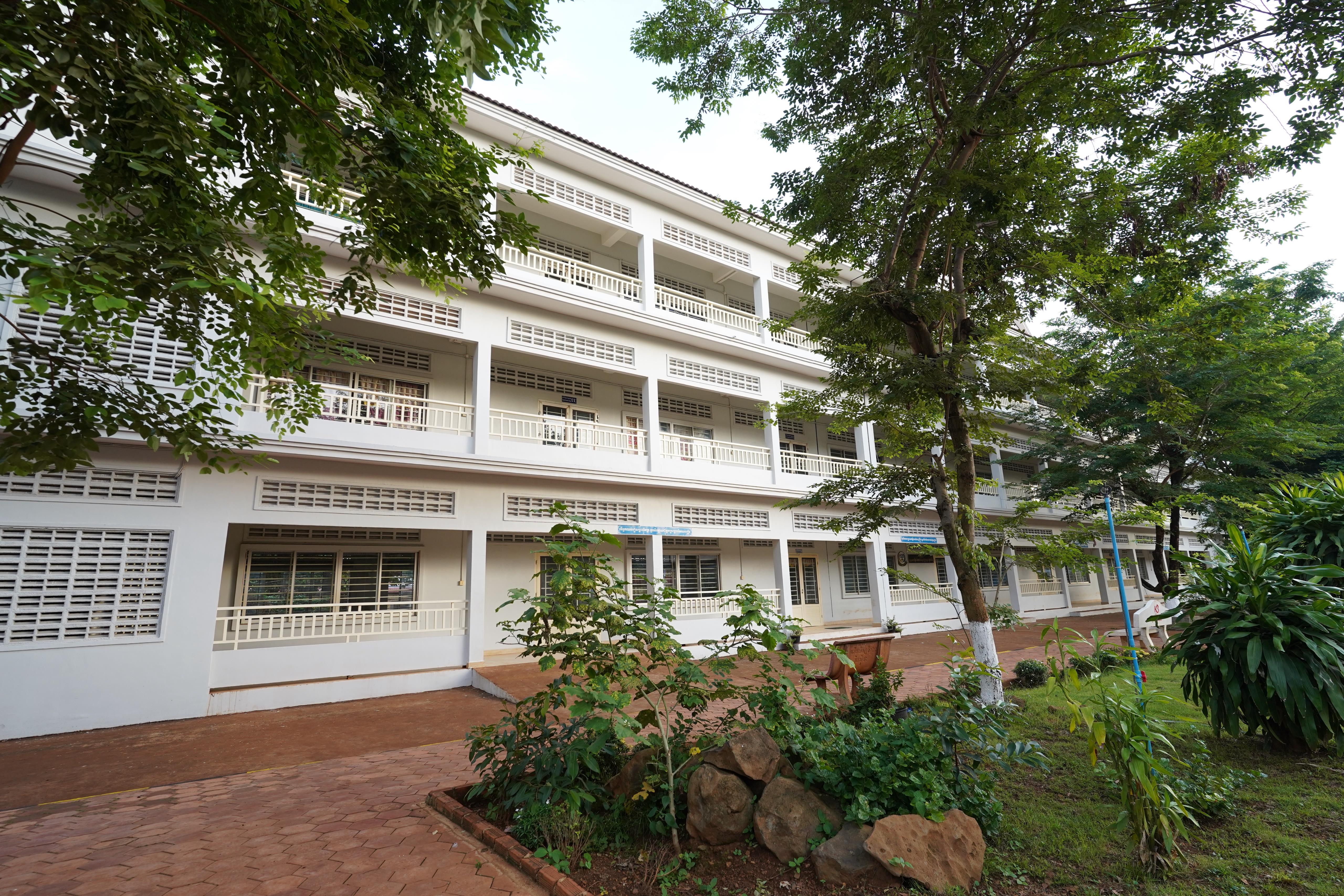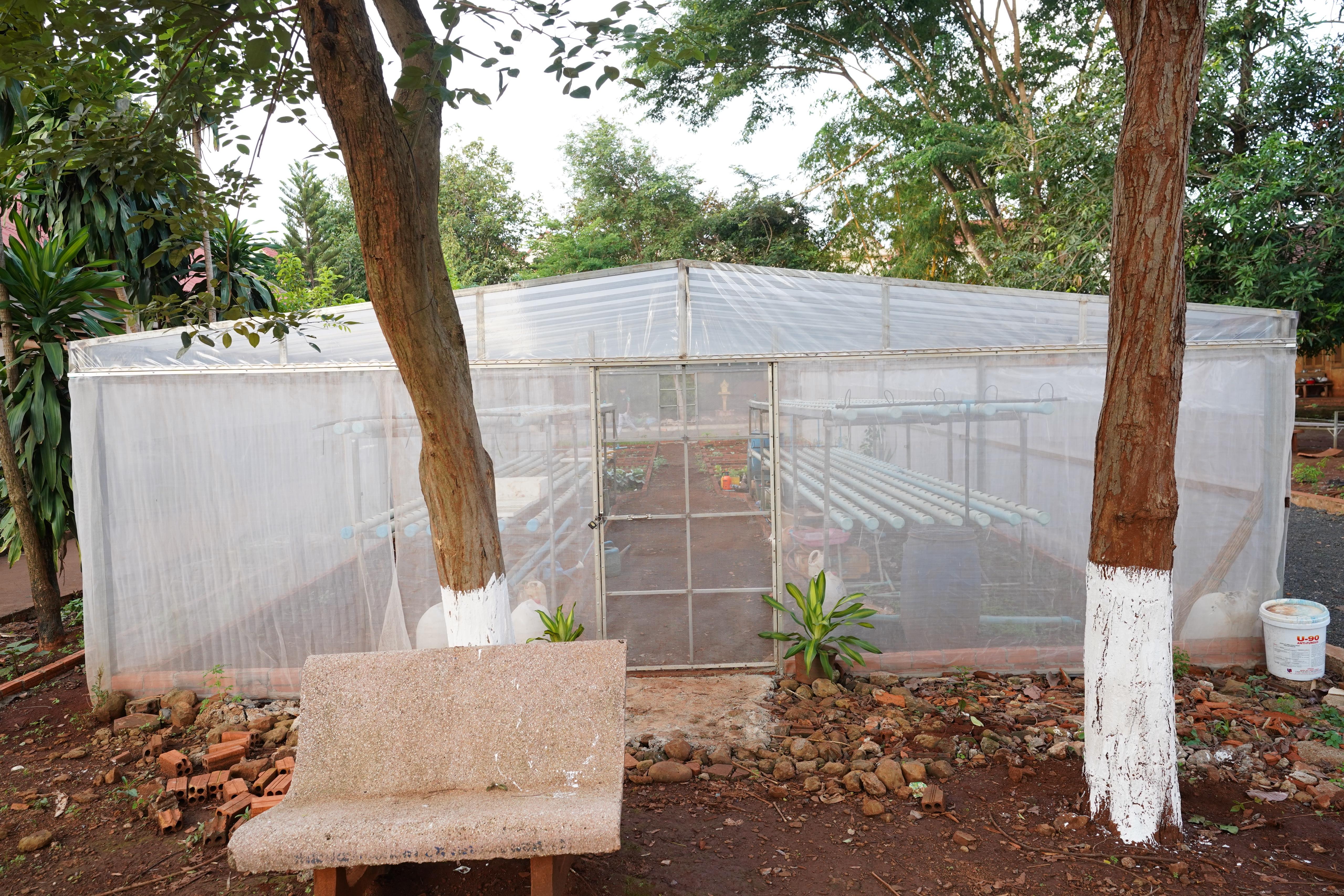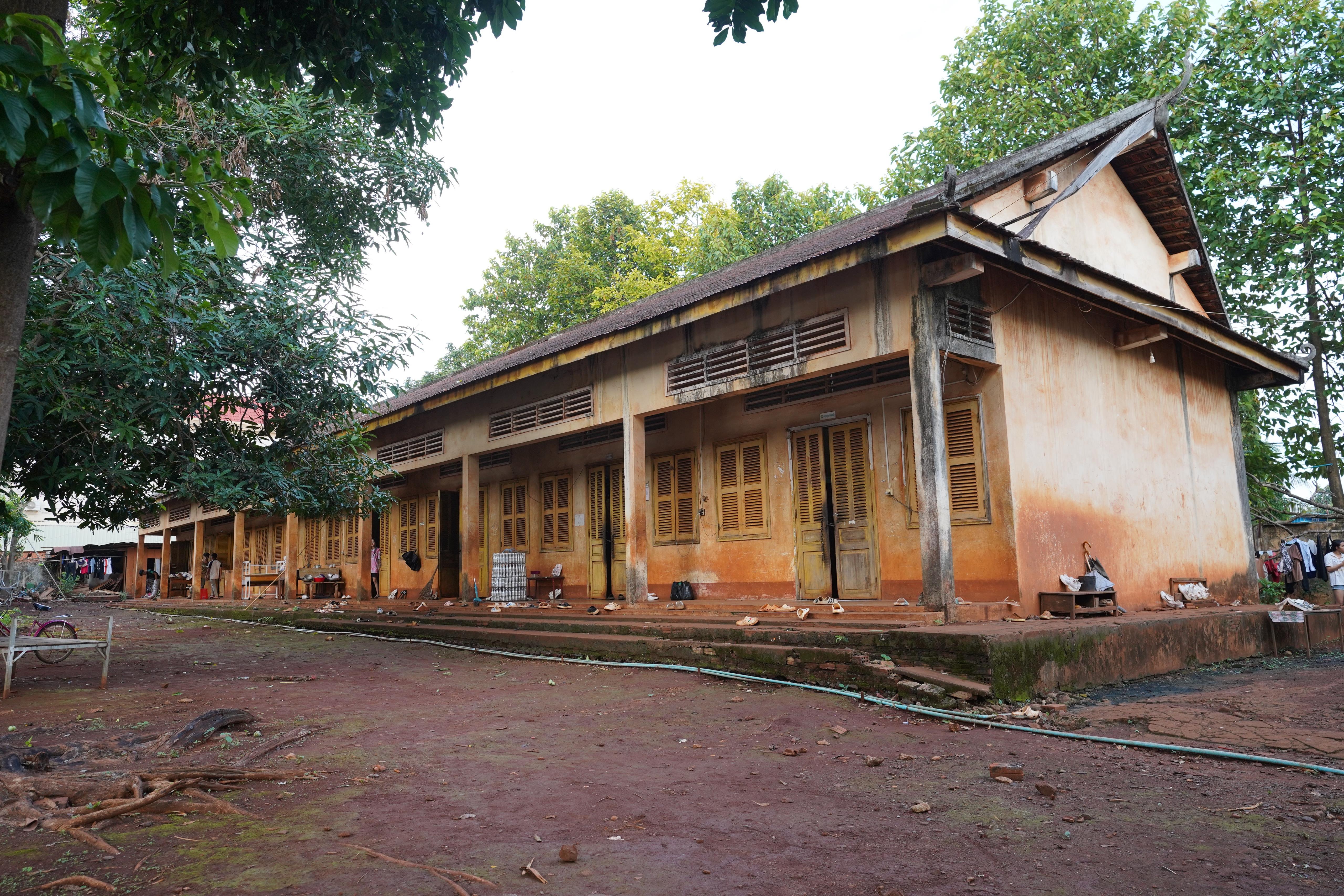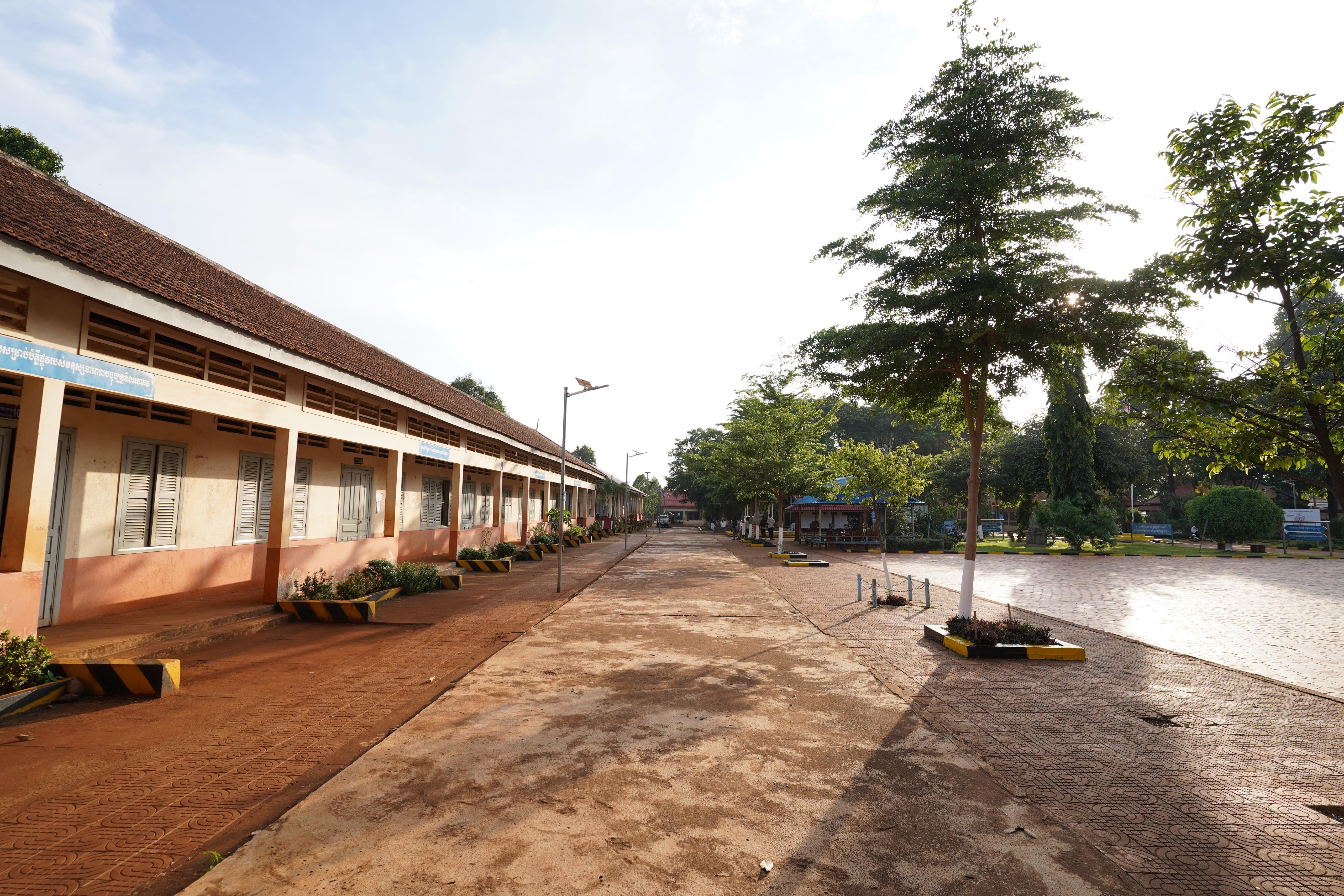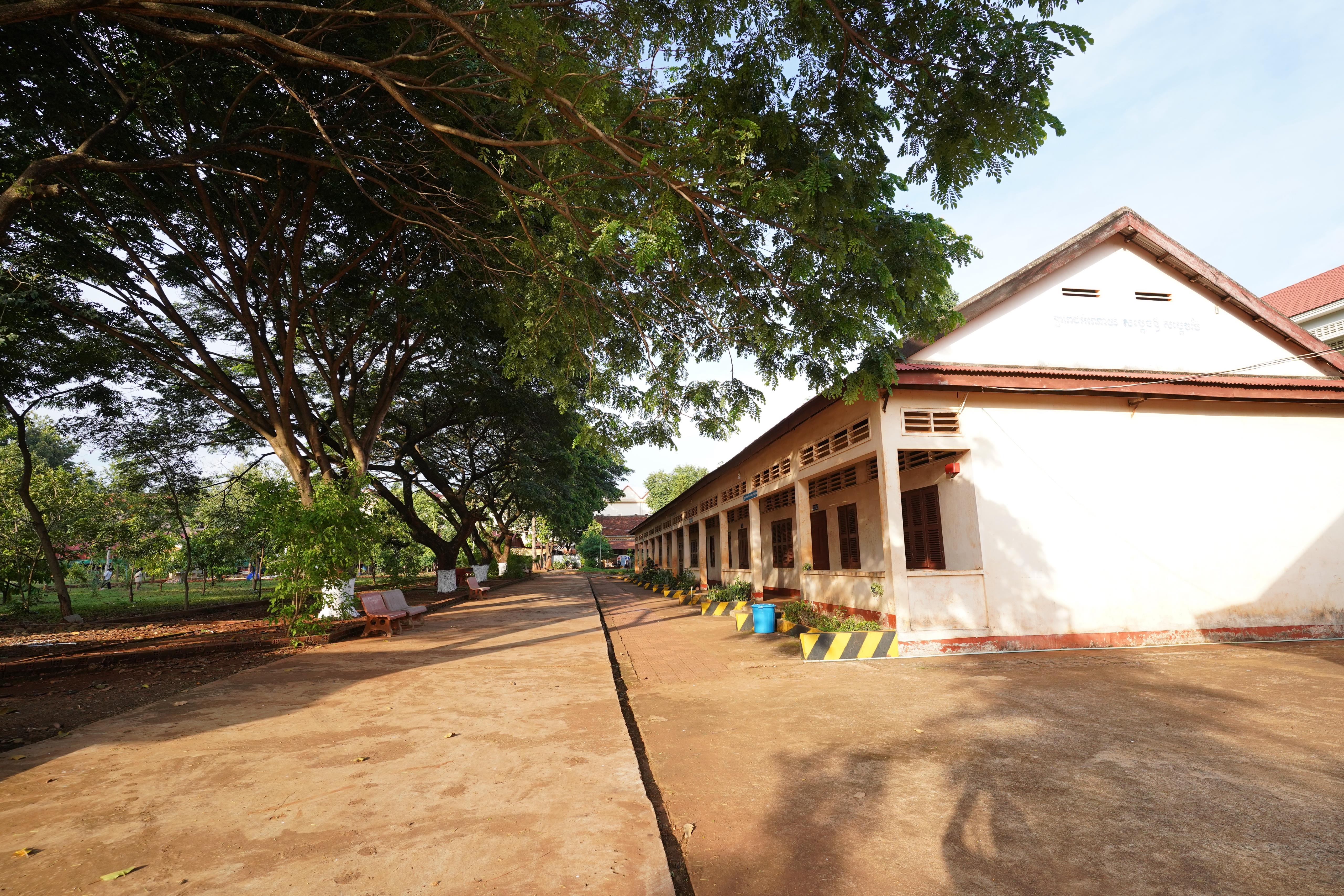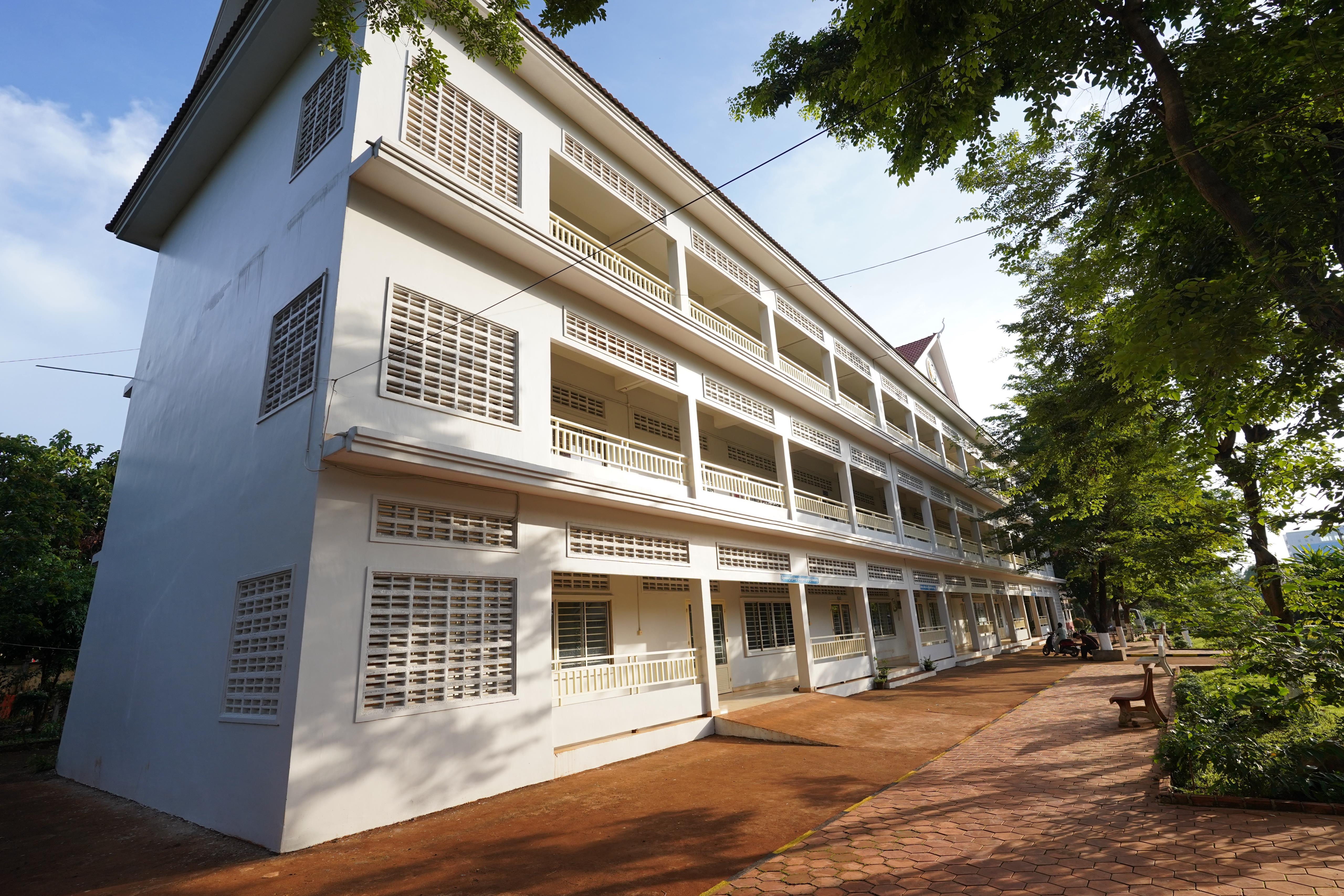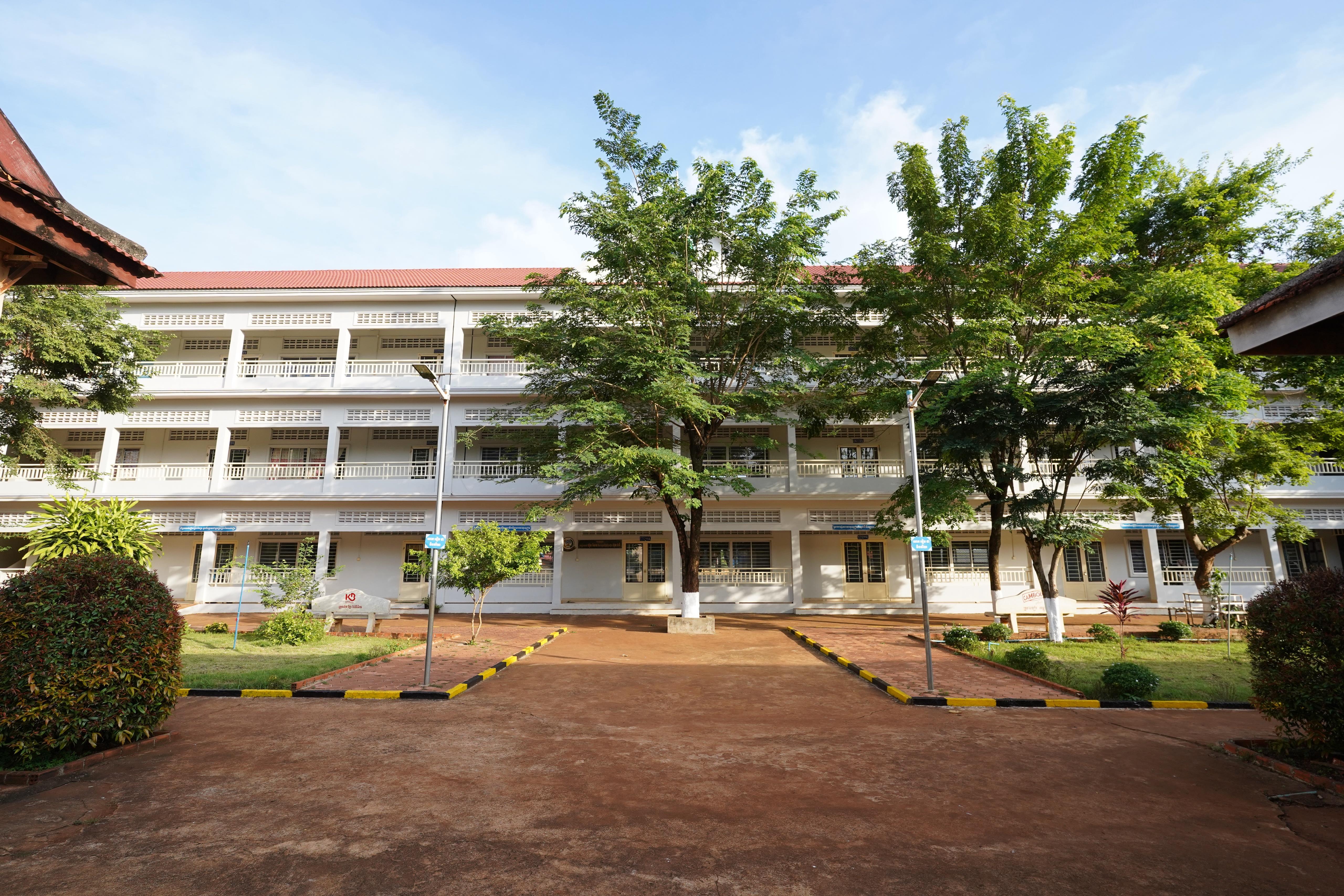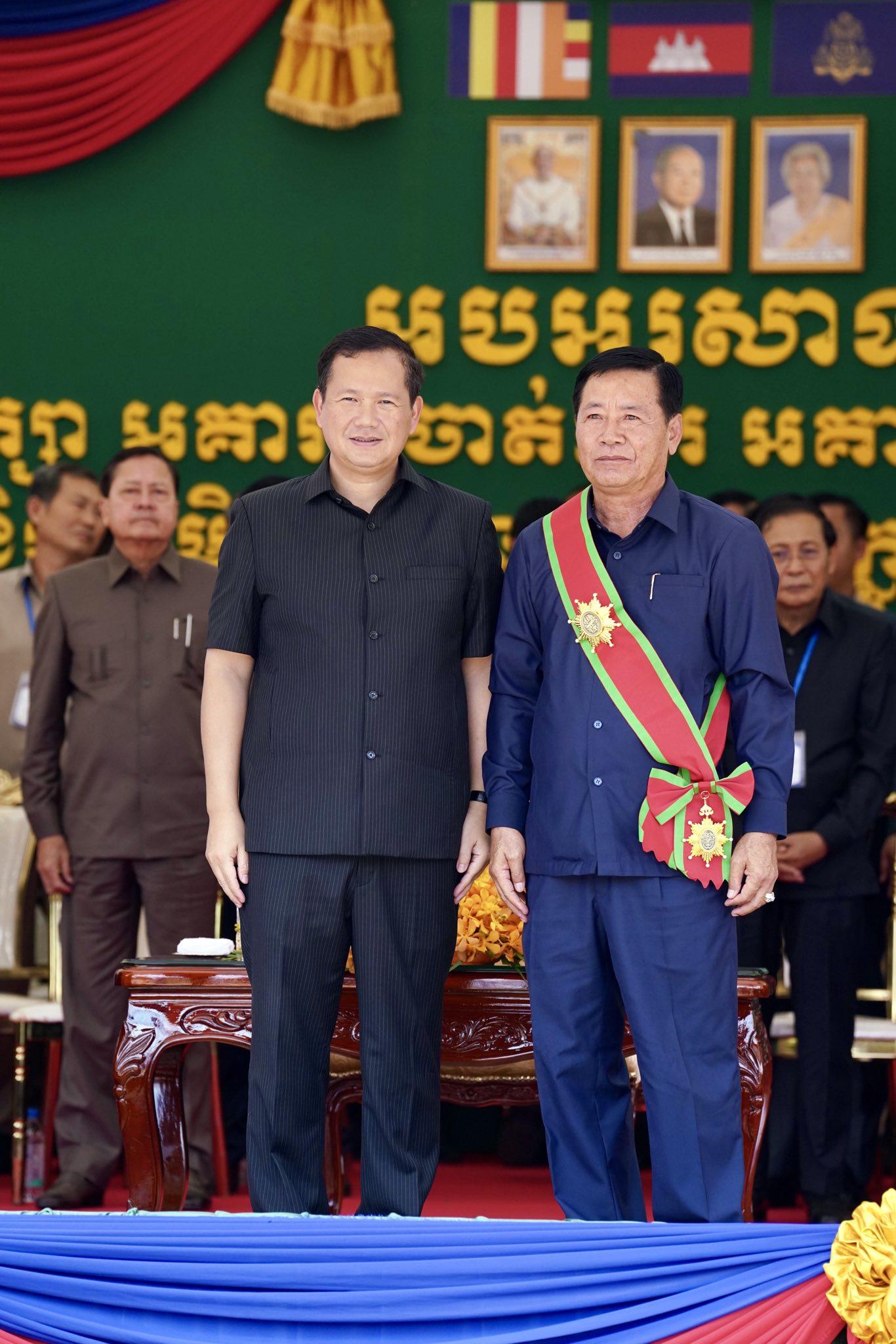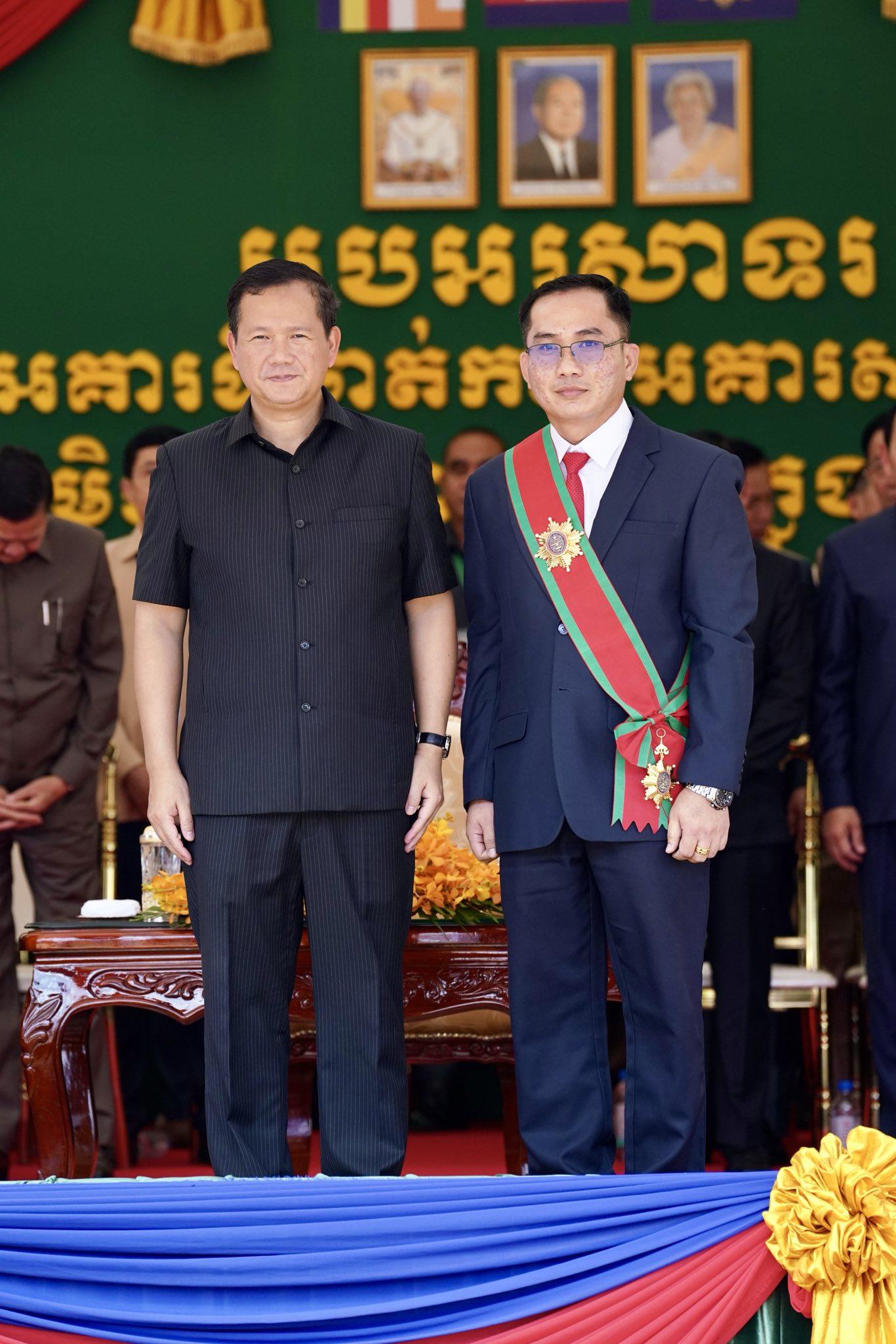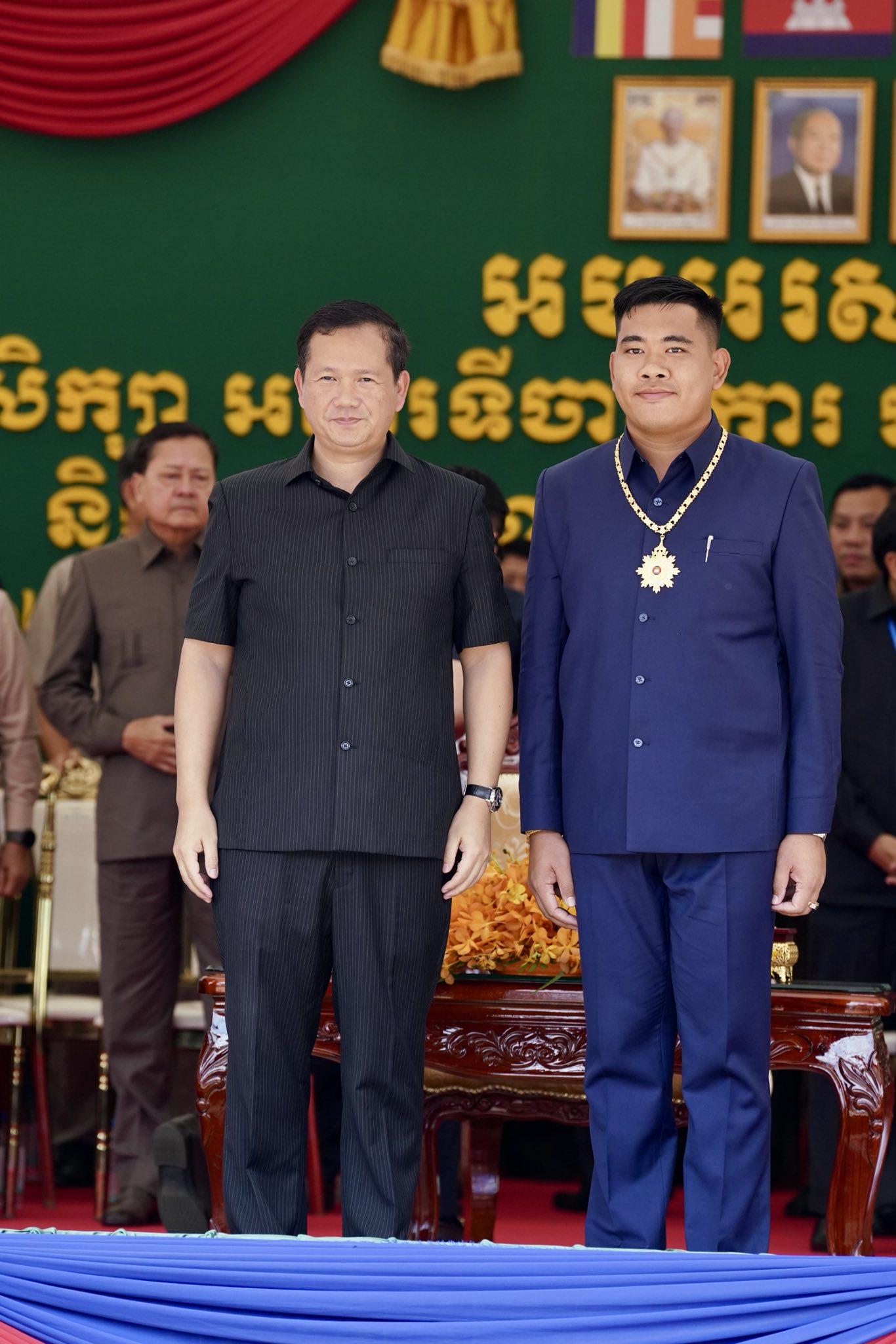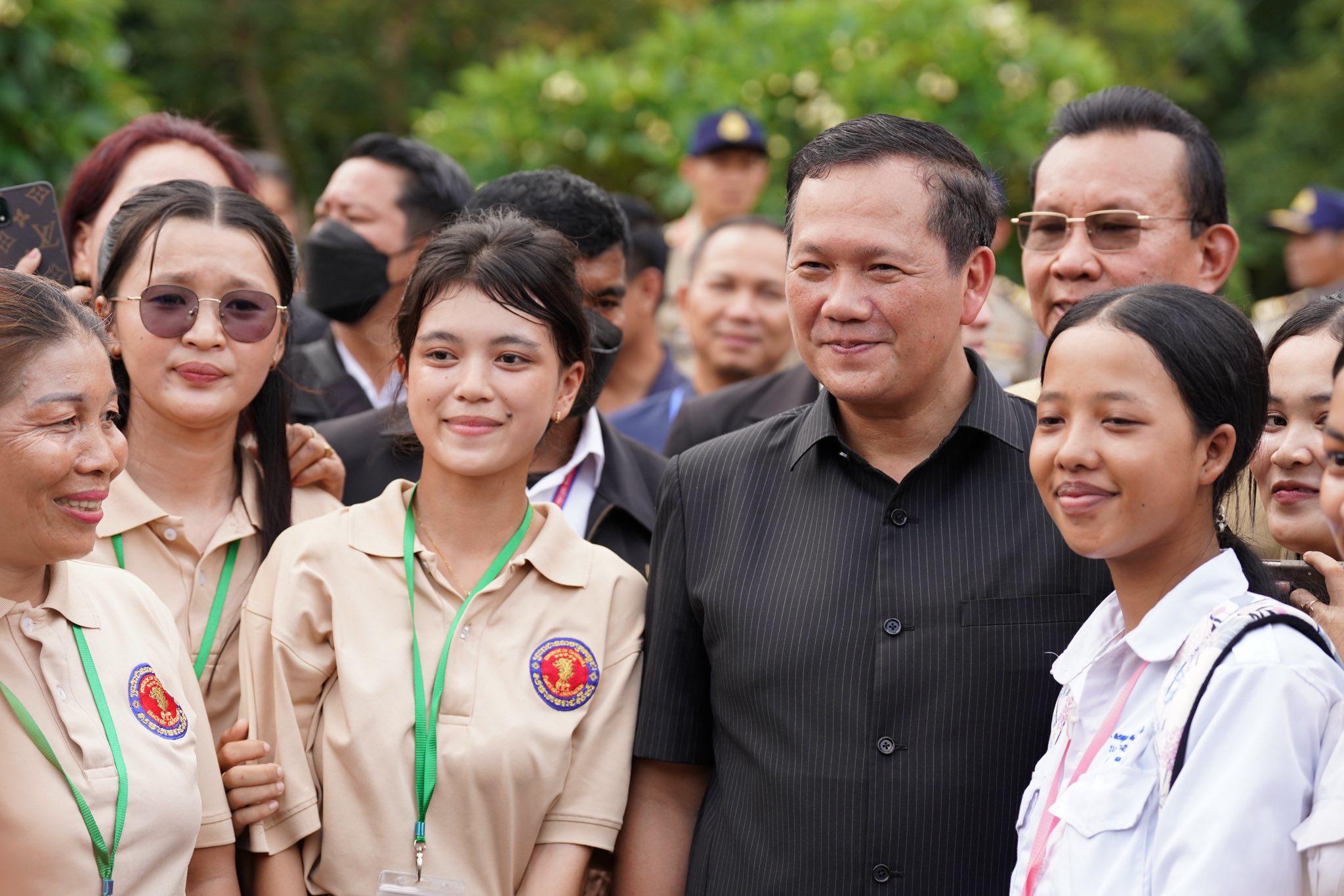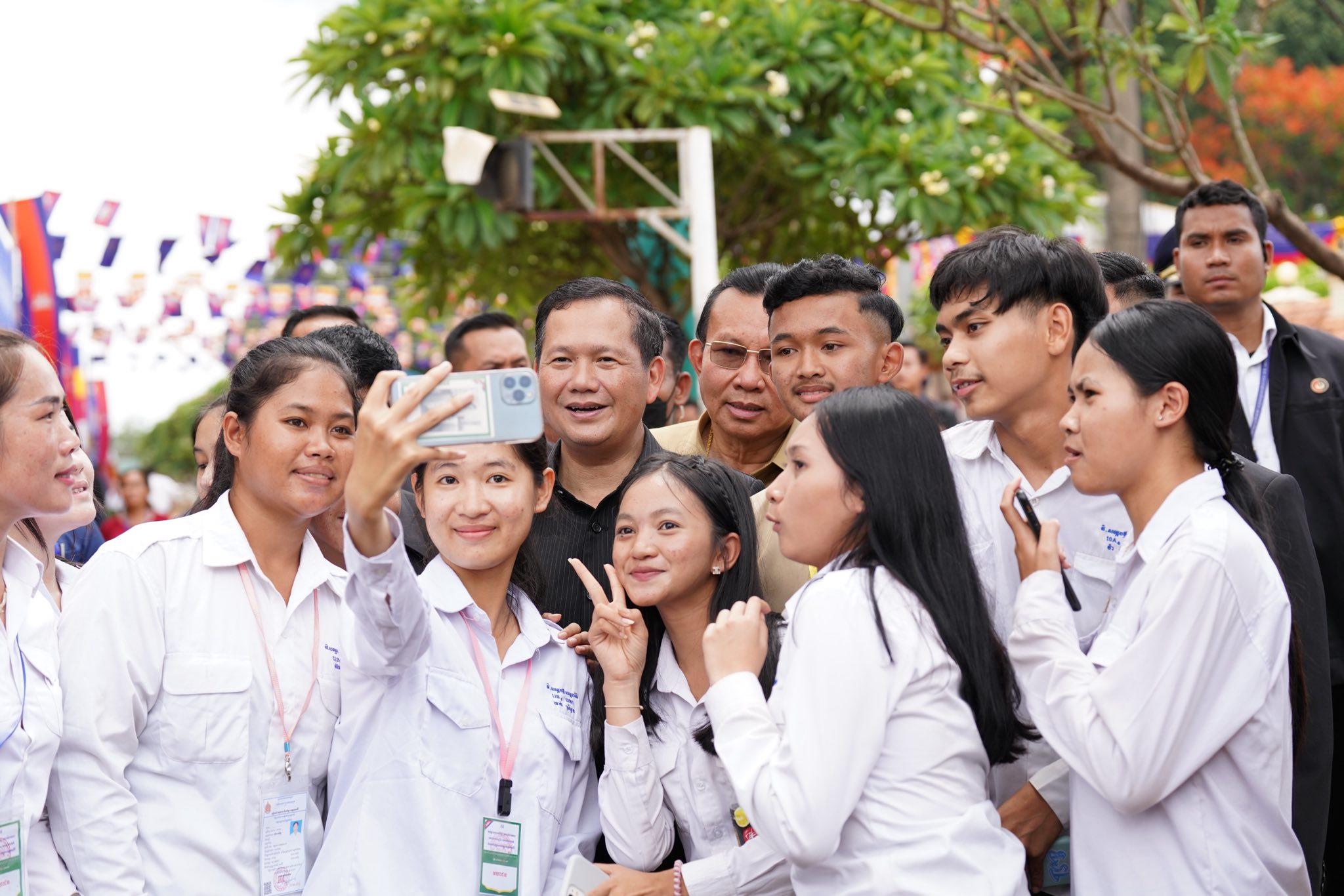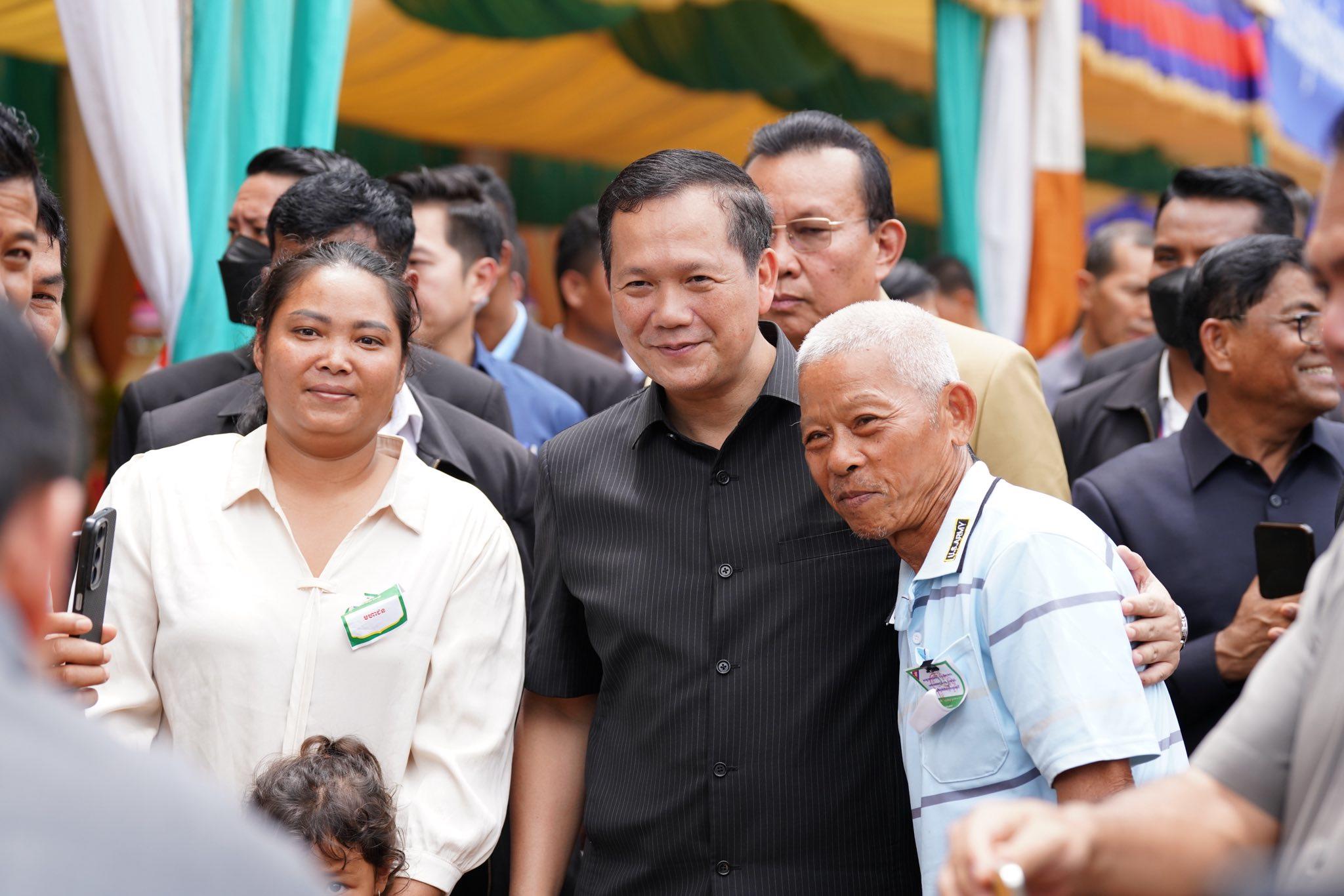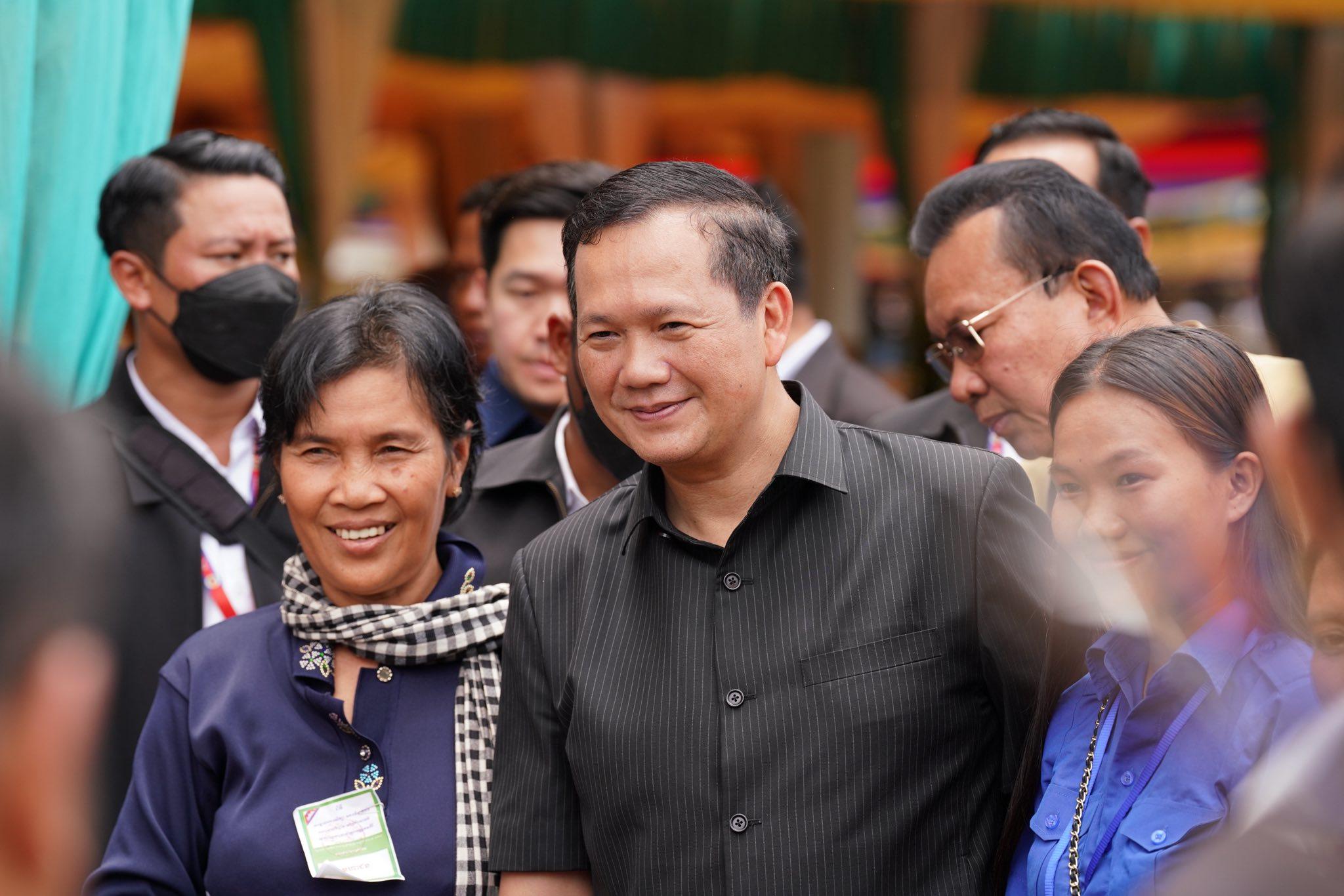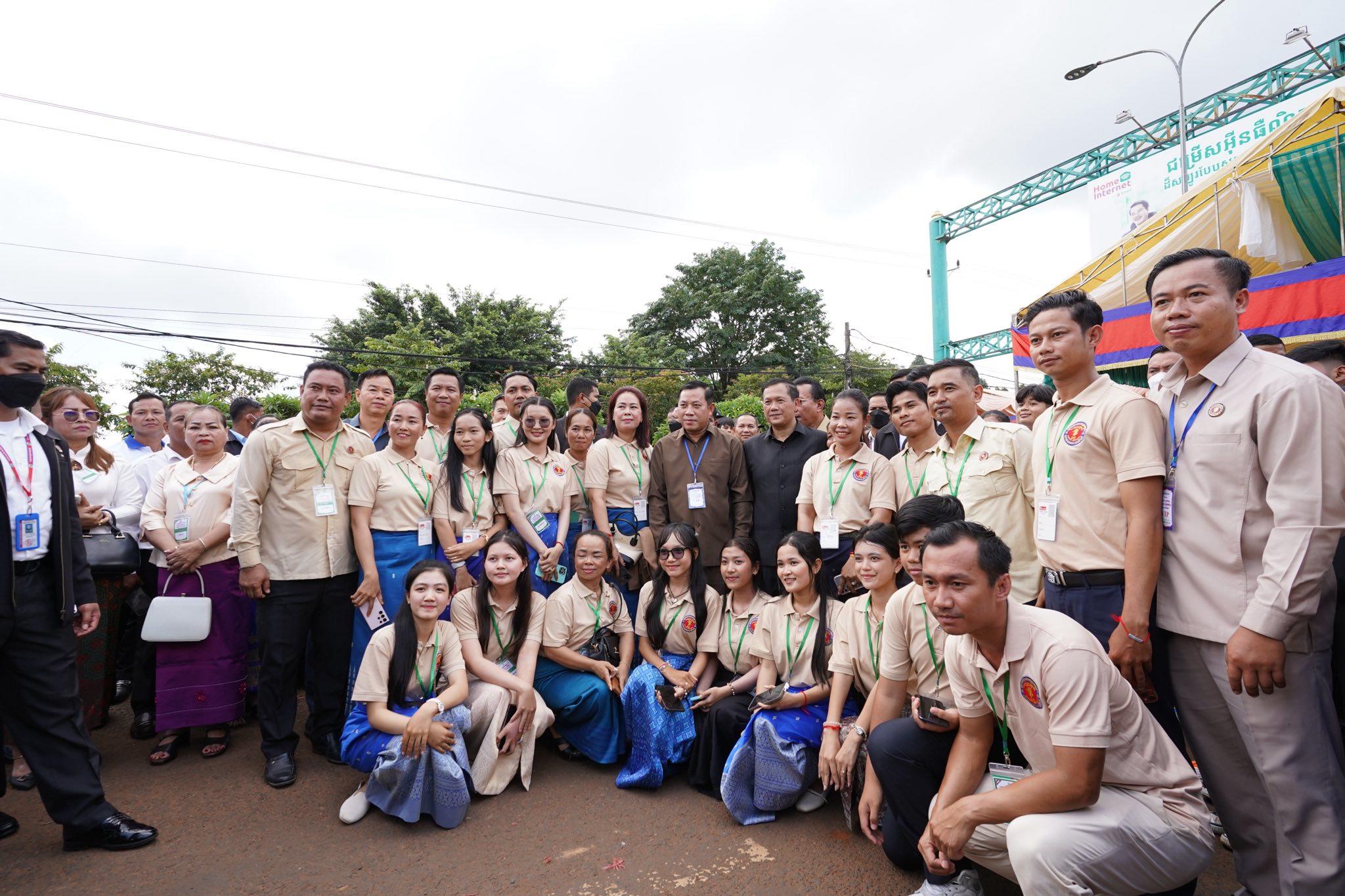(Ratanakiri): Cambodian Prime Minister Hun Manet firmly clarified that the Royal Government’s decision to refer the border dispute with Thailand to the International Court of Justice (ICJ)—specifically concerning the Emerald Triangle area, Ta Moan Thom Temple, Ta Moan Tauch Temple, and Ta Krabei Temple—as well as the conclusion of the Cambodia-Laos-Viet Nam Development Triangle Area (CLV-DTA) cooperation framework, was not made under pressure from opposition groups.
The premier spoke on Saturday (Jun. 7) at the inauguration of school buildings and achievements in the education sector in Ratanakiri Province.
His response came amid claims by opposition politicians who alleged that the government’s ICJ filing and the termination of the CLV-DTA initiative were reactions to opposition pressure. Some even suggested that the entire 800-kilometre Cambodia–Thailand border should be brought before the ICJ.
Addressing these critics, Samdech Thipadei Hun Manet described them as political opportunists attempting to gain mileage from complex national matters. “The ICJ is handling numerous cases; it is not sitting idle waiting for Cambodian issues. If we were to submit all 800 kilometres of the border dispute, the ICJ would not accept it,” the premier underscored.
Samdech Thipadei continued, “From what I can see, those offering such advice belong to political parties that have never won an election. Why should the governing party—elected by the people to resolve national issues—take advice from those who have consistently lost? Stop the baseless provocations. They claim we filed with the ICJ because of them, ended CLV because of them, and should now abandon negotiations and send the entire border issue to the ICJ. Let me be clear: the ICJ is not free. Nearly 200 countries submit cases. For a case to be accepted, there must be sound legal grounds. Bilateral mechanisms must first be exhausted. Only then will the ICJ consider it. We cannot simply dump all 800 kilometres of disputes at the ICJ and expect a ruling.”
The premier further clarified that the section of the Cambodia–Thailand border submitted to the ICJ concerns areas where no agreement has yet been reached. For areas where bilateral consensus already exists, border demarcation efforts continue. Once a dispute is brought before the ICJ, it can no longer be negotiated bilaterally, as the Court assumes sole authority over the matter.
Additionally, Samdech Thipadei Hun Manet reiterated that referring the border dispute to the ICJ is not an act of war against Thailand, but rather a step towards resolving a longstanding issue through legal and peaceful means. He also called on the Cambodian public to refrain from turning the border issue into a source of ethnic conflict.
=FRESH NEWS
